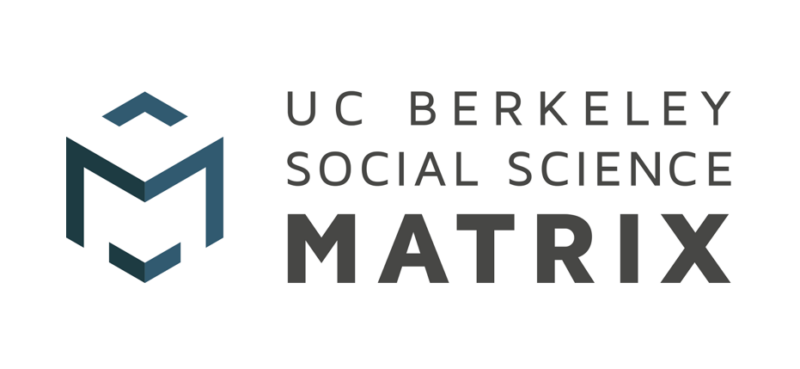In partnership with the Office of the Dean of the Division of Social Sciences, Social Science Matrix created this page to aggregate insights about the coronavirus pandemic from the UC Berkeley social science community. UC Berkeley researchers are invited to contribute to this portal, whether by submitting original commentary or links to outside publications to socialsciencematrix@berkeley.edu.
Visit news.berkeley.edu/coronavirus for information on UC Berkeley’s prevention and response efforts related to the COVID-19. The Berkeley Rausser College of Natural Resources has launched a portal with links to research, commentary, videos, and other resources that relate to the coronavirus.
 The Center for Studies in Higher Education (CSHE) recently convened a panel focused on the impact of the COVID-19 pandemic on international research collaboration. “International knowledge networks are essential for research and research is a core function of universities. All aspects of university work are currently strained by the COVID-19, but international programs, including research collaboration, are especially pressured. These programs have produced some of the most creative and innovative results in many disciplines.” The panel discussed “both the challenges that international research collaboration is facing in the current environment and will describe plans for supporting these efforts and planning for their future post-pandemic.” Participants included: Margaret Heisel, Senior Associate, Center for Studies in Higher Education; David Bogle, Pro-Vice-Provost of the University College London (UCL) Doctoral School; France A. Córdova, an astrophysicist and the 14th director of the National Science Foundation (NSF); Jim Hyatt, Senior Research Associate (CSHE), Vice Chancellor for Budget and Finance and CFO Emeritus; Randy Katz, Vice Chancellor for Research at UC Berkeley; and Tim Stearns, Senior Associate Vice Provost of Research at Stanford University. Watch the video here.
The Center for Studies in Higher Education (CSHE) recently convened a panel focused on the impact of the COVID-19 pandemic on international research collaboration. “International knowledge networks are essential for research and research is a core function of universities. All aspects of university work are currently strained by the COVID-19, but international programs, including research collaboration, are especially pressured. These programs have produced some of the most creative and innovative results in many disciplines.” The panel discussed “both the challenges that international research collaboration is facing in the current environment and will describe plans for supporting these efforts and planning for their future post-pandemic.” Participants included: Margaret Heisel, Senior Associate, Center for Studies in Higher Education; David Bogle, Pro-Vice-Provost of the University College London (UCL) Doctoral School; France A. Córdova, an astrophysicist and the 14th director of the National Science Foundation (NSF); Jim Hyatt, Senior Research Associate (CSHE), Vice Chancellor for Budget and Finance and CFO Emeritus; Randy Katz, Vice Chancellor for Research at UC Berkeley; and Tim Stearns, Senior Associate Vice Provost of Research at Stanford University. Watch the video here.
 The COVID-19 pandemic is increasing depression and anxiety among college students, with more than a third reporting significant mental health challenges. A recent Berkeley News article by Edward Lempinen cites a new survey co-led by the Center for the Study of Higher Education (CSHE). “The survey of students at nine U.S. public research universities nationwide found that 35% of undergraduates and 32% of graduate and professional students screened positive for major depressive disorder, while 39% of all students screened positive for anxiety disorder, according to the report released on August 18 by the Student Experience in the Research University (SERU) Consortium. The rate of anxiety and depression was more pronounced among low-income students, students of color, LGBTQ+ students and those who are caring for loved ones. ‘As the pandemic continues, universities need to be prepared for a surge of student requests for mental health services in the fall and beyond,” said SERU Consortium Director Igor Chirikov, a senior researcher at CSHE. “Current plans to continue education with remote or hybrid instruction won’t be effective without adequate resources for mental health support programs.'”
The COVID-19 pandemic is increasing depression and anxiety among college students, with more than a third reporting significant mental health challenges. A recent Berkeley News article by Edward Lempinen cites a new survey co-led by the Center for the Study of Higher Education (CSHE). “The survey of students at nine U.S. public research universities nationwide found that 35% of undergraduates and 32% of graduate and professional students screened positive for major depressive disorder, while 39% of all students screened positive for anxiety disorder, according to the report released on August 18 by the Student Experience in the Research University (SERU) Consortium. The rate of anxiety and depression was more pronounced among low-income students, students of color, LGBTQ+ students and those who are caring for loved ones. ‘As the pandemic continues, universities need to be prepared for a surge of student requests for mental health services in the fall and beyond,” said SERU Consortium Director Igor Chirikov, a senior researcher at CSHE. “Current plans to continue education with remote or hybrid instruction won’t be effective without adequate resources for mental health support programs.'”
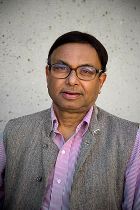 In a recent essay posted on 3 Quarks Daily, Pranab Bardhan, Professor of Graduate School in the UC Berkeley Department of Economics, examined the impact the pandemic could have on social democracy, particularly in the wake of recent trends like the rise of automation and globalization, the decline of working-class trade unions, and the increase in inequality and insecurity. Bardhan to “looks at the prospects of social democracy in the post-pandemic world, at the strengthening or weakening of pre-existing tendencies in this respect, and at new elements, circumstances and challenges,” noting it should be seen “as neither a straight-forward prediction, nor just a matter of wishful thinking, more a clear-eyed analysis of constraints and opportunities that social democrats are likely to face or have to be prepared for.”
In a recent essay posted on 3 Quarks Daily, Pranab Bardhan, Professor of Graduate School in the UC Berkeley Department of Economics, examined the impact the pandemic could have on social democracy, particularly in the wake of recent trends like the rise of automation and globalization, the decline of working-class trade unions, and the increase in inequality and insecurity. Bardhan to “looks at the prospects of social democracy in the post-pandemic world, at the strengthening or weakening of pre-existing tendencies in this respect, and at new elements, circumstances and challenges,” noting it should be seen “as neither a straight-forward prediction, nor just a matter of wishful thinking, more a clear-eyed analysis of constraints and opportunities that social democrats are likely to face or have to be prepared for.”
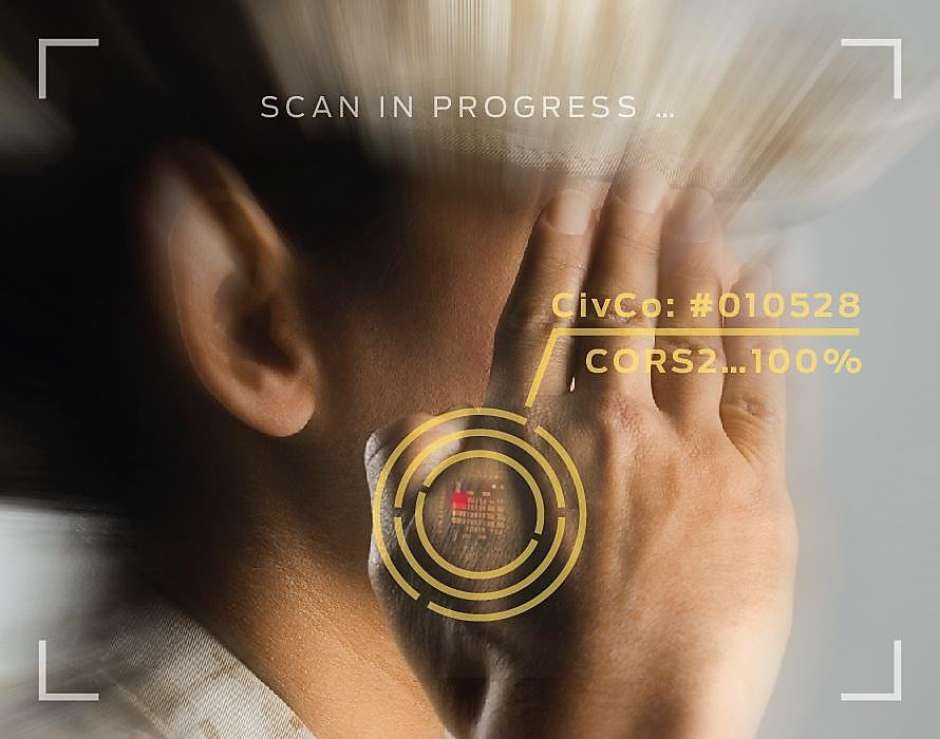 Beth Piatote, Associate Professor of Native American Studies, published a fictional story called “Level 8 Risk,” depicting a future world in which immigrants can earn their citizenship by joining the Civilian BioMedical Corps (or CivCo for short), in which they are infected with diseases so they can produce antibodies that are harvested and sold. An excerpt: “Three years after the implant gave me an infection, I’m about to get another one. Another microchip implant, that is, and possibly another infection. I’d call it a level 3 risk. Implant infection was only a level 1 risk last time and I got one, so I’m upping the odds. Esau says it’s good to be prepared, especially with re-entry on the horizon. Re-entry has been on the horizon the entire three years I’ve been here. Every time I get scanned the date pops up: May 1, 2028, embedded in the bar code as 010528. At first, I tried to memorize my whole ID, but the green digits on the screen always disappeared too quickly. Once I caught sight of the date in the sequence, I began to focus on that. And thus I became the date of my discharge, which seems as good an identity as any. It’s called discharge, not release or emancipation, because the Civilian BioMedical Corps (or CivCo for short) was designed to mirror the military structurally if not practically. I used to think of the Army and CivCo as twins, like my brother Saul and me, but CivCo is more like that spoiled step-brother who came along after Uncle Sam got remarried to his much younger second wife.” Read the full piece. Read the full piece (behind a paywall on the SF Chronicle site).
Beth Piatote, Associate Professor of Native American Studies, published a fictional story called “Level 8 Risk,” depicting a future world in which immigrants can earn their citizenship by joining the Civilian BioMedical Corps (or CivCo for short), in which they are infected with diseases so they can produce antibodies that are harvested and sold. An excerpt: “Three years after the implant gave me an infection, I’m about to get another one. Another microchip implant, that is, and possibly another infection. I’d call it a level 3 risk. Implant infection was only a level 1 risk last time and I got one, so I’m upping the odds. Esau says it’s good to be prepared, especially with re-entry on the horizon. Re-entry has been on the horizon the entire three years I’ve been here. Every time I get scanned the date pops up: May 1, 2028, embedded in the bar code as 010528. At first, I tried to memorize my whole ID, but the green digits on the screen always disappeared too quickly. Once I caught sight of the date in the sequence, I began to focus on that. And thus I became the date of my discharge, which seems as good an identity as any. It’s called discharge, not release or emancipation, because the Civilian BioMedical Corps (or CivCo for short) was designed to mirror the military structurally if not practically. I used to think of the Army and CivCo as twins, like my brother Saul and me, but CivCo is more like that spoiled step-brother who came along after Uncle Sam got remarried to his much younger second wife.” Read the full piece. Read the full piece (behind a paywall on the SF Chronicle site).
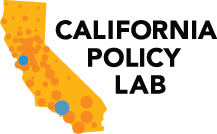 UC Berkeley’s Jesse Rothstein, Associate Professor of Public Policy and Economics, and Matthew Unrath, a PhD candidate at the Goldman School Public Policy — together with researchers from the University of Illinois at Urbana-Champaign and the University of Chicago — have continued their work measuring the collapse and partial recovery of the U.S. economy, largely using data from Homebase, a private-sector firm that provides time clocks and scheduling software to small businesses. “We use traditional and non-traditional data sources to measure the collapse and subsequent partial recovery of the U.S. labor market in Spring 2020,” they wrote in the abstract. “Using daily data on hourly workers in small businesses, we show that the collapse was extremely sudden — nearly all of the decline in hours of work occurred between March 14 and March 28. Both traditional and non traditional data show that, in contrast to past recessions, this recession was driven by low-wage services, particularly the retail and leisure and hospitality sectors. A large share of the job loss in small businesses reflected firms that closed entirely. Nevertheless, the vast majority of laid off workers expected, at least early in the crisis, to be recalled, and indeed many of the businesses have reopened and rehired their former employees. There was a reallocation component to the firm closures, with elevated nrisk of closure at firms that were already unhealthy, and more reopening of the healthier firms. At the worker-level, more disadvantaged workers (less educated, non-white) were more likely to be laid off and less likely to be rehired. Worker expectations were strongly predictive of rehiring probabilities. Turning to policies, shelter-in-place orders drove some job losses but only a small share: many of the losses had already occurred when the orders went into effect. Last, we find that states that received more small business loans from the Paycheck Protection Program and states with more generous unemployment insurance benefits had milder declines and faster recoveries. We find no evidence so far in support of the view that high UI replacement rates drove job losses or slowed rehiring substantially.”
UC Berkeley’s Jesse Rothstein, Associate Professor of Public Policy and Economics, and Matthew Unrath, a PhD candidate at the Goldman School Public Policy — together with researchers from the University of Illinois at Urbana-Champaign and the University of Chicago — have continued their work measuring the collapse and partial recovery of the U.S. economy, largely using data from Homebase, a private-sector firm that provides time clocks and scheduling software to small businesses. “We use traditional and non-traditional data sources to measure the collapse and subsequent partial recovery of the U.S. labor market in Spring 2020,” they wrote in the abstract. “Using daily data on hourly workers in small businesses, we show that the collapse was extremely sudden — nearly all of the decline in hours of work occurred between March 14 and March 28. Both traditional and non traditional data show that, in contrast to past recessions, this recession was driven by low-wage services, particularly the retail and leisure and hospitality sectors. A large share of the job loss in small businesses reflected firms that closed entirely. Nevertheless, the vast majority of laid off workers expected, at least early in the crisis, to be recalled, and indeed many of the businesses have reopened and rehired their former employees. There was a reallocation component to the firm closures, with elevated nrisk of closure at firms that were already unhealthy, and more reopening of the healthier firms. At the worker-level, more disadvantaged workers (less educated, non-white) were more likely to be laid off and less likely to be rehired. Worker expectations were strongly predictive of rehiring probabilities. Turning to policies, shelter-in-place orders drove some job losses but only a small share: many of the losses had already occurred when the orders went into effect. Last, we find that states that received more small business loans from the Paycheck Protection Program and states with more generous unemployment insurance benefits had milder declines and faster recoveries. We find no evidence so far in support of the view that high UI replacement rates drove job losses or slowed rehiring substantially.”
 A recent New Yorker profile about Treasury Secretary Steven Mnuchin, written by Sheelah Kolhatkar, included insights from Barry Eichengreen, George C. Pardee and Helen N. Pardee Professor of Economics and Political Science, who noted the broad economic challenges the pandemic has wrought, drawn in comparison to crises from the early 20th century. “’I think what’s missing compared to those earlier crises is fully institutional, innovative thinking about how the structure of the economy—of the financial system and of the public sector in particular—needs to change in light of events,” he said. “I have this strong sense that we now need to turn from keeping restaurants and businesses afloat and keeping people on the payroll to thinking about how the economy after the coronavirus is going to look different than it looked before. The crisis is a reminder that the private sector, left to its own devices, doesn’t always manage those challenges optimally. That kind of strategic planning, thinking about what happens next, isn’t happening. And it needs to.” When I asked Mnuchin whether he had thought about initiating bigger structural changes, he paused for a long time, as if struggling with what to say. “I like to study economic history, and I love biographies,” he said eventually. “I think you learn certain lessons from the past. But, again, no situation is ever the same….’ Eichengreen disagreed that the protests had little to do with economic inequality. He noted the vast numbers of young people of all races who were participating, and pointed out that, in addition to anger and frustration about systemic racial inequities, they were likely despairing over their diminishing prospects and the possibility that they would never achieve the living standards of their parents. “People take to the streets in part when they can’t take to the office,” he said. “We know from previous crises, such as 2008 and 2009, that these economic events cast a very long-lived economic scar—that, if you don’t get that internship in the summer between junior and senior year, you’re never going to get on the ladder of employment in that industry. Kids know that. We were already worried about all these things before. People have been reminded of the fragility of their economic prospects and the fragility of their hopes.” Read the full story.
A recent New Yorker profile about Treasury Secretary Steven Mnuchin, written by Sheelah Kolhatkar, included insights from Barry Eichengreen, George C. Pardee and Helen N. Pardee Professor of Economics and Political Science, who noted the broad economic challenges the pandemic has wrought, drawn in comparison to crises from the early 20th century. “’I think what’s missing compared to those earlier crises is fully institutional, innovative thinking about how the structure of the economy—of the financial system and of the public sector in particular—needs to change in light of events,” he said. “I have this strong sense that we now need to turn from keeping restaurants and businesses afloat and keeping people on the payroll to thinking about how the economy after the coronavirus is going to look different than it looked before. The crisis is a reminder that the private sector, left to its own devices, doesn’t always manage those challenges optimally. That kind of strategic planning, thinking about what happens next, isn’t happening. And it needs to.” When I asked Mnuchin whether he had thought about initiating bigger structural changes, he paused for a long time, as if struggling with what to say. “I like to study economic history, and I love biographies,” he said eventually. “I think you learn certain lessons from the past. But, again, no situation is ever the same….’ Eichengreen disagreed that the protests had little to do with economic inequality. He noted the vast numbers of young people of all races who were participating, and pointed out that, in addition to anger and frustration about systemic racial inequities, they were likely despairing over their diminishing prospects and the possibility that they would never achieve the living standards of their parents. “People take to the streets in part when they can’t take to the office,” he said. “We know from previous crises, such as 2008 and 2009, that these economic events cast a very long-lived economic scar—that, if you don’t get that internship in the summer between junior and senior year, you’re never going to get on the ladder of employment in that industry. Kids know that. We were already worried about all these things before. People have been reminded of the fragility of their economic prospects and the fragility of their hopes.” Read the full story.
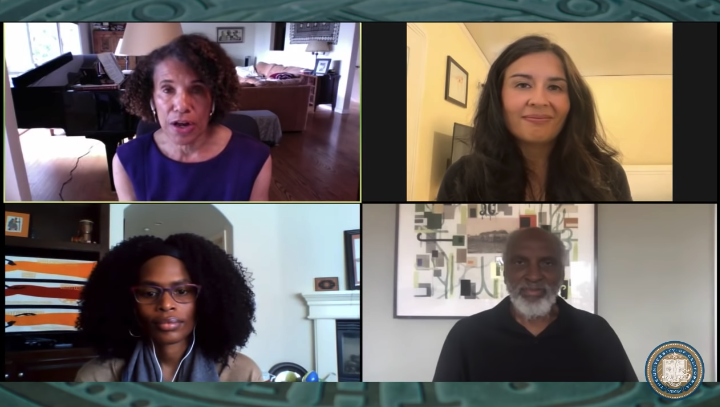 Recorded on June 26, this panel — presented as part of the Berkeley Conversations — featured john powell, Director of the Othering and Belonging Institute at UC Berkeley, Cristina Mora, Co-Director of the Institute of Governmental Studies, and Mahasin Mujahid, Epidemiologist, School of Public Health — exploring the impact of a polarized society on COVID19, especially for vulnerable populations. Mora shared data that revealed significant differences of opinion among Californians from different racial backgrounds and political leanings over questions about the threats posed by COVID-19. “In some analyses, we found that even the most liberal whites expressed less concern about COVID-19 than some of our most conservative Black and Latinx respondents,” she said. Watch the video of the panel here.
Recorded on June 26, this panel — presented as part of the Berkeley Conversations — featured john powell, Director of the Othering and Belonging Institute at UC Berkeley, Cristina Mora, Co-Director of the Institute of Governmental Studies, and Mahasin Mujahid, Epidemiologist, School of Public Health — exploring the impact of a polarized society on COVID19, especially for vulnerable populations. Mora shared data that revealed significant differences of opinion among Californians from different racial backgrounds and political leanings over questions about the threats posed by COVID-19. “In some analyses, we found that even the most liberal whites expressed less concern about COVID-19 than some of our most conservative Black and Latinx respondents,” she said. Watch the video of the panel here.
Barry Eichengreen, George C. Pardee and Helen N. Pardee Professor of Economics and Political Science at UC Berkeley, was interviewed by scholars from Economia PUC-Rio (the Department of Economics from the Pontifical Catholic University of Rio de Janeiro) about how the current pandemic (and resulting economic crisis) compare to past crises. 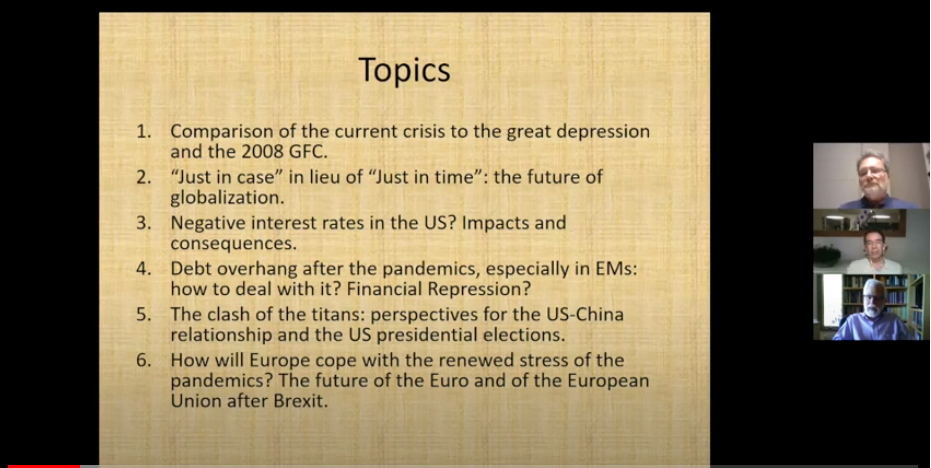 “This crisis is fundamentally different from financial crises past, and in the most part fundamentally different from other economic crises past,” Eichengreen said. “People like to compare this crisis with the 1918-1919 Spanish flu pandemic, which was global to be sure, but also was very different from what we’re going through now. That pandemic started in the midst of World War I, where governments had already ramped up public spending and were on the verge of ramping it back down. That pandemic occurred in a much less urban, industrial world than today, so it spread in urban centers like this pandemic is spreading in urban centers. But economies were less urban then than they are now. Its incidence was different in terms of hitting young people the hardest, rather than older people. All of these comparisons are highly imperfect, highly incomplete, and potentially misleading.”
“This crisis is fundamentally different from financial crises past, and in the most part fundamentally different from other economic crises past,” Eichengreen said. “People like to compare this crisis with the 1918-1919 Spanish flu pandemic, which was global to be sure, but also was very different from what we’re going through now. That pandemic started in the midst of World War I, where governments had already ramped up public spending and were on the verge of ramping it back down. That pandemic occurred in a much less urban, industrial world than today, so it spread in urban centers like this pandemic is spreading in urban centers. But economies were less urban then than they are now. Its incidence was different in terms of hitting young people the hardest, rather than older people. All of these comparisons are highly imperfect, highly incomplete, and potentially misleading.”
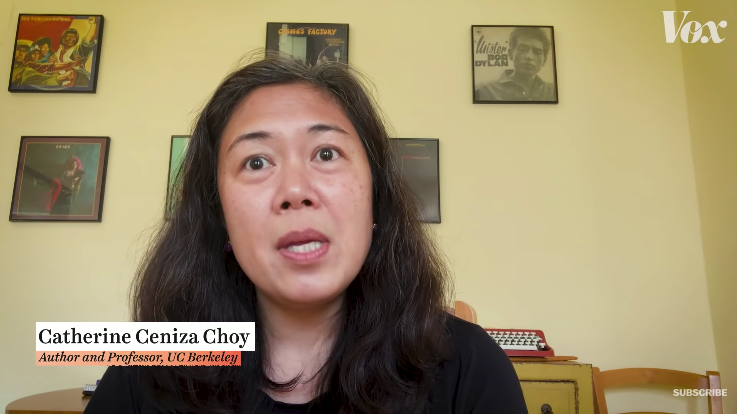 Catherine Ceniza Choy, Professor of Ethnic Studies at UC Berkeley and author of Empire of Care: Nursing and Migration in Filipino American History, was featured in a Vox.com video about “the push and pull factors and the history that led to the large presence of Filipino nurses in the US.” The accompanying article, by Christina Thornell, notes that “Filipino nurses have been disproportionately affected by the coronavirus in the US. And that’s because they make up an outsize portion of the nursing workforce. About one-third of all foreign-born nurses in the US are Filipino; it’s been a growing phenomenon for the past 50 years. Since 1960, 150,000 Filipino nurses have come to work in the US. It began with the US colonization of the Philippines under the guise of “benevolent assimilation” and has increased due to a series of US immigration policies. It has resulted in a pipeline that allows the US to draw nurses from the Philippines every time it faces a shortage. But there are factors pushing nurses out of the Philippines too. Check out the video to learn about the push and pull factors and the history that led to the large presence of Filipino nurses in the US.” Professor Ceniza Choy led a Matrix Research Team entitled “Migration, Racialization, and Gender: Comparing Filipino Migration in France and the United States.”
Catherine Ceniza Choy, Professor of Ethnic Studies at UC Berkeley and author of Empire of Care: Nursing and Migration in Filipino American History, was featured in a Vox.com video about “the push and pull factors and the history that led to the large presence of Filipino nurses in the US.” The accompanying article, by Christina Thornell, notes that “Filipino nurses have been disproportionately affected by the coronavirus in the US. And that’s because they make up an outsize portion of the nursing workforce. About one-third of all foreign-born nurses in the US are Filipino; it’s been a growing phenomenon for the past 50 years. Since 1960, 150,000 Filipino nurses have come to work in the US. It began with the US colonization of the Philippines under the guise of “benevolent assimilation” and has increased due to a series of US immigration policies. It has resulted in a pipeline that allows the US to draw nurses from the Philippines every time it faces a shortage. But there are factors pushing nurses out of the Philippines too. Check out the video to learn about the push and pull factors and the history that led to the large presence of Filipino nurses in the US.” Professor Ceniza Choy led a Matrix Research Team entitled “Migration, Racialization, and Gender: Comparing Filipino Migration in France and the United States.”
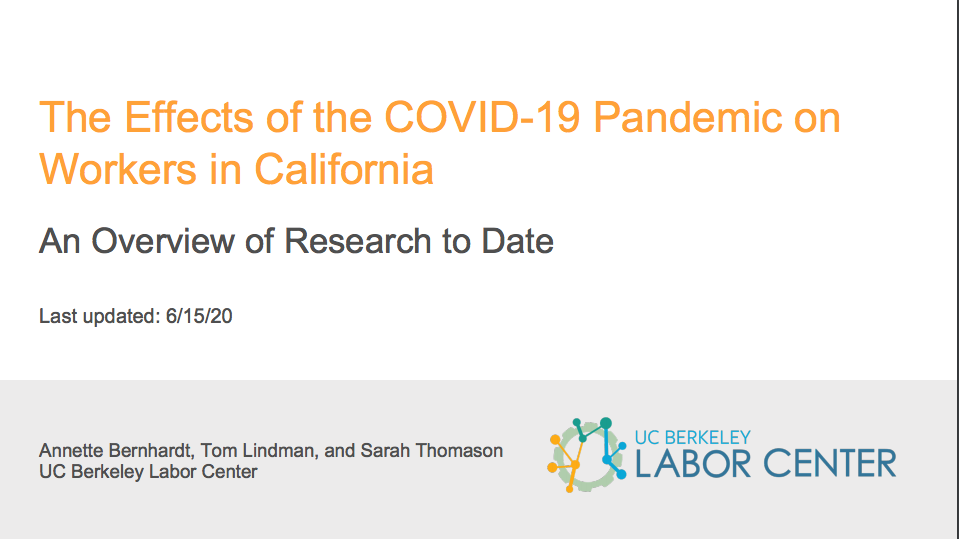 At the federal, state, and local levels, expansive new policy is being developed and implemented to address the COVID-19 pandemic’s devastating effects on workers, businesses, and the economy generally. The UC Berkeley Labor Center is working to provide research on how California specifically is experiencing the pandemic; analysis of what these new policies offer the state’s workers and businesses (and what is still needed); and curated lists of resources, information, and tools for workers and their advocates. Among the findings: more than 40 million Americans have filed for unemployment to date; the CA unemployment rate increased from 5.5% in February to 15.5% in April; just under 29% of California’s workers (including those who are self-employed) have now filed for unemployment insurance; and over 5.5 million initial claims were filed in the eleven weeks between March 15th and May 30th. Visit this page for more information, or download a PDF of the synthesis report.
At the federal, state, and local levels, expansive new policy is being developed and implemented to address the COVID-19 pandemic’s devastating effects on workers, businesses, and the economy generally. The UC Berkeley Labor Center is working to provide research on how California specifically is experiencing the pandemic; analysis of what these new policies offer the state’s workers and businesses (and what is still needed); and curated lists of resources, information, and tools for workers and their advocates. Among the findings: more than 40 million Americans have filed for unemployment to date; the CA unemployment rate increased from 5.5% in February to 15.5% in April; just under 29% of California’s workers (including those who are self-employed) have now filed for unemployment insurance; and over 5.5 million initial claims were filed in the eleven weeks between March 15th and May 30th. Visit this page for more information, or download a PDF of the synthesis report.
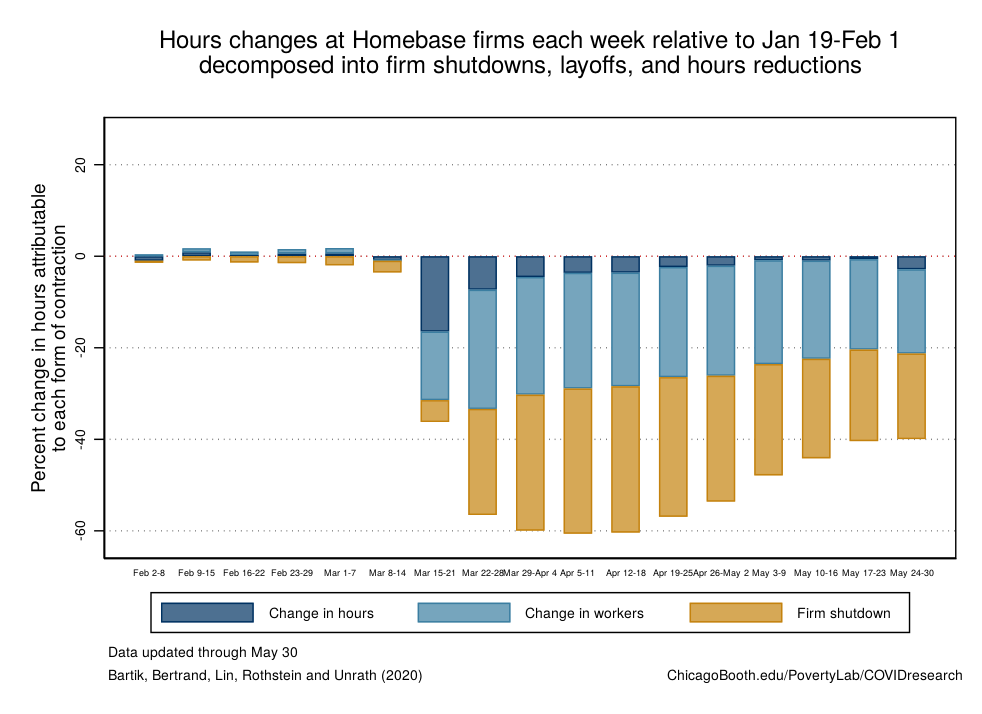
In their latest update, researchers at UC Berkeley’s Institute for Research on Labor and Employment (IRLE), the California Policy Lab, Rustandy Center for Social Sector Innovation at Chicago Booth, and the University of Chicago Poverty Lab provided an up-to-date picture of COVID-19’s labor market impact. They are taking advantage of granular data on exact hours worked among employees of firms that use the Homebase scheduling software. Reflecting data through May 23, they found that thirty percent of firms from the baseline sample remain shutdown, down from a high of 45 percent in the beginning of April. Of the firms that ever have shutdown, nearly half (44%) had reopened and remained open. Visit the IRLE’s COVID-19 research and resources page for updates.
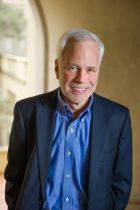 In an opinion piece published in Project Syndicate, Barry Eichengreen, Professor of Economics at UC Berkeley and a former senior policy adviser at the International Monetary Fund, argues that the protests following the death of George Floyd stemmed in part from the race-based inequality exposed by the COVID-19 pandemic. “While it has been widely noted that the social turmoil unfolding in the wake of Floyd’s death may worsen the already-acute COVID-19 crisis, the connection running in the other direction — from the pandemic to the demonstrations — has received far less attention,” Eichengreen wrote. “Without diminishing for a moment the horror of Floyd’s death, the question is: why now?…. It is not incidental that African-Americans work disproportionately in the service sector, where employment has been decimated. It is not incidental that the share of the nonelderly US population lacking health insurance is 1.5 times higher among blacks than among whites. And it is not incidental that the COVID-19 mortality rate is 2.4 times as high among black Americans as white Americans. Even without more images of police brutality, the situation facing many African-Americans, disproportionately affected by the pandemic, was already approaching the unbearable. That is because of America’s threadbare social safety net.” Read Eichengreen’s piece here.
In an opinion piece published in Project Syndicate, Barry Eichengreen, Professor of Economics at UC Berkeley and a former senior policy adviser at the International Monetary Fund, argues that the protests following the death of George Floyd stemmed in part from the race-based inequality exposed by the COVID-19 pandemic. “While it has been widely noted that the social turmoil unfolding in the wake of Floyd’s death may worsen the already-acute COVID-19 crisis, the connection running in the other direction — from the pandemic to the demonstrations — has received far less attention,” Eichengreen wrote. “Without diminishing for a moment the horror of Floyd’s death, the question is: why now?…. It is not incidental that African-Americans work disproportionately in the service sector, where employment has been decimated. It is not incidental that the share of the nonelderly US population lacking health insurance is 1.5 times higher among blacks than among whites. And it is not incidental that the COVID-19 mortality rate is 2.4 times as high among black Americans as white Americans. Even without more images of police brutality, the situation facing many African-Americans, disproportionately affected by the pandemic, was already approaching the unbearable. That is because of America’s threadbare social safety net.” Read Eichengreen’s piece here.
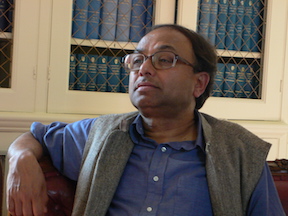 Writing for Project Syndicate, Pranab Bardhan, Professor of Graduate School at the UC Berkeley Department of Economics — and author, most recently, of Globalization, Democracy and Corruption: An Indian Perspective — argues that Indian Prime Minister Narendra Modi must do more to support the nation’s poor. “By imposing one of the world’s harshest COVID-19 lockdowns before preparing adequately or consulting with lower levels of government, Modi has inflicted unprecedented damage on India’s economy and on the poor, who live hand-to-mouth at the best of times,” Bardhan wrote. “In general, the government’s response has largely excluded hundreds of millions of daily wage laborers and urban workers. A substantial increase in cash assistance to all these people — with or without bank accounts — would have gone a long way toward boosting aggregate demand. Likewise, the government could have done more to discourage major non-farm employers from shedding their workforce, such as by offering a significant wage subsidy for workers on their payrolls (as many other countries, both rich and poor, have done). The Modi government has also ignored the pressing need for a large-scale transfer of central funds to near-bankrupt state governments…. Given that India, a country of extreme wealth inequality, taxes neither wealth nor inheritance, and under-taxes capital gains and real property, plenty of untapped revenue sources are available. A “corona levy” toward an overhaul of the country’s public-health system would also be timely. Needless to say, vested interests will vehemently oppose any new taxes. But there is no better time than a crisis to overcome such resistance.”
Writing for Project Syndicate, Pranab Bardhan, Professor of Graduate School at the UC Berkeley Department of Economics — and author, most recently, of Globalization, Democracy and Corruption: An Indian Perspective — argues that Indian Prime Minister Narendra Modi must do more to support the nation’s poor. “By imposing one of the world’s harshest COVID-19 lockdowns before preparing adequately or consulting with lower levels of government, Modi has inflicted unprecedented damage on India’s economy and on the poor, who live hand-to-mouth at the best of times,” Bardhan wrote. “In general, the government’s response has largely excluded hundreds of millions of daily wage laborers and urban workers. A substantial increase in cash assistance to all these people — with or without bank accounts — would have gone a long way toward boosting aggregate demand. Likewise, the government could have done more to discourage major non-farm employers from shedding their workforce, such as by offering a significant wage subsidy for workers on their payrolls (as many other countries, both rich and poor, have done). The Modi government has also ignored the pressing need for a large-scale transfer of central funds to near-bankrupt state governments…. Given that India, a country of extreme wealth inequality, taxes neither wealth nor inheritance, and under-taxes capital gains and real property, plenty of untapped revenue sources are available. A “corona levy” toward an overhaul of the country’s public-health system would also be timely. Needless to say, vested interests will vehemently oppose any new taxes. But there is no better time than a crisis to overcome such resistance.”
In a separate article for the blog 3 Quarks Daily, “Universal Basic Income in Post-Pandemic Poor Countries,” Professor Bardhan weighs the pros and cons of implementing universal basic income (UBI) programs as a response to the COVID-19 crisis. “Over the last decade and a half the world has been subject to many traumatic events—the financial crisis, stringent austerity policies, deep slump in many economies, large-scale job losses, technological disruptions, creeping authoritarianism and ethno-nationalist excesses, increasing incidence of natural disasters (probably attributable to the on-going climate change), agro-ecological distress, mass dislocations, and a whole sequence of epidemics, the coronavirus being the latest. All of this has dangerously exposed the fragility and insecurity of the lives and livelihoods of billions of ordinary people. This has been particularly acute in developing countries, where numerous people live a hand-to-mouth existence even in the best of times, with very little in the form of social insurance. A universal basic income supplement can provide some minimum economic security in those countries, which even under the pressing fiscal constraints may not be unaffordable.” Read the post here.
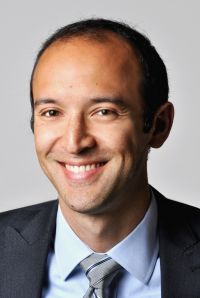 According to a new research paper published in Nature by UC Berkeley researchers, anti-contagion policies like closing schools and enforcing shelter-in-place restrictions have “signifcantly and substantially slowed” the growth of the COVID-19 pandemic. Led by Solomon Hsiang, Chancellor’s Professor at the Goldman School of Public Policy and Director of the Global Policy Lab, a global team of scholars compiled data on “1,717 local, regional, and national non-pharmaceutical interventions deployed in the ongoing pandemic across localities in China, South Korea, Italy, Iran, France, and the United States.” They then applied “reduced-form econometric methods, commonly used to measure the efect of policies on economic growth, to empirically evaluate the efect that these anti-contagion policies have had on the growth rate of infections…. We estimate that across these six countries, interventions prevented or delayed on the order of 62 million confrmed cases, corresponding to averting roughly 530 million total infections. These fndings may help inform whether or when these policies should be deployed, intensifed, or lifted, and they can support decision-making in the other 180+ countries where COVID-19 has been reported.” A write-up about the research by Berkeley News reporter Edward Lempinen can be found here.
According to a new research paper published in Nature by UC Berkeley researchers, anti-contagion policies like closing schools and enforcing shelter-in-place restrictions have “signifcantly and substantially slowed” the growth of the COVID-19 pandemic. Led by Solomon Hsiang, Chancellor’s Professor at the Goldman School of Public Policy and Director of the Global Policy Lab, a global team of scholars compiled data on “1,717 local, regional, and national non-pharmaceutical interventions deployed in the ongoing pandemic across localities in China, South Korea, Italy, Iran, France, and the United States.” They then applied “reduced-form econometric methods, commonly used to measure the efect of policies on economic growth, to empirically evaluate the efect that these anti-contagion policies have had on the growth rate of infections…. We estimate that across these six countries, interventions prevented or delayed on the order of 62 million confrmed cases, corresponding to averting roughly 530 million total infections. These fndings may help inform whether or when these policies should be deployed, intensifed, or lifted, and they can support decision-making in the other 180+ countries where COVID-19 has been reported.” A write-up about the research by Berkeley News reporter Edward Lempinen can be found here.
 African Americans are nearly twice as likely to die from COVID-19 as would be expected based on their share of the population. To understand why, Brandon Patterson, writing for California magazine, a publication for UC Berkeley alumni, interviewed Tina Sacks, a professor at the UC Berkeley School of Social Welfare whose research focuses on poverty, inequality, and racial inequities in health. “The United States is built around structural inequality,” Sacks said. “Those things play out in terms of what’s happening with COVID because black people don’t have as many buffers. Black people are not concentrated in jobs in which they can work from home. They’re also more likely to be in jobs that don’t have paid sick leave. They’re in public-facing jobs that bring them in contact with the public all the time like postal workers or a conductor on BART. That’s one big factor. There are [also] other factors related to health. Black people have been systematically denied medical treatment for hundreds of years. They receive substandard medical treatment. Consequently, black people are much more likely to suffer from chronic health problems that make them more susceptible to COVID and dying from COVID. The conditions in which black people live and work are harmful to our health. Black people are much more likely to live in segregated communities that are fundamentally separate and unequal. They do not have the same institutional anchors that even lower income white communities have in terms of grocery stores, having some place to exercise, and fresh air. So black people’s health is really compromised at every level—and not to mention the psychic trauma that black people endure all the time in terms of police violence and day-to-day exposure to racism. The reasons are numerous but they’re really essentially the same across the country.” Read the full interview here.
African Americans are nearly twice as likely to die from COVID-19 as would be expected based on their share of the population. To understand why, Brandon Patterson, writing for California magazine, a publication for UC Berkeley alumni, interviewed Tina Sacks, a professor at the UC Berkeley School of Social Welfare whose research focuses on poverty, inequality, and racial inequities in health. “The United States is built around structural inequality,” Sacks said. “Those things play out in terms of what’s happening with COVID because black people don’t have as many buffers. Black people are not concentrated in jobs in which they can work from home. They’re also more likely to be in jobs that don’t have paid sick leave. They’re in public-facing jobs that bring them in contact with the public all the time like postal workers or a conductor on BART. That’s one big factor. There are [also] other factors related to health. Black people have been systematically denied medical treatment for hundreds of years. They receive substandard medical treatment. Consequently, black people are much more likely to suffer from chronic health problems that make them more susceptible to COVID and dying from COVID. The conditions in which black people live and work are harmful to our health. Black people are much more likely to live in segregated communities that are fundamentally separate and unequal. They do not have the same institutional anchors that even lower income white communities have in terms of grocery stores, having some place to exercise, and fresh air. So black people’s health is really compromised at every level—and not to mention the psychic trauma that black people endure all the time in terms of police violence and day-to-day exposure to racism. The reasons are numerous but they’re really essentially the same across the country.” Read the full interview here.
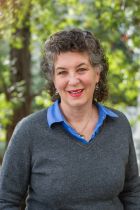 Martha Olney, a Teaching Professor in Berkeley’s Economics Department, was interviewed by Darian Woods, of NPR’s “Planet Money,” for a segment focused on “where the money actually goes when the economy crashes.” Olney provided an explanation of the difference between wealth and income. “Part of the question comes from using the word money to mean more than one thing…. In the pandemic, what’s gone is income. In a normal time, one person will spend money, and that becomes the income of the next person, and their spending becomes the income of the next person. And so we have this flow of funds through the economy, and that’s what generates income for a person…. The money didn’t disappear. The $20 bills still exist in that sense. What doesn’t exist anymore is the income that we would have received in March and April and into May as a result of other people buying the things that we produce…. Our wealth is the value of the assets that we own. And so the gold bar in the vault is an asset that we own…. The physical wealth is still there. So the garage is still there. The tools are still there. My computer is still here. And my office, I believe, is still there, although we haven’t been allowed on campus for two months. And so those things still exist, and they still have value.” Listen to the full interview here.
Martha Olney, a Teaching Professor in Berkeley’s Economics Department, was interviewed by Darian Woods, of NPR’s “Planet Money,” for a segment focused on “where the money actually goes when the economy crashes.” Olney provided an explanation of the difference between wealth and income. “Part of the question comes from using the word money to mean more than one thing…. In the pandemic, what’s gone is income. In a normal time, one person will spend money, and that becomes the income of the next person, and their spending becomes the income of the next person. And so we have this flow of funds through the economy, and that’s what generates income for a person…. The money didn’t disappear. The $20 bills still exist in that sense. What doesn’t exist anymore is the income that we would have received in March and April and into May as a result of other people buying the things that we produce…. Our wealth is the value of the assets that we own. And so the gold bar in the vault is an asset that we own…. The physical wealth is still there. So the garage is still there. The tools are still there. My computer is still here. And my office, I believe, is still there, although we haven’t been allowed on campus for two months. And so those things still exist, and they still have value.” Listen to the full interview here.
 UC Berkeley economists Jesse Rothstein and Danny Yagan, together with Martha Gimbel, of Schmidt Futures, released research on how the U.S. labor market compares with others during the pandemic. The study “compiles and compares official jobs numbers from seven major countries through April 2020. Post-COVID job losses have varied dramatically across countries. The United States experienced the largest January-to-April rise in unemployment and along with Canada lost over 15% of employment, amounting to 25 million newly jobless U.S. individuals. Germany, Japan, South Korea, Australia, and Israel lost only 0.7%-4.4% of employment – equivalent to 18-24 million fewer jobless individuals on America’s population base. Germany and Japan each lost only 0.9% of employment as millions of their workers received assistance while working reduced hours under previously established ‘short-time’ work systems. In contrast, employers in the United States and Canada eliminated jobs altogether as the virus spread. South Korea and Australia share strong travel ties with China but contained their outbreaks quickly, experiencing respective employment declines of only 3.6% and 4.4%. Hence, job losses have been lowest in countries that either contained the virus early or had robust systems for subsidizing jobs at reduced hours.” Read the paper here.
UC Berkeley economists Jesse Rothstein and Danny Yagan, together with Martha Gimbel, of Schmidt Futures, released research on how the U.S. labor market compares with others during the pandemic. The study “compiles and compares official jobs numbers from seven major countries through April 2020. Post-COVID job losses have varied dramatically across countries. The United States experienced the largest January-to-April rise in unemployment and along with Canada lost over 15% of employment, amounting to 25 million newly jobless U.S. individuals. Germany, Japan, South Korea, Australia, and Israel lost only 0.7%-4.4% of employment – equivalent to 18-24 million fewer jobless individuals on America’s population base. Germany and Japan each lost only 0.9% of employment as millions of their workers received assistance while working reduced hours under previously established ‘short-time’ work systems. In contrast, employers in the United States and Canada eliminated jobs altogether as the virus spread. South Korea and Australia share strong travel ties with China but contained their outbreaks quickly, experiencing respective employment declines of only 3.6% and 4.4%. Hence, job losses have been lowest in countries that either contained the virus early or had robust systems for subsidizing jobs at reduced hours.” Read the paper here.
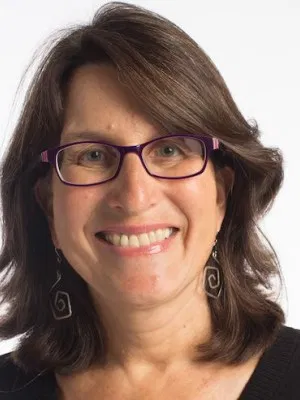 The UC Berkeley School of Public Health released a report this month revealing that providers for youth experiencing homelessness should be supported in order to adequately care for those who are unable to shelter in place. The report, titled “On the COVID-19 Front Line and Hurting,” discusses the needs of providers for youth experiencing homelessness in the East Bay as well as of the youth themselves. As reported by Luis Cobian in the Daily Californian, the report was the result of a collaboration between the UC Berkeley Catalyst Group to End Youth Homelessness, sponsored by Innovations for Youth, or i4Y, and the UC Berkeley School of Public Health COVID-19 Community Action Team. ‘Both in Alameda County and in Berkeley, youth homelessness is vastly, disproportionately, African American,’ said Coco Auerswald, UC Berkeley professor and principal investigator of the study, who has been researching youth homelessness for almost 25 years. ‘And that’s in Berkeley, which is by no means a predominantly African American community.’ According to her research, Berkeley’s population is approximately 8% African American, yet 75% of minors who were getting services for homelessness in Berkeley were Black. The report found that what is most needed for youth experiencing homelessness are clean and sanitary public restrooms, shower and laundry facilities, easy access to masks and packaged food, decriminalization of homelessness and access to information and services that can help them shelter in place the best they can. It also found that, to support youth experiencing homelessness, the providers for the youth must also be given funding for disinfectant and hygienic supplies, personal protective equipment including masks, mental health support, hazard pay and on-demand COVID-19 testing for both the youth and providers, regardless of symptoms.” Read the Daily Cal article here. Read the full report, “On the COVID-19 Front Line and Hurting.”
The UC Berkeley School of Public Health released a report this month revealing that providers for youth experiencing homelessness should be supported in order to adequately care for those who are unable to shelter in place. The report, titled “On the COVID-19 Front Line and Hurting,” discusses the needs of providers for youth experiencing homelessness in the East Bay as well as of the youth themselves. As reported by Luis Cobian in the Daily Californian, the report was the result of a collaboration between the UC Berkeley Catalyst Group to End Youth Homelessness, sponsored by Innovations for Youth, or i4Y, and the UC Berkeley School of Public Health COVID-19 Community Action Team. ‘Both in Alameda County and in Berkeley, youth homelessness is vastly, disproportionately, African American,’ said Coco Auerswald, UC Berkeley professor and principal investigator of the study, who has been researching youth homelessness for almost 25 years. ‘And that’s in Berkeley, which is by no means a predominantly African American community.’ According to her research, Berkeley’s population is approximately 8% African American, yet 75% of minors who were getting services for homelessness in Berkeley were Black. The report found that what is most needed for youth experiencing homelessness are clean and sanitary public restrooms, shower and laundry facilities, easy access to masks and packaged food, decriminalization of homelessness and access to information and services that can help them shelter in place the best they can. It also found that, to support youth experiencing homelessness, the providers for the youth must also be given funding for disinfectant and hygienic supplies, personal protective equipment including masks, mental health support, hazard pay and on-demand COVID-19 testing for both the youth and providers, regardless of symptoms.” Read the Daily Cal article here. Read the full report, “On the COVID-19 Front Line and Hurting.”
 UC Berkeley’s Jesse Rothstein, professor of public policy and economics, together with Jared Bernstein, chief economist to former vice president Joe Biden, wrote an op-ed in the Washington Post arguing that the federal government should continue to provide stimulus to the economy after the Cares Act is phased out to avoid “scarring effects,” the ongoing damage resulting from economic downturns. “Research has found that even short-lived recessions cause lasting damage to both labor and product markets,” Rothstein and Bernstein wrote. “Workers who are displaced or unable to find jobs at the beginning of their careers are slowed in their progress. It takes them many years to make up lost ground, and they have lower employment and earnings in the meantime, even if the overall economy has recovered….The imperative to avoid scarring also elevates the need to both preserve businesses through virus-induced shutdowns and create fertile ground for start-ups on the other side. Congress has legislated business-preservation programs, but they’ve focused too much on payroll maintenance and too little on helping firms avoid bankruptcy through meeting their non-labor costs. Many European countries have done both — simultaneously ensuring payroll and preventing bankruptcy. Based on our analysis, this should pave the way for quicker recoveries in those countries. It’s not too late to emulate their approach, and a group of Senate Democrats recently introduced a smart, efficient plan designed to equally support workers and businesses as they gradually reopen.” Read the op-ed here.
UC Berkeley’s Jesse Rothstein, professor of public policy and economics, together with Jared Bernstein, chief economist to former vice president Joe Biden, wrote an op-ed in the Washington Post arguing that the federal government should continue to provide stimulus to the economy after the Cares Act is phased out to avoid “scarring effects,” the ongoing damage resulting from economic downturns. “Research has found that even short-lived recessions cause lasting damage to both labor and product markets,” Rothstein and Bernstein wrote. “Workers who are displaced or unable to find jobs at the beginning of their careers are slowed in their progress. It takes them many years to make up lost ground, and they have lower employment and earnings in the meantime, even if the overall economy has recovered….The imperative to avoid scarring also elevates the need to both preserve businesses through virus-induced shutdowns and create fertile ground for start-ups on the other side. Congress has legislated business-preservation programs, but they’ve focused too much on payroll maintenance and too little on helping firms avoid bankruptcy through meeting their non-labor costs. Many European countries have done both — simultaneously ensuring payroll and preventing bankruptcy. Based on our analysis, this should pave the way for quicker recoveries in those countries. It’s not too late to emulate their approach, and a group of Senate Democrats recently introduced a smart, efficient plan designed to equally support workers and businesses as they gradually reopen.” Read the op-ed here.
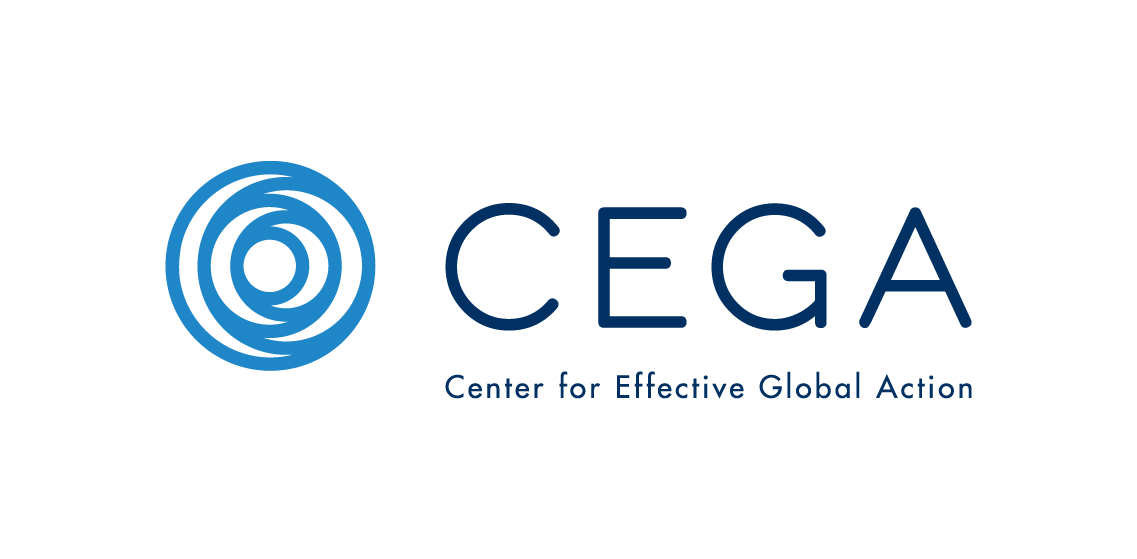 On June 10, the Center for Effective Global Action (CEGA) will sponsor a panel featuring four experts from the CEGA research community to discuss ongoing and completed research that sheds light on the economic toll of the pandemic, as well as the optimal design and targeting of cash transfer programs. Panelists include: Ted Miguel, Oxfam Professor of Environmental and Resource Economics in the Department of Economics at UC Berkeley and Faculty co-Director of the Center for Effective Global Action (CEGA), who will present new evidence from Kenya demonstrating the economic toll of COVID on poor households; Supreet Kaur, Assistant Professor of Economics at UC Berkeley and CEGA affiliate, who will share research on the impacts and legacy of scarcity and economic shocks in India, with implications for other countries; Paul Niehaus, Associate Professor of Economics at the University of California, San Diego, who will explain GiveDirectly’s tested social safety net model (unconditional cash transfers), reviewing evidence from Kenya, Uganda, and Rwanda; and Josh Blumenstock, Assistant Professor at the UC Berkeley School of Information and Director of the Data-Intensive Development Lab, who will discuss the potential to use machine learning approaches and nontraditional data sources (including mobile phone records) to quickly and effectively target the delivery of social safety net programs. Carson Christiano, CEGA Executive Director, will moderate the panel. Watch here.
On June 10, the Center for Effective Global Action (CEGA) will sponsor a panel featuring four experts from the CEGA research community to discuss ongoing and completed research that sheds light on the economic toll of the pandemic, as well as the optimal design and targeting of cash transfer programs. Panelists include: Ted Miguel, Oxfam Professor of Environmental and Resource Economics in the Department of Economics at UC Berkeley and Faculty co-Director of the Center for Effective Global Action (CEGA), who will present new evidence from Kenya demonstrating the economic toll of COVID on poor households; Supreet Kaur, Assistant Professor of Economics at UC Berkeley and CEGA affiliate, who will share research on the impacts and legacy of scarcity and economic shocks in India, with implications for other countries; Paul Niehaus, Associate Professor of Economics at the University of California, San Diego, who will explain GiveDirectly’s tested social safety net model (unconditional cash transfers), reviewing evidence from Kenya, Uganda, and Rwanda; and Josh Blumenstock, Assistant Professor at the UC Berkeley School of Information and Director of the Data-Intensive Development Lab, who will discuss the potential to use machine learning approaches and nontraditional data sources (including mobile phone records) to quickly and effectively target the delivery of social safety net programs. Carson Christiano, CEGA Executive Director, will moderate the panel. Watch here.
 On May 27, as part of the Berkeley Conversations series, researchers from UC Berkeley’s Institute of Governmental Studies (IGS) and the California Initiative for Health Equity & Action (Cal-IHEA) discussed the findings of a recent poll on Californians’ opinions and attitudes related to COVID-19. IGS Co-Directors Cristina Mora and Eric Schickler and Cal-IHEA Director Hector Rodriguez delved into the significance and meaning of the data, and what it might portend for California and the nation in the current context of political polarization and racial inequality. The results point to a wide range of potential political and societal impacts arising from our still-unfolding responses to the pandemic. “One of the biggest trends that stuck out was the racial and class differences we found across the board,” Mora said. “Going into the poll we knew that COVID would exacerbate the racial and class inequality, but we didn’t know how much and in what ways this would be the case…. The results were quite stark. On the one hand, Latinos, Asians, and blacks were all much more likely to say that COVID was a serious threat to their health — much more likely than whites to say that, for example. The perceived threat was already there. But we also found that racial minorities were also more in situations that were more likely to be exposed to COVID. There’s a 20 point difference between whites and Latinos in terms of who is able to work from home safely.” Watch the full conversation here. (Note the video begins around 12:48.)
On May 27, as part of the Berkeley Conversations series, researchers from UC Berkeley’s Institute of Governmental Studies (IGS) and the California Initiative for Health Equity & Action (Cal-IHEA) discussed the findings of a recent poll on Californians’ opinions and attitudes related to COVID-19. IGS Co-Directors Cristina Mora and Eric Schickler and Cal-IHEA Director Hector Rodriguez delved into the significance and meaning of the data, and what it might portend for California and the nation in the current context of political polarization and racial inequality. The results point to a wide range of potential political and societal impacts arising from our still-unfolding responses to the pandemic. “One of the biggest trends that stuck out was the racial and class differences we found across the board,” Mora said. “Going into the poll we knew that COVID would exacerbate the racial and class inequality, but we didn’t know how much and in what ways this would be the case…. The results were quite stark. On the one hand, Latinos, Asians, and blacks were all much more likely to say that COVID was a serious threat to their health — much more likely than whites to say that, for example. The perceived threat was already there. But we also found that racial minorities were also more in situations that were more likely to be exposed to COVID. There’s a 20 point difference between whites and Latinos in terms of who is able to work from home safely.” Watch the full conversation here. (Note the video begins around 12:48.)
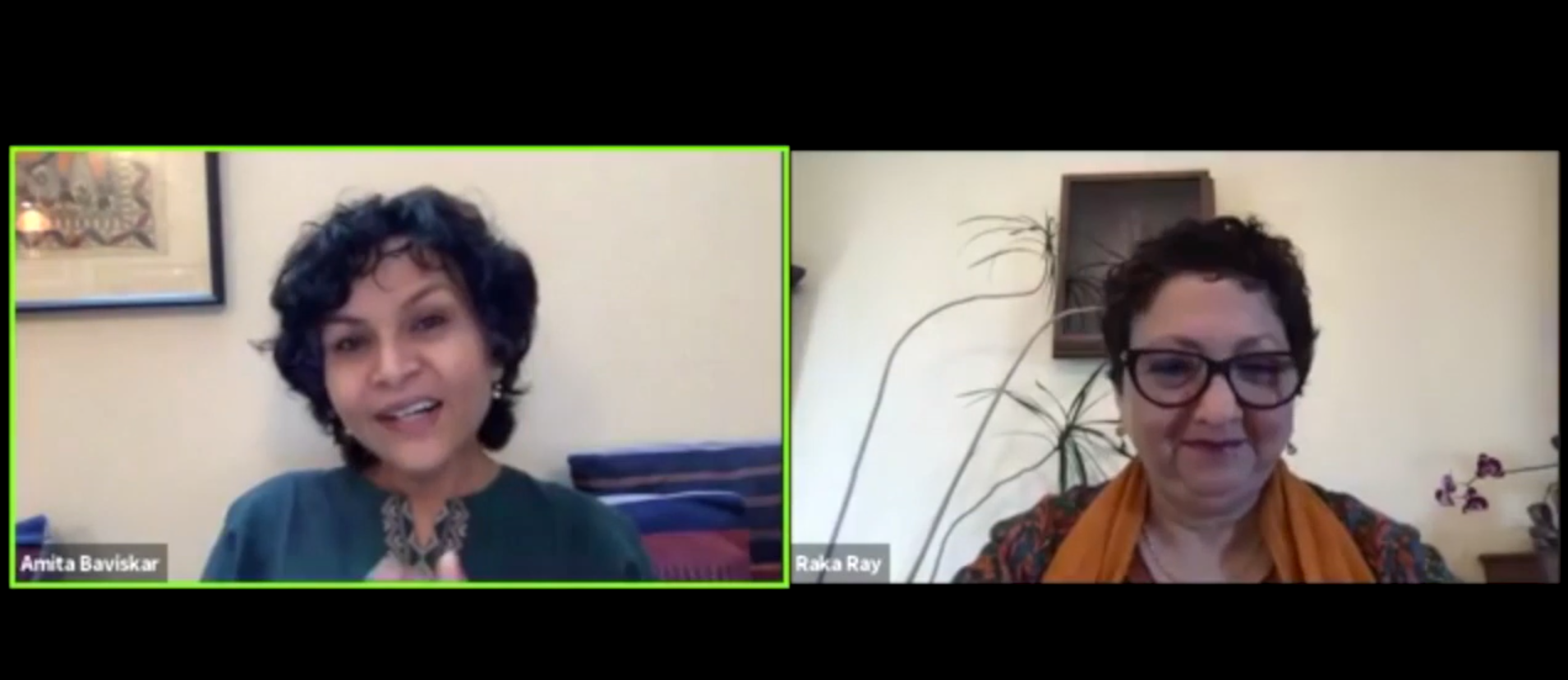 In a discussion coordinated by the Institute for South Asia Studies, Raka Ray, Professor of Sociology and South & Southeast Asia Studies and Dean of the UC Berkeley Division of Social Sciences, engaged in conversation with Amita Baviskar, Head of the Department of Environmental Studies and Professor of Environmental Studies and Sociology & Anthropology at Ashoka University, about the impact of COVID on households in India. “Whether it be called lockdown, as in India, or sheltering in place, as in California, the home has assumed particular significance, for it is to this space that we are all confined,” Ray said. “For those of us who have jobs and can work from home, the boundaries between home and work are blurred…. And for those of us who no longer have jobs, home takes on an entirely different meaning as well. And so we want to talk about the effect of COVID on the place that we call home. Home as we know it is not just a place of safety and refuge for us to nurture our families and be nurtured by our families. For many, home is a place of labor. Paid and unpaid, it is a place of pain and it is a place where inequalities are reproduced and produced.” Watch the full conversation here.
In a discussion coordinated by the Institute for South Asia Studies, Raka Ray, Professor of Sociology and South & Southeast Asia Studies and Dean of the UC Berkeley Division of Social Sciences, engaged in conversation with Amita Baviskar, Head of the Department of Environmental Studies and Professor of Environmental Studies and Sociology & Anthropology at Ashoka University, about the impact of COVID on households in India. “Whether it be called lockdown, as in India, or sheltering in place, as in California, the home has assumed particular significance, for it is to this space that we are all confined,” Ray said. “For those of us who have jobs and can work from home, the boundaries between home and work are blurred…. And for those of us who no longer have jobs, home takes on an entirely different meaning as well. And so we want to talk about the effect of COVID on the place that we call home. Home as we know it is not just a place of safety and refuge for us to nurture our families and be nurtured by our families. For many, home is a place of labor. Paid and unpaid, it is a place of pain and it is a place where inequalities are reproduced and produced.” Watch the full conversation here.
 Between April 16 and 20, 2020,the Institute of Governmental Studies (IGS) and the California Initiative for Health Equity & Action (Cal-IHEA), polled 8,800 registered voters about the racialized language President Trump uses when referring to COVID-19. Overall, Californians who approve of the President are not only more likely to blame the Chinese government for the pandemic and shortage of medical supplies but they are also more likely to agree with calling the coronavirus the ‘China virus’. When asked whether it is acceptable for President Trump to refer to COVID-19 as the ‘China virus,’ the ‘Chinese virus,’ or the ‘Wuhan virus’, only 29% of California voters endorse the use of these terms. Of voters who disapprove or strongly disapprove of the President, only 8% believe that his use of these terms is acceptable, compared to 76% of voters who approve or strongly approve ofthe President. As the coronavirus has spread across the U.S., a surge in anti-Asian rhetoric and hate crimes has occurred. Asians have historically been blamed for being disease carriers. According to the Stop AAPI Hate reporting center, this led to over 1,500 reported coronavirus-related racist incidents against Asians in one month since the group began tracking cases in March. Read more about the poll.
Between April 16 and 20, 2020,the Institute of Governmental Studies (IGS) and the California Initiative for Health Equity & Action (Cal-IHEA), polled 8,800 registered voters about the racialized language President Trump uses when referring to COVID-19. Overall, Californians who approve of the President are not only more likely to blame the Chinese government for the pandemic and shortage of medical supplies but they are also more likely to agree with calling the coronavirus the ‘China virus’. When asked whether it is acceptable for President Trump to refer to COVID-19 as the ‘China virus,’ the ‘Chinese virus,’ or the ‘Wuhan virus’, only 29% of California voters endorse the use of these terms. Of voters who disapprove or strongly disapprove of the President, only 8% believe that his use of these terms is acceptable, compared to 76% of voters who approve or strongly approve ofthe President. As the coronavirus has spread across the U.S., a surge in anti-Asian rhetoric and hate crimes has occurred. Asians have historically been blamed for being disease carriers. According to the Stop AAPI Hate reporting center, this led to over 1,500 reported coronavirus-related racist incidents against Asians in one month since the group began tracking cases in March. Read more about the poll.
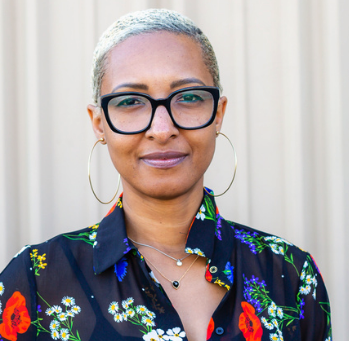 Brandi T. Summers, assistant professor of geography and global metropolitan studies at UC Berkeley — and author of Black in Place: The Spatial Aesthetics of Race in a Post-Chocolate City — published an op-ed in the New York Times arguing that black Americans have long been “trapped in place,” whether by remote, uninhabitable housing projects or constant policy surveillance. “Under the quarantine, much has been made of Americans’ regulated lack of mobility,” Summers wrote. “But our cities have long kept their black residents contained and at the margins…. One might even consider the black experience as a kind of never-ending quarantine — and indeed Jim Crow laws that grew partly out of concerns that black people spread ‘contagion,’ like tuberculosis and malaria, affirmed as much…. We can fight for opening our cities — politically, economically and racially — with the same energy they are putting toward opening our streets. We must create solutions that benefit the masses, not a select few. A true end to quarantine demands ending the quarantining city. It may not be the best we can do, but it’s the least we can ask.” Read the op-ed here.
Brandi T. Summers, assistant professor of geography and global metropolitan studies at UC Berkeley — and author of Black in Place: The Spatial Aesthetics of Race in a Post-Chocolate City — published an op-ed in the New York Times arguing that black Americans have long been “trapped in place,” whether by remote, uninhabitable housing projects or constant policy surveillance. “Under the quarantine, much has been made of Americans’ regulated lack of mobility,” Summers wrote. “But our cities have long kept their black residents contained and at the margins…. One might even consider the black experience as a kind of never-ending quarantine — and indeed Jim Crow laws that grew partly out of concerns that black people spread ‘contagion,’ like tuberculosis and malaria, affirmed as much…. We can fight for opening our cities — politically, economically and racially — with the same energy they are putting toward opening our streets. We must create solutions that benefit the masses, not a select few. A true end to quarantine demands ending the quarantining city. It may not be the best we can do, but it’s the least we can ask.” Read the op-ed here.
Nordic countries are regularly cited as exemplars of healthy and resilient societies. A Berkeley Conversations discussion sponsored by the UC Berkeley Haas Center for Responsible Business, the UC Berkeley Department of Scandinavian, the Institute of European Studies, the Peder Sather Center, and Nordic Talks at Berkeley will focus on comparing and contrasting the Nordic public health, economic, and public policy responses to the COVID-19 pandemic, particularly the responses by Denmark and Sweden, and consider learnings that may be drawn by the U.S. Hosted by Dr. Laura Tyson, Professor Emeritus at UC Berkeley, the event will feature Dr. Robert Strand, Executive Director of the Center for Responsible Business and leading expert on Nordic sustainable business and Sustainable Development Goals (SDGs), and Dr. Ann Keller, Associate Professor of Health Policy and Management and leading expert on pandemic responses. Watch the conversation here.
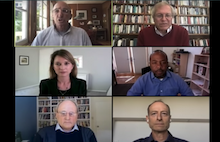 A recent panel convened as part of the Berkeley Conversations: COVID-19 brought together experts in political science, public policy, cybersecurity, and law to discuss how the COVID-19 pandemic will affect the November 2020 election. Presented by Berkeley Public Affairs, the discussion focused on an array of issues, from presidential approval ratings, the Constitution, election law, unemployment rates to the security of digital voting, the scholars concluded it was still too uncertain to draw any sweeping conclusions. Except that November 2020 will be an election without precedent. “The Trump administration has decided to make an enormous policy and political bet, and the bet is that they can re-open the economy, and the economy will come back in time for the election, and that COVID-19 won’t re-erupt in a way that will either stifle those efforts or kill lots of people,” said Henry Brady, dean of the Goldman School of Public Policy when asked to sum up the next six months. Others, like Bertrall Ross, a professor at Berkeley Law, wondered how the threat of contracting COVID-19 would affect voter turnout, especially among black and Latinx voters who are at higher risk of serious complications if they contract the virus. Philip Stark, a professor of statistics and an expert in election security, wondered if there would be “convincing evidence that the reported winners actually won. Or, are we going to have to take it on faith?” Sarah Anzia, a professor of politics and public policy, noted that there is some hope amid the uncertainty: An messy election could open the door for election law reform, including increased use of vote-by-mail ballots. But on balance, the group said, there is still much to figure out. “Will we be able to hold an election in November that will maximize the ability of people to vote consistent with public health?” asked Erwin Chemerinsky, dean of Berkeley Law. “I don’t think we know right now.” View the video on the Berkeley Conversations website.
A recent panel convened as part of the Berkeley Conversations: COVID-19 brought together experts in political science, public policy, cybersecurity, and law to discuss how the COVID-19 pandemic will affect the November 2020 election. Presented by Berkeley Public Affairs, the discussion focused on an array of issues, from presidential approval ratings, the Constitution, election law, unemployment rates to the security of digital voting, the scholars concluded it was still too uncertain to draw any sweeping conclusions. Except that November 2020 will be an election without precedent. “The Trump administration has decided to make an enormous policy and political bet, and the bet is that they can re-open the economy, and the economy will come back in time for the election, and that COVID-19 won’t re-erupt in a way that will either stifle those efforts or kill lots of people,” said Henry Brady, dean of the Goldman School of Public Policy when asked to sum up the next six months. Others, like Bertrall Ross, a professor at Berkeley Law, wondered how the threat of contracting COVID-19 would affect voter turnout, especially among black and Latinx voters who are at higher risk of serious complications if they contract the virus. Philip Stark, a professor of statistics and an expert in election security, wondered if there would be “convincing evidence that the reported winners actually won. Or, are we going to have to take it on faith?” Sarah Anzia, a professor of politics and public policy, noted that there is some hope amid the uncertainty: An messy election could open the door for election law reform, including increased use of vote-by-mail ballots. But on balance, the group said, there is still much to figure out. “Will we be able to hold an election in November that will maximize the ability of people to vote consistent with public health?” asked Erwin Chemerinsky, dean of Berkeley Law. “I don’t think we know right now.” View the video on the Berkeley Conversations website.
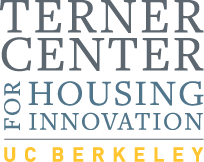 An editorial by the San Francisco Chronicle Editorial Board drew upon research from UC Berkeley’s Terner Center for Housing Innovation to highlight how California’s housing crisis is worsening during the COVID-19 pandemic. In a recent study, the Terner Center estimated that more than a quarter-million tenant households in the San Francisco-Oakland area depend on industries hurt by the pandemic, and their median rent amounts to more than 80% of the minimum unemployment benefits they can expect under Congress’ stimulus legislation. “The trouble with letting a crisis linger is that a new one inevitably arrives,” the Chronicle Editorial Board wrote. “California’s leaders have finally waited long enough: The state’s housing shortage has been joined by another disaster, one that compounds and complicates the consequences of the first. The coronavirus pandemic and the strict distancing measures imposed in response administered a financial shock to a state already weakened by housing scarcity. The pathogen arrived to find more than 150,000 of the most vulnerable among us in shelters, tents and doorways, rendering them that much more susceptible to infection and worse. The state’s economy and revenues, for all their strength, have been constrained by the crisis, leaving our government and society less able to sustain the blow. And the opportunity to clean up the mess in good times has finally elapsed, forcing a scramble to manage both crises simultaneously.” Read the full San Francisco Chronicle editorial here.
An editorial by the San Francisco Chronicle Editorial Board drew upon research from UC Berkeley’s Terner Center for Housing Innovation to highlight how California’s housing crisis is worsening during the COVID-19 pandemic. In a recent study, the Terner Center estimated that more than a quarter-million tenant households in the San Francisco-Oakland area depend on industries hurt by the pandemic, and their median rent amounts to more than 80% of the minimum unemployment benefits they can expect under Congress’ stimulus legislation. “The trouble with letting a crisis linger is that a new one inevitably arrives,” the Chronicle Editorial Board wrote. “California’s leaders have finally waited long enough: The state’s housing shortage has been joined by another disaster, one that compounds and complicates the consequences of the first. The coronavirus pandemic and the strict distancing measures imposed in response administered a financial shock to a state already weakened by housing scarcity. The pathogen arrived to find more than 150,000 of the most vulnerable among us in shelters, tents and doorways, rendering them that much more susceptible to infection and worse. The state’s economy and revenues, for all their strength, have been constrained by the crisis, leaving our government and society less able to sustain the blow. And the opportunity to clean up the mess in good times has finally elapsed, forcing a scramble to manage both crises simultaneously.” Read the full San Francisco Chronicle editorial here.
UC Berkeley’s Institute of Governmental Studies (IGS) has released a poll showing broad public support for protecting farmworkers and providing access to paid sick leave, medical benefits, and full replacement wages if they fall sick with COVID-19. However, these views vary by region, partisanship, trust in the federal government, and attitudes toward immigrants. Between April 16 and 20, 2020 the Institute of Governmental Studies (IGS) and California Initiative for Health Equity & Action (Cal-IHEA), polled 8,800 registered voters about COVID-19. While the majority of employed Californians can work from home, farmworkers continue to work to maintain the country’s food supply during a period of critical need. California farmworkers harvest over a third of U.S. vegetables and two-thirds of the country’s fruits and nuts. However, they remain economically and medically vulnerable to repercussions of the COVID-19 pandemic. Voters in the Central Valley, however, are less likely to support protections for farmworkers despite being the most productive agricultural region of the state and most dependent on farmworkers for their local economy. A quarter of Central Valley voters (25.2%) opposed employer provision of equitable medical and paid sick leave to all farmworkers, regardless of their legal status, if they fall sick with COVID-19, compared to 12.5% of San Francisco Bay Area and 10.4% of Los Angeles County voters. Read the full press release here.
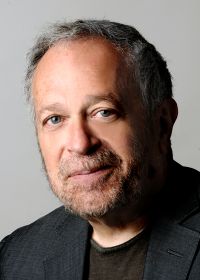 In an op-ed written for The Guardian, Robert Reich, former U.S. Secretary of Labor and now Carmel P. Friesen Professor of Public Policy in the UC Berkeley Goldman School of Public Policy (and author of the new book, The System: Who Rigged It, How We Fix It), examined some of the structural issues that have made the U.S. particularly vulnerable to the COVID-19 pandemic. He points to the nation’s failure to provide universal healthcare or basic sick leave, its weak unemployment system, and its widespread unsafe working conditions. “With 4.25% of the world population, America has the tragic distinction of accounting for about 30% of pandemic deaths so far. And it is the only advanced nation where the death rate is still climbing,” Reich wrote. “So who and what’s to blame for the worst avoidable loss of life in American history? Partly, Donald Trump’s malfeasance. But the calamity is also due to America’s longer-term failure to provide its people the basic support they need.” Read the piece here.
In an op-ed written for The Guardian, Robert Reich, former U.S. Secretary of Labor and now Carmel P. Friesen Professor of Public Policy in the UC Berkeley Goldman School of Public Policy (and author of the new book, The System: Who Rigged It, How We Fix It), examined some of the structural issues that have made the U.S. particularly vulnerable to the COVID-19 pandemic. He points to the nation’s failure to provide universal healthcare or basic sick leave, its weak unemployment system, and its widespread unsafe working conditions. “With 4.25% of the world population, America has the tragic distinction of accounting for about 30% of pandemic deaths so far. And it is the only advanced nation where the death rate is still climbing,” Reich wrote. “So who and what’s to blame for the worst avoidable loss of life in American history? Partly, Donald Trump’s malfeasance. But the calamity is also due to America’s longer-term failure to provide its people the basic support they need.” Read the piece here.
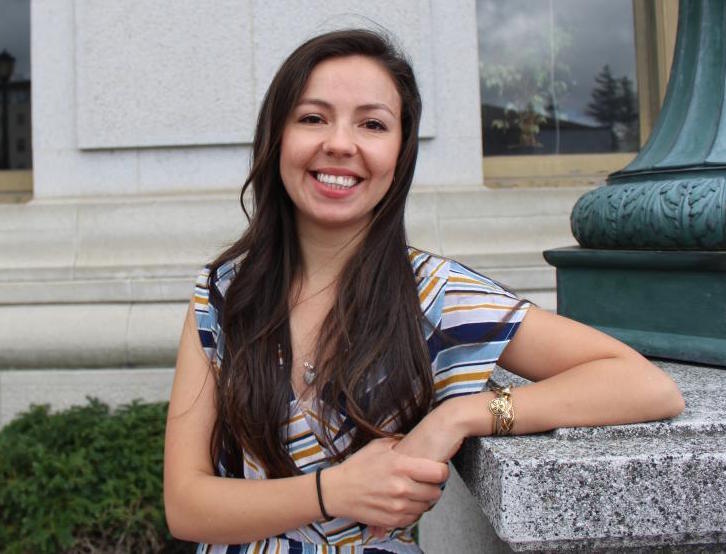 In an editorial published by the American Journal of Public Health (AJPH), Miriam Magaña Lopez, a research and policy analyst with the Berkeley Center for Social Medicine, and Seth M. Holmes, Associate Professor and Chair of Society and Environment and Medical Anthropology at UC Berkeley and UC San Francisco, argued that the ongoing raids of immigrant communities by US Immigration and Customs Enforcement (ICE) have harmful impacts on public health during the COVID-19 pandemic. “Far from promoting public health and safety, these raids, detentions, and deportations contravene public health recommendations and threaten to worsen the pandemic in the United States and beyond on several important levels—leading to avoidable exposures, infections, and deaths,” the researchers wrote. “ICE raids produce skepticism of public health recommendations and institutions. Trust is broken when local, state, and federal governments order everyone to stay home and avoid all activities unless essential to survival while simultaneously continuing to raid immigrant and minoritized communities, separate families, and detain and deport individuals. Experiences of raids at any time produce increased stress at the community level, thereby worsening health outcomes, as well as distrust of public health institutions, leading to decreased utilization of important health services for prevention and treatment. During this pandemic, it is likely that these raids will lead community members to avoid necessary treatment if experiencing symptoms of COVID19.” Read the full editorial here.
In an editorial published by the American Journal of Public Health (AJPH), Miriam Magaña Lopez, a research and policy analyst with the Berkeley Center for Social Medicine, and Seth M. Holmes, Associate Professor and Chair of Society and Environment and Medical Anthropology at UC Berkeley and UC San Francisco, argued that the ongoing raids of immigrant communities by US Immigration and Customs Enforcement (ICE) have harmful impacts on public health during the COVID-19 pandemic. “Far from promoting public health and safety, these raids, detentions, and deportations contravene public health recommendations and threaten to worsen the pandemic in the United States and beyond on several important levels—leading to avoidable exposures, infections, and deaths,” the researchers wrote. “ICE raids produce skepticism of public health recommendations and institutions. Trust is broken when local, state, and federal governments order everyone to stay home and avoid all activities unless essential to survival while simultaneously continuing to raid immigrant and minoritized communities, separate families, and detain and deport individuals. Experiences of raids at any time produce increased stress at the community level, thereby worsening health outcomes, as well as distrust of public health institutions, leading to decreased utilization of important health services for prevention and treatment. During this pandemic, it is likely that these raids will lead community members to avoid necessary treatment if experiencing symptoms of COVID19.” Read the full editorial here.
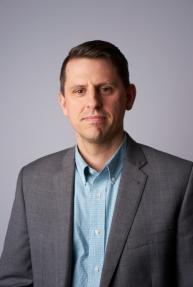 On May 13 at 12pm, the Institute of European Studies will present a virtual discussion on the how Sweden has responded to the COVID-19 pandemic. While some European countries opted immediately for a lockdown policy to prevent the virus from spreading, others — such as the Netherlands and the UK — soon abandoned earlier plans to fight the disease with a herd immunity strategy before implementing their own lockdowns. Only one European country, Sweden, chose a different path. While the Swedish government did impose a series of limitations, it did not decide to place the nation under total lockdown. In doing so, it followed the recommendation of its most eminent virologist, Anders Tegnell. In this discussion, Ludvig Norman, Associate Senior Lecturer in Political Science at Stockholm University and Senior Fellow at the UC Berkeley Institute of European Studies, will discuss life in Sweden under COVID-19 and offer some thoughts on how the strategy has been legitimized politically and why Swedes place such high faith in their Public Health Agency. Participants will have a chance to engage in the conversation with questions for Dr. Norman. The conversation will be moderated by IES Director Jeroen Dewulf and Associate Director Akasemi Newsome. This virtual event will be held on Zoom. Register here.
On May 13 at 12pm, the Institute of European Studies will present a virtual discussion on the how Sweden has responded to the COVID-19 pandemic. While some European countries opted immediately for a lockdown policy to prevent the virus from spreading, others — such as the Netherlands and the UK — soon abandoned earlier plans to fight the disease with a herd immunity strategy before implementing their own lockdowns. Only one European country, Sweden, chose a different path. While the Swedish government did impose a series of limitations, it did not decide to place the nation under total lockdown. In doing so, it followed the recommendation of its most eminent virologist, Anders Tegnell. In this discussion, Ludvig Norman, Associate Senior Lecturer in Political Science at Stockholm University and Senior Fellow at the UC Berkeley Institute of European Studies, will discuss life in Sweden under COVID-19 and offer some thoughts on how the strategy has been legitimized politically and why Swedes place such high faith in their Public Health Agency. Participants will have a chance to engage in the conversation with questions for Dr. Norman. The conversation will be moderated by IES Director Jeroen Dewulf and Associate Director Akasemi Newsome. This virtual event will be held on Zoom. Register here.
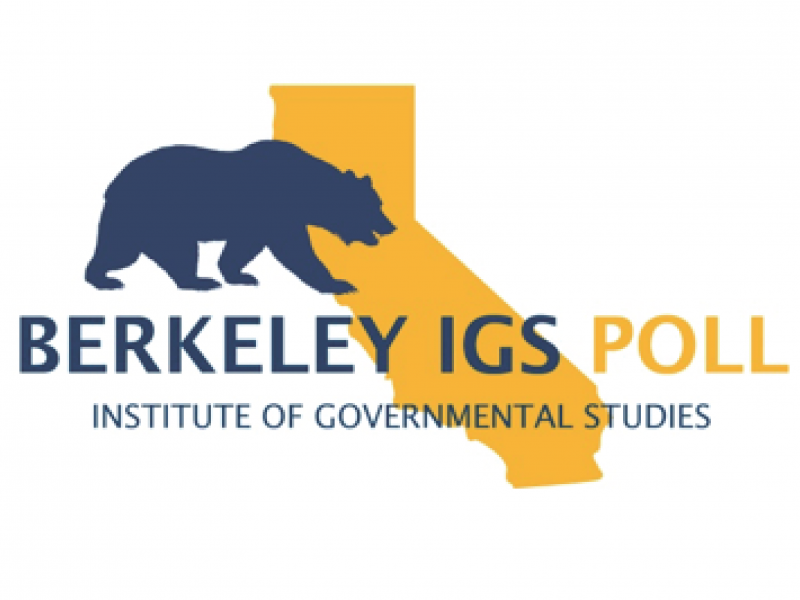 Californians’ views towards President Trump are a powerful predictor of their attitudes towards COVID-19, according to a recent poll from the UC Berkeley Institute of Governmental Studies. “Californians who either strongly approve or disapprove of the way that President Trump is handling his job have dramatically different opinions on the risks posed by COVID-19 to themselves and their neighbors, and on the usefulness of social distancing and other policies to limit its spread,” IGS announced in a press release. “Where supporters fall on the question of Trump’s performance is connected to how concerned they are about the pandemic. Among all respondents, 48% say that they are very concerned that they will spread the virus to others. However just 24% of strong Trump supporters are very concerned about this as compared to 58% of strong Trump disapprovers. Nearly half of strong Trump supporters are not concerned about spreading the virus, while only 13% of those who strongly disapprove of Trump are not concerned. ‘That Trump supporters are much less likely to believe in the efficacy of practices, such as social distancing, and are generally much less worried about contracting COVID-19, denotes just how powerfully politics can shape understandings of health and safety,’ said IGS Co-Director Professor Cristina Mora.”
Californians’ views towards President Trump are a powerful predictor of their attitudes towards COVID-19, according to a recent poll from the UC Berkeley Institute of Governmental Studies. “Californians who either strongly approve or disapprove of the way that President Trump is handling his job have dramatically different opinions on the risks posed by COVID-19 to themselves and their neighbors, and on the usefulness of social distancing and other policies to limit its spread,” IGS announced in a press release. “Where supporters fall on the question of Trump’s performance is connected to how concerned they are about the pandemic. Among all respondents, 48% say that they are very concerned that they will spread the virus to others. However just 24% of strong Trump supporters are very concerned about this as compared to 58% of strong Trump disapprovers. Nearly half of strong Trump supporters are not concerned about spreading the virus, while only 13% of those who strongly disapprove of Trump are not concerned. ‘That Trump supporters are much less likely to believe in the efficacy of practices, such as social distancing, and are generally much less worried about contracting COVID-19, denotes just how powerfully politics can shape understandings of health and safety,’ said IGS Co-Director Professor Cristina Mora.”
 An upcoming Berkeley Conversations panel, sponsored by the Goldman School of Public Policy, will examine the impact the COVID-19 pandemic has had (and will continue to have) on the 2020 presidential election. “In the months ahead, it will shape every facet of the contest: the issues, the mechanics of campaigns, how candidates engage the voters, and ultimately, how we cast our ballots. A panel of Berkeley political scientists and election experts will discuss election law and security, voter participation, and how COVID-19 may permanently change how America votes.” Watch the video panel here on Friday, May 8 from 12pm-1pm PDT.
An upcoming Berkeley Conversations panel, sponsored by the Goldman School of Public Policy, will examine the impact the COVID-19 pandemic has had (and will continue to have) on the 2020 presidential election. “In the months ahead, it will shape every facet of the contest: the issues, the mechanics of campaigns, how candidates engage the voters, and ultimately, how we cast our ballots. A panel of Berkeley political scientists and election experts will discuss election law and security, voter participation, and how COVID-19 may permanently change how America votes.” Watch the video panel here on Friday, May 8 from 12pm-1pm PDT.
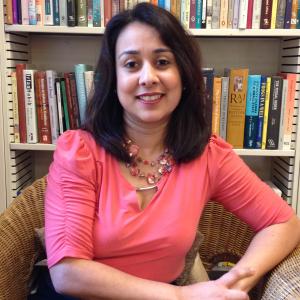 Sanchita Banerjee Saxena, Executive Director of the Institute for South Asia Studies at UC Berkeley and Director of the Subir and Malini Chowdhury Center for Bangladesh Studies, published an article on East Asia Forum’s website highlighting the impacts of COVID-19 pandemic on Bangladesh’s garment industry. Saxena is the editor of Labor, Global Supply Chains, and the Garment Industry in South Asia: Bangladesh after Rana Plaza (Routledge, 2020), and in her piece, she highlights how reforms intended to improve working conditions in Bangladesh’s garment industry have failed to lift wages for workers. “During this time of global upheaval, brands have used their unequal power positions with suppliers to justify cancelling or postponing orders and refusing to pay for orders that suppliers have already produced and materials that have already been procured, despite having a contractual obligation to do so,” Saxena writes. “Brands have benefited from cheap labour from Bangladesh for decades but do not feel obliged to take care of those at the bottom of their supply chains. As a result, tens of thousands of garment workers in Bangladesh may die, not from COVID-19, but from starvation.” Read the full piece here.
Sanchita Banerjee Saxena, Executive Director of the Institute for South Asia Studies at UC Berkeley and Director of the Subir and Malini Chowdhury Center for Bangladesh Studies, published an article on East Asia Forum’s website highlighting the impacts of COVID-19 pandemic on Bangladesh’s garment industry. Saxena is the editor of Labor, Global Supply Chains, and the Garment Industry in South Asia: Bangladesh after Rana Plaza (Routledge, 2020), and in her piece, she highlights how reforms intended to improve working conditions in Bangladesh’s garment industry have failed to lift wages for workers. “During this time of global upheaval, brands have used their unequal power positions with suppliers to justify cancelling or postponing orders and refusing to pay for orders that suppliers have already produced and materials that have already been procured, despite having a contractual obligation to do so,” Saxena writes. “Brands have benefited from cheap labour from Bangladesh for decades but do not feel obliged to take care of those at the bottom of their supply chains. As a result, tens of thousands of garment workers in Bangladesh may die, not from COVID-19, but from starvation.” Read the full piece here.
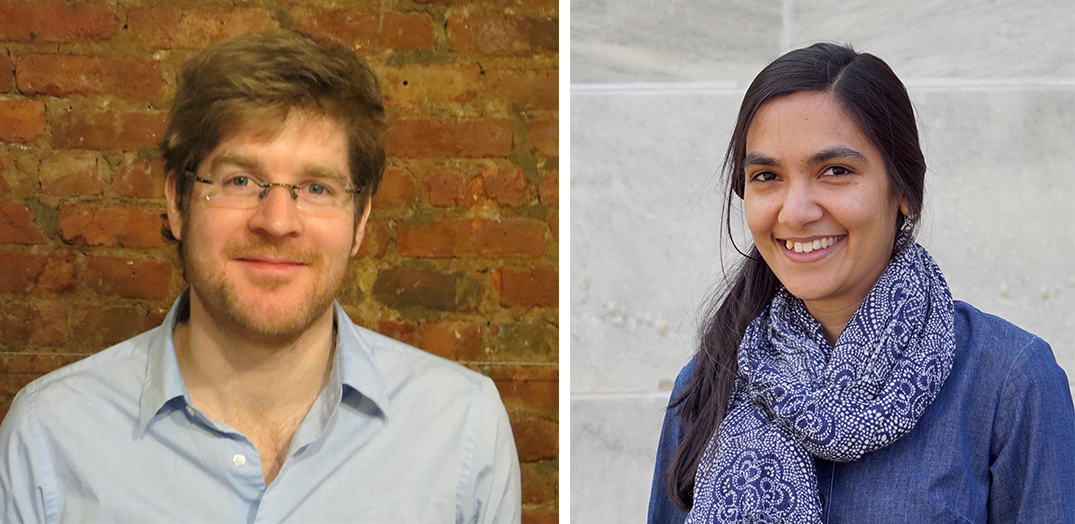 To measure the effectiveness of social distancing measures in reducing face-to-face contact in the United States, Dennis Feehan and Ayesha Mahmud, Assistant Professors in the UC Berkeley Department of Demography, launched the Berkeley Interpersonal Contact Study (BICS), with seed funding from the Berkeley Population Center. “By the start of April 2020, the majority of people living in the United States were under orders to dramatically restrict their daily activities in order to reduce transmission of the virus that can cause COVID-19,” Feehan and Mahmud wrote in the abstract to a paper presenting their initial findings. “These strong social distancing measures will be effective in controlling the spread of the virus only if they are able to reduce the amount of close interpersonal contact in a population. It is therefore crucial for researchers and policymakers to empirically measure the extent to which these policies have actually reduced interpersonal interaction. We created the Berkeley Interpersonal Contact Study (BICS) to help achieve this goal.” Social Science Matrix interviewed the scholars about the paper here.
To measure the effectiveness of social distancing measures in reducing face-to-face contact in the United States, Dennis Feehan and Ayesha Mahmud, Assistant Professors in the UC Berkeley Department of Demography, launched the Berkeley Interpersonal Contact Study (BICS), with seed funding from the Berkeley Population Center. “By the start of April 2020, the majority of people living in the United States were under orders to dramatically restrict their daily activities in order to reduce transmission of the virus that can cause COVID-19,” Feehan and Mahmud wrote in the abstract to a paper presenting their initial findings. “These strong social distancing measures will be effective in controlling the spread of the virus only if they are able to reduce the amount of close interpersonal contact in a population. It is therefore crucial for researchers and policymakers to empirically measure the extent to which these policies have actually reduced interpersonal interaction. We created the Berkeley Interpersonal Contact Study (BICS) to help achieve this goal.” Social Science Matrix interviewed the scholars about the paper here.
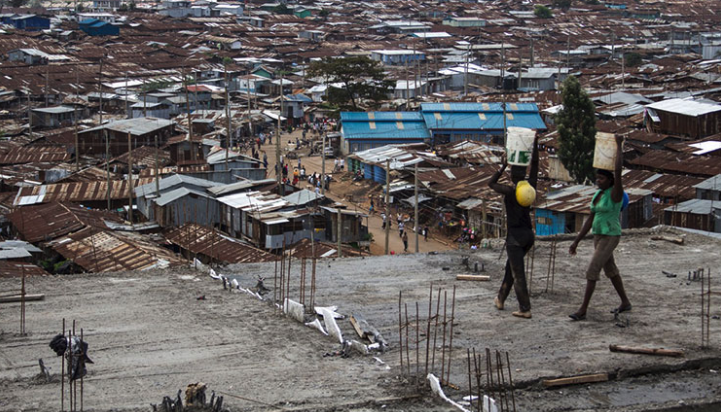 Residents of the world’s slums are highly vulnerable during the COVID-19 pandemic, and governments should do more to step in, argues a new report published April 24 in the Journal of Urban Health. As reported by Berkeley News’ Kara Manke, “The report, authored by a team of public health experts and epidemiologists working in collaboration with community leaders and non-governmental organizations (NGOs) from urban slums around the world, provides eight urgent recommendations for reducing the impact of COVID-19 on people living in poverty. These recommendations are crucial not just for people living in urban slums in the global south, but for other vulnerable populations, such as migrant farm workers and those living in refugee camps and homeless encampments and on Native American reservations in the United States, the authors say. Early evidence now suggests that the coronavirus is disproportionately affecting black Americans in some U.S. cities, possibly due to similar structural factors, such as the inability to take time off of work. ‘The political and economic shocks and instability that are happening now and are likely to follow from this epidemic will likely kill more and lead to more disability in this population than the coronavirus itself,’ said Jason Corburn, a professor of public health and of city and regional planning at the University of California, Berkeley, and lead author of the paper. ‘We felt we needed a strategy that recognized the unique needs of the urban poor at the front.'” Read the full story here.
Residents of the world’s slums are highly vulnerable during the COVID-19 pandemic, and governments should do more to step in, argues a new report published April 24 in the Journal of Urban Health. As reported by Berkeley News’ Kara Manke, “The report, authored by a team of public health experts and epidemiologists working in collaboration with community leaders and non-governmental organizations (NGOs) from urban slums around the world, provides eight urgent recommendations for reducing the impact of COVID-19 on people living in poverty. These recommendations are crucial not just for people living in urban slums in the global south, but for other vulnerable populations, such as migrant farm workers and those living in refugee camps and homeless encampments and on Native American reservations in the United States, the authors say. Early evidence now suggests that the coronavirus is disproportionately affecting black Americans in some U.S. cities, possibly due to similar structural factors, such as the inability to take time off of work. ‘The political and economic shocks and instability that are happening now and are likely to follow from this epidemic will likely kill more and lead to more disability in this population than the coronavirus itself,’ said Jason Corburn, a professor of public health and of city and regional planning at the University of California, Berkeley, and lead author of the paper. ‘We felt we needed a strategy that recognized the unique needs of the urban poor at the front.'” Read the full story here.
On April 27, the Rausser College of Natural Resources will present the latest “Campus Conversation” with a panel featuring four scholars discussing how the COVID-19 pandemic is likely to affect climate cha nge. “In the wake of the COVID-19 pandemic, the global economy is skidding into recession. Reduced consumption and transportation also mean reduced CO2 emissions. From India to China to the United States, skies are blue and the air is cleaner and healthier in cities than it has been for years. The pandemic has caused seismic shifts in how we produce and consume goods and could open a path to a more sustainable future. Or, government bailouts and investments could double down on the fossil fuel economy, and set back efforts to avoid catastrophic climate change. This conversation will feature Berkeley researchers discussing the science and policy behind CO2 emissions and opportunities for a different path forward.” Panelists include David Ackerly, Dean of the Rausser College of Natural Resources; Daniel Kammen, Professor and Chair of the Energy Resources Group and Professor in the Goldman School of Public Policy and the Department of Nuclear Engineering; Kate O’Neill, Professor in the Department of Environmental Science, Policy, and Management; and Valeri Vasquez, a PhD candidate with a designated emphasis in Computational Data Science and Engineering in the Energy and Resources Group under the Rausser College of Natural Resources.
nge. “In the wake of the COVID-19 pandemic, the global economy is skidding into recession. Reduced consumption and transportation also mean reduced CO2 emissions. From India to China to the United States, skies are blue and the air is cleaner and healthier in cities than it has been for years. The pandemic has caused seismic shifts in how we produce and consume goods and could open a path to a more sustainable future. Or, government bailouts and investments could double down on the fossil fuel economy, and set back efforts to avoid catastrophic climate change. This conversation will feature Berkeley researchers discussing the science and policy behind CO2 emissions and opportunities for a different path forward.” Panelists include David Ackerly, Dean of the Rausser College of Natural Resources; Daniel Kammen, Professor and Chair of the Energy Resources Group and Professor in the Goldman School of Public Policy and the Department of Nuclear Engineering; Kate O’Neill, Professor in the Department of Environmental Science, Policy, and Management; and Valeri Vasquez, a PhD candidate with a designated emphasis in Computational Data Science and Engineering in the Energy and Resources Group under the Rausser College of Natural Resources.
 As part of the Berkeley Conversations: COVID-19 live webcasts, UC Berkeley psychologists Dacher Keltner, Sonia Bishop and Frank Worrell offered advice on how to tackle COVID-19 stress. “The intense social isolation, stress and uncertainty surrounding COVID-19 is shaping up to be its own mental health pandemic,” wrote Berkeley News reporter Yasmin Anwar in a write-up about the panel. “Already, spikes in post-traumatic stress disorder are being documented among vulnerable populations, health workers and other front-line personnel. ‘Before there were stay-at-home orders, quite a lot of people were not necessarily feeling that anxious — maybe not taking it that seriously,’ said Bishop, an associate professor of psychology and an expert on the cognitive neuroscience of anxiety. But now, she added, ‘many more people are seeing people who are like them, and are getting ill,” and she mentioned recent surveys showing that six out of 10 adults are reporting anxiety.'” Watch the video and read the write-up here.
As part of the Berkeley Conversations: COVID-19 live webcasts, UC Berkeley psychologists Dacher Keltner, Sonia Bishop and Frank Worrell offered advice on how to tackle COVID-19 stress. “The intense social isolation, stress and uncertainty surrounding COVID-19 is shaping up to be its own mental health pandemic,” wrote Berkeley News reporter Yasmin Anwar in a write-up about the panel. “Already, spikes in post-traumatic stress disorder are being documented among vulnerable populations, health workers and other front-line personnel. ‘Before there were stay-at-home orders, quite a lot of people were not necessarily feeling that anxious — maybe not taking it that seriously,’ said Bishop, an associate professor of psychology and an expert on the cognitive neuroscience of anxiety. But now, she added, ‘many more people are seeing people who are like them, and are getting ill,” and she mentioned recent surveys showing that six out of 10 adults are reporting anxiety.'” Watch the video and read the write-up here.
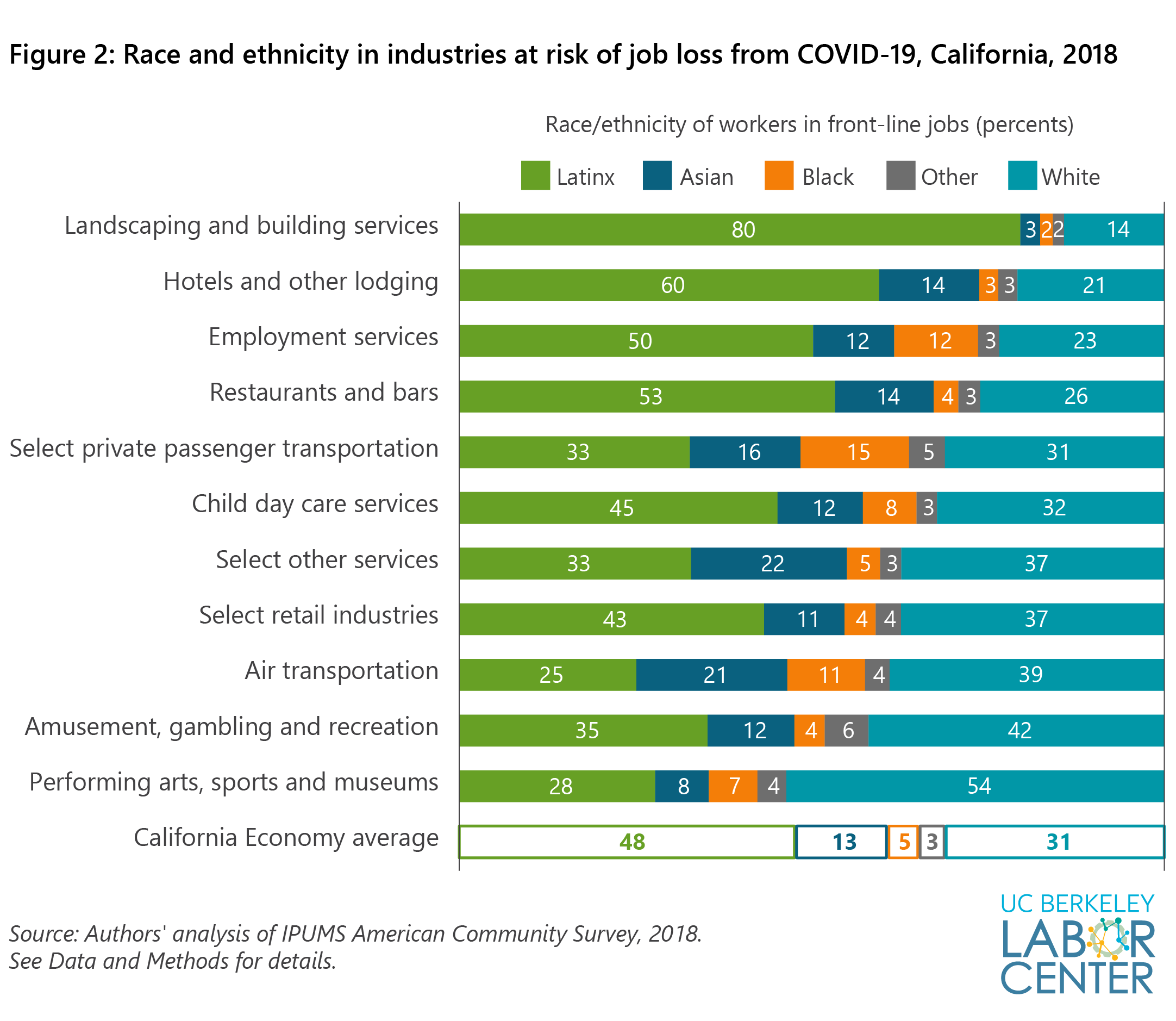 In a blog posted by the UC Berkeley Labor Center, Sarah Thomason (research and policy coordinator at the Labor Center), Annette Bernhardt (director of the Labor Center’s Low-Wage Work Program), and Nari Rhee (Director of the Retirement Security Program) wrote about potential differences in the economic impacts of the COVID-19 pandemic on California’s workers, focusing on major industries that are at highest risk of job losses or hours reduction stemming from social distancing and public health directives. “Because of time lags in the gathering of government data, we do not yet have enough data on current job losses in California by industry,” they wrote. “However, the major impact sectors are already evident, such as restaurants, hotels, and retail…. Here, we profile these industries in terms of the prevalence of low-wage work and demographic characteristics of the workforce, focusing on front-line occupations that are likely to be the first to experience hours reductions or outright job loss.” Among their findings: 31 percent of the state’s low-wage workers are employed in major industries at risk of job loss from the COVID-19 pandemic, compared to only 12 percent of middle- and higher-wage workers. Read the article here.
In a blog posted by the UC Berkeley Labor Center, Sarah Thomason (research and policy coordinator at the Labor Center), Annette Bernhardt (director of the Labor Center’s Low-Wage Work Program), and Nari Rhee (Director of the Retirement Security Program) wrote about potential differences in the economic impacts of the COVID-19 pandemic on California’s workers, focusing on major industries that are at highest risk of job losses or hours reduction stemming from social distancing and public health directives. “Because of time lags in the gathering of government data, we do not yet have enough data on current job losses in California by industry,” they wrote. “However, the major impact sectors are already evident, such as restaurants, hotels, and retail…. Here, we profile these industries in terms of the prevalence of low-wage work and demographic characteristics of the workforce, focusing on front-line occupations that are likely to be the first to experience hours reductions or outright job loss.” Among their findings: 31 percent of the state’s low-wage workers are employed in major industries at risk of job loss from the COVID-19 pandemic, compared to only 12 percent of middle- and higher-wage workers. Read the article here.
In an article on the Social Science Matrix website, Irene Bloemraad, Class of 1951 Professor of Sociology and founding director of the Berkeley Interdisciplinary Migration Initiative (BIMI), and Dr. Jasmijn Slootjes, BIMI’s Executive Director, argue that more support services are necessary for immigrants, who are particularly vulnerable to exposure to the coronavirus and face a variety of barriers to access to healthcare. “The bottom line is that everyone needs to be protected, physically, mentally, and economically, regardless of where they are born or their immigration status,” they write. “If immigrants are more likely to be infected by the coronavirus, yet they delay or avoid medical care, or if they feel forced to keep working because they are not protected by government programs, this will extend and deepen the public health crisis for everyone. We can take many steps, big and small, to tackle these challenges.”
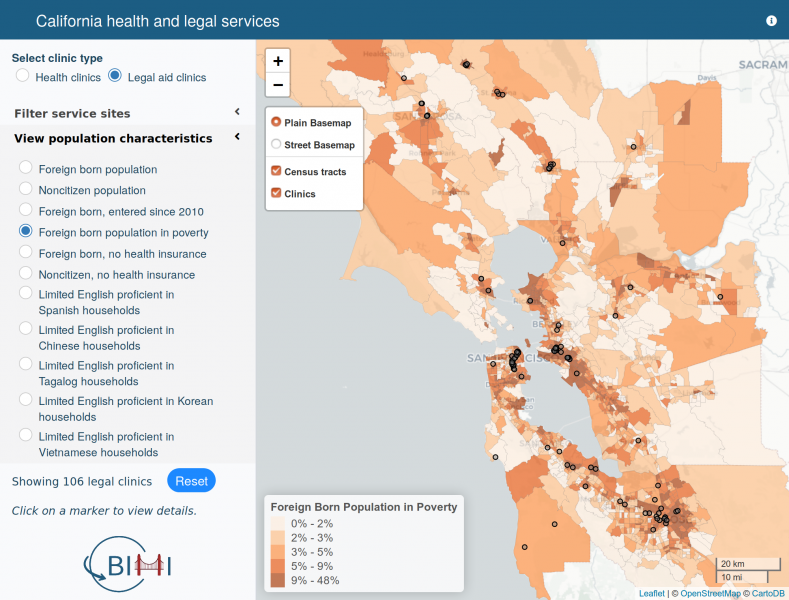 BIMI’s Mapping Spatial Inequality project is the first comprehensive immigrant services database in the Bay Area, and provides an overview of legal and health services in the nine-county Bay Area, which provides immigrants, policy makers, and community advocates with information on health and legal resources that serve immigrants in the Bay Area.
BIMI’s Mapping Spatial Inequality project is the first comprehensive immigrant services database in the Bay Area, and provides an overview of legal and health services in the nine-county Bay Area, which provides immigrants, policy makers, and community advocates with information on health and legal resources that serve immigrants in the Bay Area.
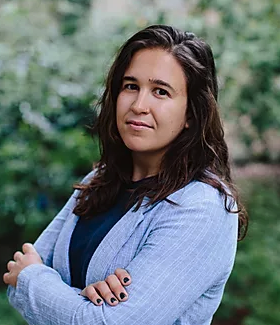 Writing for the Washington Post‘s “Monkey Cage,” Allison Namias Grossman, a PhD candidate in the Department of Political Science at UC Berkeley, drew upon her research with Leo Arriola, Associate Professor of Political Science, to argue that public health messaging should be localized to be more effective in reducing the spread of COVID-19 in Africa. “My research with Professor Leo Arriola in the West African country of Guinea suggests that governments and their international partners may gain higher levels of compliance if they tailor the messenger of those guidelines,” Namias Grossman wrote. “Specifically, this research finds that members of politically marginalized groups are more likely to comply if they hear health advisories coming from local — rather than national — political authorities. To contain infectious diseases, government informational campaigns often target ways to alter intimate practices such as sexual behavior (HIV/AIDS), burial customs (Ebola) — and now, for covid-19, emphasizing hand-washing and enforcing social distancing. But some communities in Guinea may be suspicious of government campaigns and motives, especially if they feel the government does not represent their community.” Read the Monkey Cage post here, or read Grossman and Arriola’s full findings in “Ethnic Marginalization and (Non)Compliance in Public Health Emergencies,” a forthcoming paper in the Journal of Politics. in Public Health Emergencies
Writing for the Washington Post‘s “Monkey Cage,” Allison Namias Grossman, a PhD candidate in the Department of Political Science at UC Berkeley, drew upon her research with Leo Arriola, Associate Professor of Political Science, to argue that public health messaging should be localized to be more effective in reducing the spread of COVID-19 in Africa. “My research with Professor Leo Arriola in the West African country of Guinea suggests that governments and their international partners may gain higher levels of compliance if they tailor the messenger of those guidelines,” Namias Grossman wrote. “Specifically, this research finds that members of politically marginalized groups are more likely to comply if they hear health advisories coming from local — rather than national — political authorities. To contain infectious diseases, government informational campaigns often target ways to alter intimate practices such as sexual behavior (HIV/AIDS), burial customs (Ebola) — and now, for covid-19, emphasizing hand-washing and enforcing social distancing. But some communities in Guinea may be suspicious of government campaigns and motives, especially if they feel the government does not represent their community.” Read the Monkey Cage post here, or read Grossman and Arriola’s full findings in “Ethnic Marginalization and (Non)Compliance in Public Health Emergencies,” a forthcoming paper in the Journal of Politics. in Public Health Emergencies
In a blog post on the Matrix website, Michael Watts — Acting Director of Social Science Matrix and Class of 1963 Professor of Geography and Co-Chair of Development Studies at UC Berkeley — explores how COVID-19 is likely to upend the work of PhD students, and argues that philanthropic institutions should step in to provide relief. He also considers new solutions that may be needed if student enrollment sharply declines in the fall. “This is a moment — early on in the economic and political lifecycle of COVID-19 — when foundations should think about a collective intervention that includes the establishment of a relief fund to ensure that ‘all but dissertation’ students (ABDs) and recent PhDs do not fall out of the system,” Watts writes. “The challenge is to turn what may become a large cohort of non-enrolled college students into a powerful social force for good, and for personal betterment, growth, and, yes, education. It might be an opportunity to road-test what some have suggested is the future of higher education: spending time on and off campus, in and outside of ‘the workforce.’ There are no easy answers to these questions — and the radical uncertainty of COVID-19 dynamics makes planning hazardous — but there is a conversation to be had in and outside of the academy — and urgently.” Read the full post.
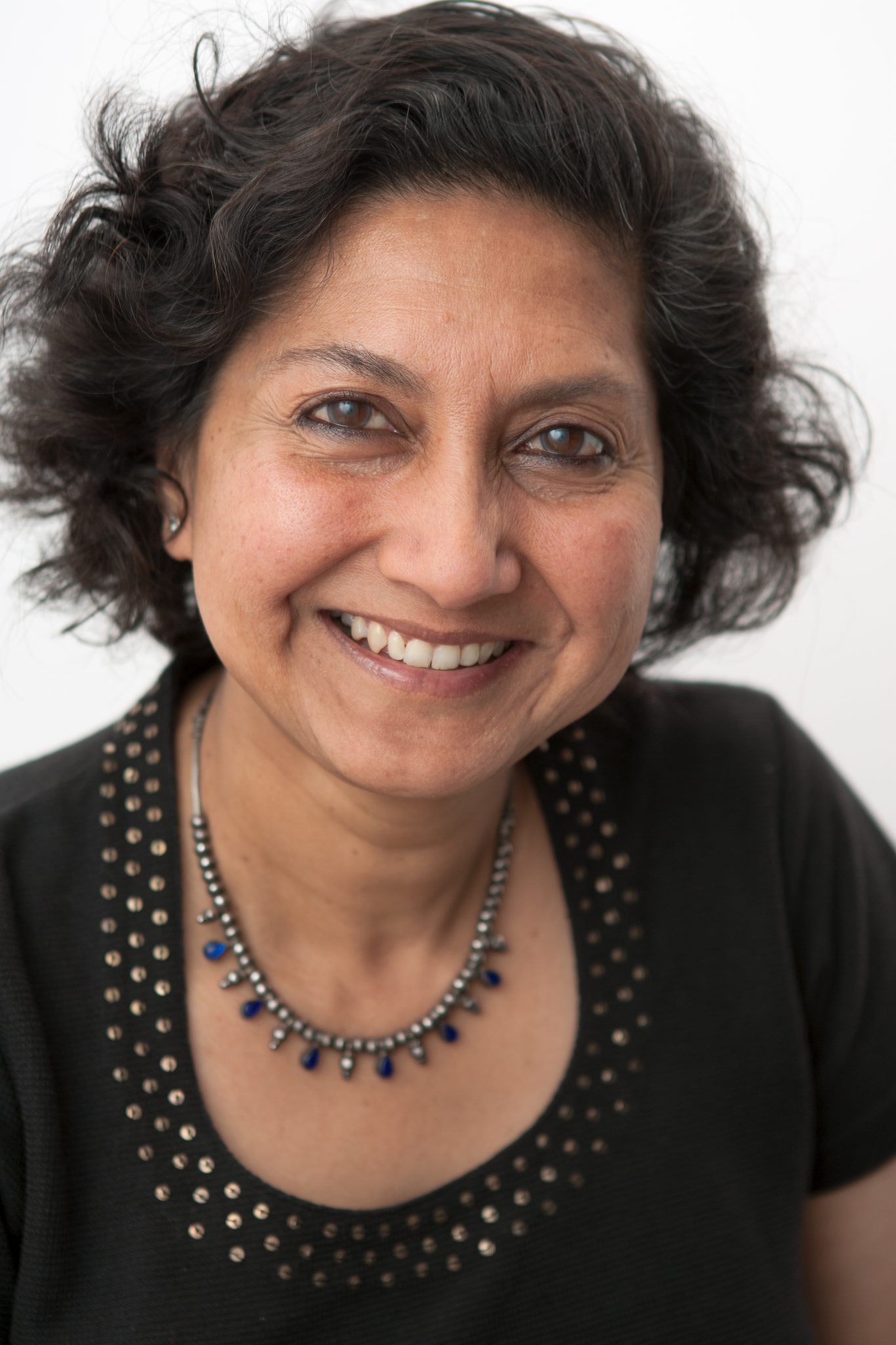 In the era of COVID-19, the public health directive to “wash your hands” is a challenge for people with limited access to clean water, writes Isha Ray, Professor in the UC Berkeley Energy Resources Group, Co-Director of the Berkeley Water Center, in an essay on the Social Science Matrix website. “I’ve been a water and sanitation researcher for 30 years, and these days I’m thinking about the prospects for hand-washing among the world’s poor as they confront COVID-19,” Ray writes. “Hand-washing is arguably even more important when people live shoulder-to-shoulder, near trash heaps and open drains…. But how do you adhere to these expectations if you have no access to piped water, or even if you are one of the lucky households with piped water, but from a communal tap that is only intermittently supplied?… In the current crisis, it is imperative for governments and donors to generously fund affordable, reliable, and accessible water services, here in the U.S. and in underserved regions around the world. These investments will protect global public health and help revive the global economy, and they must be made even where the users are low-income and require subsidies. Water for hand-washing is a public good, and public goods call for public investment.” Read the full post.
In the era of COVID-19, the public health directive to “wash your hands” is a challenge for people with limited access to clean water, writes Isha Ray, Professor in the UC Berkeley Energy Resources Group, Co-Director of the Berkeley Water Center, in an essay on the Social Science Matrix website. “I’ve been a water and sanitation researcher for 30 years, and these days I’m thinking about the prospects for hand-washing among the world’s poor as they confront COVID-19,” Ray writes. “Hand-washing is arguably even more important when people live shoulder-to-shoulder, near trash heaps and open drains…. But how do you adhere to these expectations if you have no access to piped water, or even if you are one of the lucky households with piped water, but from a communal tap that is only intermittently supplied?… In the current crisis, it is imperative for governments and donors to generously fund affordable, reliable, and accessible water services, here in the U.S. and in underserved regions around the world. These investments will protect global public health and help revive the global economy, and they must be made even where the users are low-income and require subsidies. Water for hand-washing is a public good, and public goods call for public investment.” Read the full post.
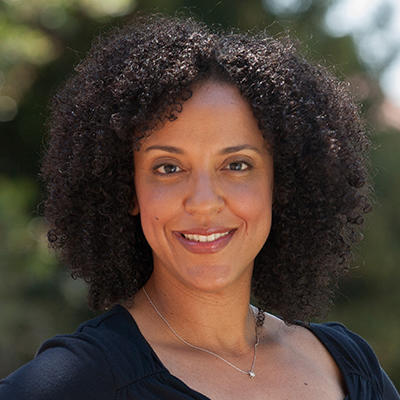 How will schools have to be adapted to reduce the risk of coronavirus transmission? Janelle Scott, Professor at the University of California at Berkeley in the Graduate School of Education and African American Studies Department, was quoted in an L.A. Times article examining how life in California is likely to change following the COVID-19 pandemic. She commented on potential changes to K-12 education suggested by Governor Gavin Newsom, such as staggering students’ start times or reducing congregated meals. “It’s hard to make a campus virus-proof,” Scott said. “The ability of things to spread is just really not controllable…. You spend the first several years of school…sick all the time.”
How will schools have to be adapted to reduce the risk of coronavirus transmission? Janelle Scott, Professor at the University of California at Berkeley in the Graduate School of Education and African American Studies Department, was quoted in an L.A. Times article examining how life in California is likely to change following the COVID-19 pandemic. She commented on potential changes to K-12 education suggested by Governor Gavin Newsom, such as staggering students’ start times or reducing congregated meals. “It’s hard to make a campus virus-proof,” Scott said. “The ability of things to spread is just really not controllable…. You spend the first several years of school…sick all the time.”
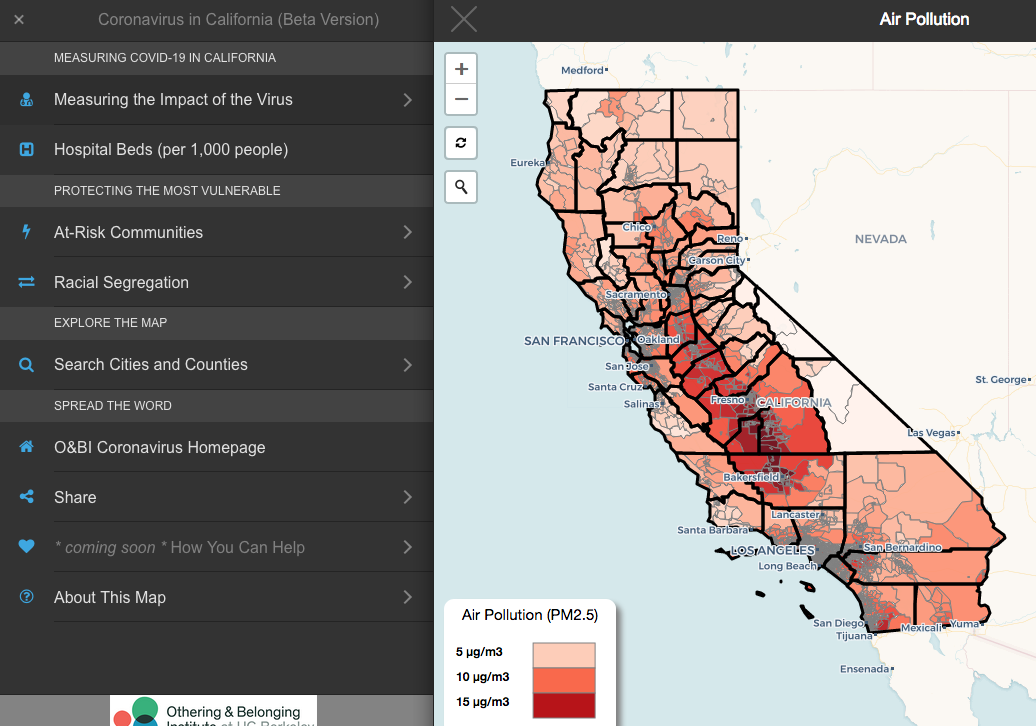 A new online mapping tool from UC Berkeley’s Othering and Belonging Institute is helping identify which California communities are most at risk from the novel coronavirus, reports CBS San Francisco. “The interactive tool features more than a dozen distinct data points — including COVID-19 infection and mortality rates — and overlays that information on a state map highlighting pollution levels by county or neighborhood…. This interplay between the virus, air pollution and chronic health conditions is expected to land more heavily on low-income populations and communities of color…. The map also allows users to look at specific counties or neighborhoods in order to track potential vulnerabilities, like what percentage of the population lives below the poverty line, has limited English skills, works in vulnerable jobs, is classified by the U.S. Centers for Disease Control and Prevention as “socially vulnerable” and lives in overcrowded households, among other things.”
A new online mapping tool from UC Berkeley’s Othering and Belonging Institute is helping identify which California communities are most at risk from the novel coronavirus, reports CBS San Francisco. “The interactive tool features more than a dozen distinct data points — including COVID-19 infection and mortality rates — and overlays that information on a state map highlighting pollution levels by county or neighborhood…. This interplay between the virus, air pollution and chronic health conditions is expected to land more heavily on low-income populations and communities of color…. The map also allows users to look at specific counties or neighborhoods in order to track potential vulnerabilities, like what percentage of the population lives below the poverty line, has limited English skills, works in vulnerable jobs, is classified by the U.S. Centers for Disease Control and Prevention as “socially vulnerable” and lives in overcrowded households, among other things.”
On April 15, a group of scholars focused on “structural competency” — identifying structural level determinants, biases, inequities, and blind spots that can shape definitions of health and illness among doctors and patients — will be holding an webinar for healthcare workers, activists, and scholars to discuss structural competency innovations and opportunities in the era of COVID-19. UC Berkeley’s Seth Holmes is one of the leaders of this initiative. The first session will focus on “Basic Needs and First Response.” RSVP here.
In an article entitled “Generation C has Nowhere to Turn,” Amanda Mull, a staff writer for The Atlantic, interviewed UC Berkeley’s Elena Conis, a historian of medicine and public health, about the economic impacts of past epidemics. “Once people are let out into the world to rejoin their lives, the pandemic will continue to harm them for years to come. ‘Epidemics are really bad for economies,’ says Elena Conis, a historian of medicine and public health at UC Berkeley…. ‘We’re going to see a whole bunch of college graduates and people finishing graduate programs this summer who are going to really struggle to find work…. There are aspects of history that repeat themselves, but what’s more true is that every epidemic takes place in its own context. This is a unique viral agent and a unique social and cultural context, and economic context, too.'”
UC Berkeley economics professor Yuriy Gorodnichenko has co-authored a working paper with Olivier Coibion (University of Texas at Austin) and Michael Weber (University of Chicago) detailing their research findings based on an analysis of survey data from the Nielsen Homescan panel to characterize how labor markets are being affected by the COVID-19 pandemic. “First, job loss has been significantly larger than implied by new unemployment claims: we estimate 20 million lost jobs by April 8th, far more than jobs lost over the entire Great Recession,” the researchers wrote. “Second, many of those losing jobs are not actively looking to find new ones. As a result, we estimate the rise in the unemployment rate over the corresponding period to be surprisingly small, only about 2 percentage points. Third, participation in the labor force has declined by 7 percentage points, an unparalleled fall that dwarfs the three percentage point cumulative decline that occurred from 2008 to 2016. Early retirement almost fully explains the drop in labor force participation both for those survey participants previously employed and those previously looking for work.”
In an opinion column in The Guardian, Seth Holmes, Associate Professor and Chair of Society and Environment and Medical Anthropology at UC Berkeley and UC San Francisco, together with Vera L. Chang, a PhD student in the Department of Environmental Science, Policy and Management, argue that the U.S. government must do more to protect our nation’s food and farm workers. “Though [food and farm workers’] designation as essential workers is apt, relief measures recognizing their importance haven’t been offered,” Holmes wrote. “Congress’s $2-trillion pandemic stimulus package specifically excludes food workers, leaving them without basic safety equipment like masks and hand sanitizer, benefits like healthcare and childcare, protections like physical distancing, and hazard pay. Food workers have also been left out of state aid…. As much of the country shelters in place to slow the spread of the virus, we put our lowest-paid workers at the frontlines of battle with no support. But the nation’s 2.4 million farmworkers, 148,000 processing workers and other food chain workers are imperative to our economy, collective health and basic survival. They support the national interest. Danger to food workers is a danger for us all. And some of them are starting to die while working to feed us…. We have a responsibility to act decisively. Time is running out.” (Image: Heather Dill via Unsplash.)
A team of epidemiologists from UC Berkeley and UCSF wrote an op-ed published in the New York Times arguing that governments need to do more to protect the roughly billion people around the world who live in slums. The authors — Lee W. Riley, Professor at the School of Public Health, Robert Snyder, manager of the Center for Global Public Health’s Research and Education Program, and Eva Raphael, a clinical research fellow at UCSF — wrote that high levels of crowding, inadequate sanitation, and lack of medical services make the residents of slums particularly vulnerable. “The most important factor in enabling the spread of pandemics in slums is the neglect of these marginalized populations by governing elites,” they wrote. “There is little previous effort to prevent the spread of diseases. Access to tests for the coronavirus, for example, is extremely limited…. The world’s public health systems and governments must make sure that people who live in slums, homeless encampments and refugee camps are not forgotten. We must prepare to deal with the consequences of the pandemic — for all populations.” (Image: The Mathare Valley slum by Claudio Allia)
On April 10, a panel of prominent UC Berkeley economists and public policy experts discussed the economic consequences of sheltering-in-place, evaluated the Congressional response, and discussed strategies that could help to stabilize the economy, safeguard jobs, and protect society’s most vulnerable people. The discussion was presented as part of a new live, online video series, Berkeley Conversations: COVID-19, featuring Berkeley scholars from a range of disciplines. The panel included Henry Brady, Dean of the Goldman School of Public Policy and Class of 1941 Monroe Deutsch Professor of Political Science and Public Policy; Ellora Derenoncourt, Incoming Assistant Professor of Economics and Public Policy, whose research focuses on labor market institutions, economic history, and inequality; Hilary Hoynes, Professor of Public Policy and Economics; Haas Distinguished Chair in Economic Disparities; and Co-Director of the Berkeley Opportunity Lab; Jesse Rothstein, Professor of Public Policy and Economics and Director of the Institute for Research on Labor and Employment; and Gabriel Zucman, Associate Professor of Economics and Director of the Stone Center on Wealth and Income Inequality. The panel was moderated by veteran journalist Dan Mogulof, who now serves as UC Berkeley’s assistant vice chancellor for executive communications. .
In the wake of a surge in violent hate crimes against Asian Americans — including Asian physicans and nurses — due to xenophobic perceptions about COVID-19, UC Berkeley News interviewed Catherine Ceniza Choy, Professor of Ethnic Studies and author of Empire of Care: Nursing and Migration in Filipino American History. In the interview, by Ivan Natividad, Ceniza Choy spoke about the history of such racism and the reasons xenophobia can halt attempts to stop the spread of the coronavirus. “This is a really important moment for all of us to learn more about Asian American history and ethnic studies, and how immigrants throughout the world have made such important contributions to our overall collective and global public health,” Ceniza Choy said. “The contributions of ethnic studies and Asian American studies also help to debunk these stereotypes associated with Asian bodies as disease carriers. These anti-Asian hate crimes related to the coronavirus don’t just hurt Asian Americans, they really hurt all Americans. So, in addition to washing our hands properly and practicing physical distancing, we can use this time to understand the reasons why racism is also a virus, and why we all have a stake in stopping that racism that leads to xenophobia and hate crimes.”
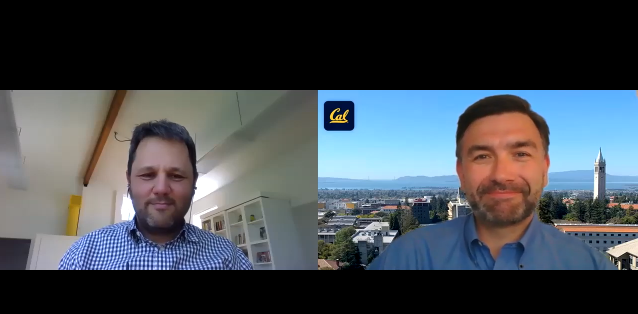 Christian Gordon, Assistant Dean of Development in the UC Berkeley College of Letters & Science, has launched a series of video interviews with UC Berkeley social scientists about topics related to the Covid-19 pandemic. He interviewed Shachar Kariv, Benjamin N. Ward Professor of Economics at UC Berkeley, about his research on the social preferences of medical professionals, why they are well-suited to respond to crisis, and what to expect regarding long term economic impacts. For the second video, Gordon interviewed Professor of Psychology and Cognitive Neuroscience Sonia Bishop joins Assistant Dean of Development Christian Gordon to discuss the role anxiety plays, how to understand it in the age of COVID-19, and how we may manage it in an environment of prolonged stress.
Christian Gordon, Assistant Dean of Development in the UC Berkeley College of Letters & Science, has launched a series of video interviews with UC Berkeley social scientists about topics related to the Covid-19 pandemic. He interviewed Shachar Kariv, Benjamin N. Ward Professor of Economics at UC Berkeley, about his research on the social preferences of medical professionals, why they are well-suited to respond to crisis, and what to expect regarding long term economic impacts. For the second video, Gordon interviewed Professor of Psychology and Cognitive Neuroscience Sonia Bishop joins Assistant Dean of Development Christian Gordon to discuss the role anxiety plays, how to understand it in the age of COVID-19, and how we may manage it in an environment of prolonged stress.
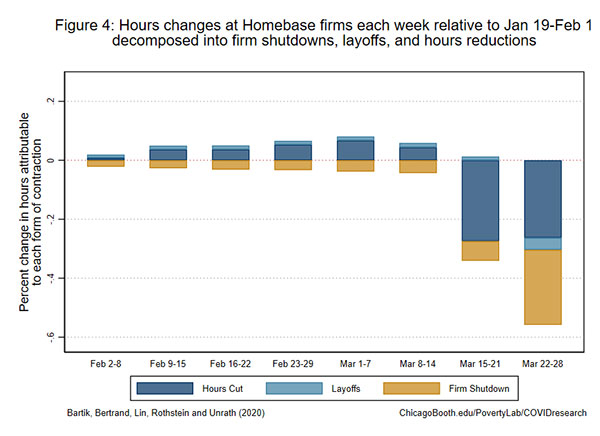 Professor Jesse Rothstein was one of a group of co-authors — along with Alexander W. Bartik, Marianne Bertrand, Feng Lin, and Matt Unrath — who used data from Homebase, a widely used provider of scheduling and time clock software for small businesses, to assess the labor impacts of the COVID-19 crisis. Published on the blog of the Chicago Booth Rustandy Center for Social Sector Innovation, their research provides a glimpse into economic phenomena not yet visible through traditional measures. “COVID-19, and the policies enacted in response to the disease, have resulted in dramatic changes in many aspects of American society,” the researchers explained. “These changes have been particularly large in the labor market. It has been challenging to understand the magnitude of these changes because standard data sources become available only with a lag of several weeks – we will not receive data on employment and unemployment after shelter-in-place orders took effect until the first week of May…. We take advantage of granular data on exact hours worked among employees of firms that use the Homebase scheduling software to provide an up-to-date picture of the labor market impact of COVID-19. We measure how the impact varies across geography and industry, how it evolves in response to state and local social distancing guidelines and orders, and how concentrated it is among particular sets of workers.” This research was cited in a New York Times article on the federal response to the pandemic.
Professor Jesse Rothstein was one of a group of co-authors — along with Alexander W. Bartik, Marianne Bertrand, Feng Lin, and Matt Unrath — who used data from Homebase, a widely used provider of scheduling and time clock software for small businesses, to assess the labor impacts of the COVID-19 crisis. Published on the blog of the Chicago Booth Rustandy Center for Social Sector Innovation, their research provides a glimpse into economic phenomena not yet visible through traditional measures. “COVID-19, and the policies enacted in response to the disease, have resulted in dramatic changes in many aspects of American society,” the researchers explained. “These changes have been particularly large in the labor market. It has been challenging to understand the magnitude of these changes because standard data sources become available only with a lag of several weeks – we will not receive data on employment and unemployment after shelter-in-place orders took effect until the first week of May…. We take advantage of granular data on exact hours worked among employees of firms that use the Homebase scheduling software to provide an up-to-date picture of the labor market impact of COVID-19. We measure how the impact varies across geography and industry, how it evolves in response to state and local social distancing guidelines and orders, and how concentrated it is among particular sets of workers.” This research was cited in a New York Times article on the federal response to the pandemic.
Together with Arindrajit Dube, a professor at the University of Massachusetts, Amherst, Jesse Rothstein, Professor of Public Policy and Economics at UC Berkeley, wrote a policy brief for Economics for Inclusive Prosperity proposing that unemployment offices loosen eligibility requirements to ensure all applicants receive benefits in a timely manner. “The coronavirus [unemployment] claims will create a backlog that could take weeks or even months to work through, at a time when we desperately need the benefits to go out quickly to sustain families,” they wrote. “Moreover, the relief bills currently under consideration in the House of Representatives and the Senate will deliver a large part of the aid through expansions of unemployment benefits, making it all the more important that the system handle claims quickly. The unemployment insurance processing system is not prepared for this hundred-year flood…. Desperate times call for desperate measures. There is a way to handle the spike in claims, get benefits out quickly, and ensure that public dollars are not wasted on invalid and inappropriate claims. Unemployment offices should presume that all applicants are eligible and prioritize paying claims without careful review. Then, when the initial wave is past and there is more breathing room, they should go back and review the claims, and, if necessary, collect overpayments.”
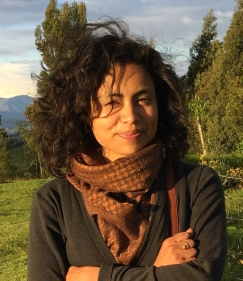 Kamala Russell, a PhD Candidate in the UC Berkeley Department of Anthropology published an article for Medical Anthropology Quarterly arguing that “social distancing” — the suggestion that people maintain six feet of space between themselves and other people — is not as easy at it seems. “As a linguistic anthropologist who works on the ethical, affective, and communicative dynamics of intercorporeal space (the space between bodies) outside of disease contexts, I immediately thought of just how complicated this seemingly simple guideline is,” Russell wrote. “First, intercorporeal space is a highly complex and affectively laden site of social practice. Secondly, maneuvering in space depends on a moving body’s attunement to other moving bodies and surfaces in the environment: not static measurements. These meanings and attunements are typically employed in managing social interactions: making, breaking, or modulating a communicative channel with someone. Social distancing then, requires more than just measuring six feet of distance, it requires actively ‘making space’ in ways that come into conflict with ingrained conventions regarding speaking to others.”
Kamala Russell, a PhD Candidate in the UC Berkeley Department of Anthropology published an article for Medical Anthropology Quarterly arguing that “social distancing” — the suggestion that people maintain six feet of space between themselves and other people — is not as easy at it seems. “As a linguistic anthropologist who works on the ethical, affective, and communicative dynamics of intercorporeal space (the space between bodies) outside of disease contexts, I immediately thought of just how complicated this seemingly simple guideline is,” Russell wrote. “First, intercorporeal space is a highly complex and affectively laden site of social practice. Secondly, maneuvering in space depends on a moving body’s attunement to other moving bodies and surfaces in the environment: not static measurements. These meanings and attunements are typically employed in managing social interactions: making, breaking, or modulating a communicative channel with someone. Social distancing then, requires more than just measuring six feet of distance, it requires actively ‘making space’ in ways that come into conflict with ingrained conventions regarding speaking to others.”
Daniel Schneider, Assistant Professor of Sociology at UC Berkeley, together with Kristen Harknett, Associate Professor in the UCSF School of Nursing, Social & Behavioral Sciences, wrote an article for the William T. Grant Foundation drawing upon their past research through the Shift Project, which has collected survey data on scheduling practices and wellbeing from thousands of retail workers employed at large firms. “As the shock of the current health and economic crisis takes a heavy toll on millions of Americans employed in the service sector, we must remember that millions of children are also vulnerable to dire consequences,” they wrote. “Public policies and company actions that ameliorate the health and economic impact for these workers will also offer some protection to the 1 and 10 American children with a parent in the service sector. Social scientists have a vital role to play in charting the consequences of the pandemic for these children and illuminating policy potential levers to lessen their burden and ultimately improve their outcomes.”
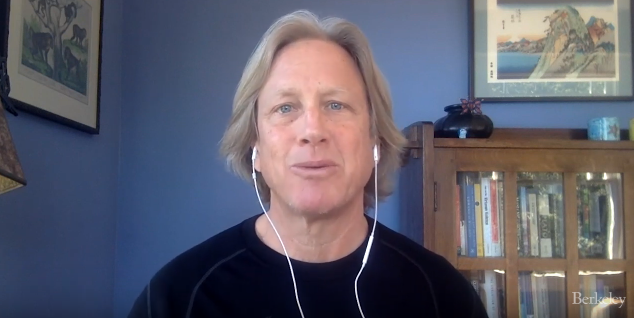 UC Berkeley psychologist Dacher Keltner has launched a video series to share science-based strategies to help people cope with the stress and uncertainty of COVID-19. “In touching every aspect of our lives, the COVID-19 pandemic has profoundly disrupted our sense of well-being and produced uncertainty and anxiety,” announced a UC Berkeley press release. “How do we find resilience while remaining productive and caring family members, friends, professionals and citizens in these unprecedented times?” In the videos, Keltner, “who has studied stress, relationships and well-being for 25 years and is co-founder of the campus’s Greater Good Science Center, will share ideas and practices for cultivating resilience and connection as we face the challenges of the coming months. Drawing on insights from the center’s Science of Happiness online course, podcast series and magazine, Keltner shares tips on how to manage stress and find meaningful connections while social distancing, completing each video with simple, science-tested practices useful for this moment in time.”
UC Berkeley psychologist Dacher Keltner has launched a video series to share science-based strategies to help people cope with the stress and uncertainty of COVID-19. “In touching every aspect of our lives, the COVID-19 pandemic has profoundly disrupted our sense of well-being and produced uncertainty and anxiety,” announced a UC Berkeley press release. “How do we find resilience while remaining productive and caring family members, friends, professionals and citizens in these unprecedented times?” In the videos, Keltner, “who has studied stress, relationships and well-being for 25 years and is co-founder of the campus’s Greater Good Science Center, will share ideas and practices for cultivating resilience and connection as we face the challenges of the coming months. Drawing on insights from the center’s Science of Happiness online course, podcast series and magazine, Keltner shares tips on how to manage stress and find meaningful connections while social distancing, completing each video with simple, science-tested practices useful for this moment in time.”
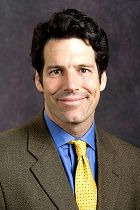 People who have developed immunity to the Covid-19 coronavirus could play a key role in jumpstarting the economy, argue Aaron Edlin, professor of economics and law at UC Berkeley (and currently a visiting scholar at the USC Schaeffer Center for Health Policy and Economics) and Bryce Nesbitt, a co-founder of NextBus, a public transit information company, in an op-ed in STAT. “Someday soon there will be millions of people in the U.S. who have recovered from Covid-19,” they write. “The best evidence suggests that they can’t get infected again soon and won’t infect others by shedding the virus. That suggests a path to run essential services more safely and to reopen sectors of the economy faster than would otherwise be possible. New York, Washington, California, and other states with high caseloads should rush to set up credible, verifiable, and voluntary programs to identify individuals as “certified recovered” from Covid-19…. Creating a path for the certified recovered from Covid-19 reduces the tension between jump-starting the economy and letting the virus run rampant…. Now that fast antibody and viral tests have FDA approval, new testing will pick up speed. If certification piggybacks on such tests, the U.S. could create a substantial and vital new specialized labor force of the certified recovered in the short term.”
People who have developed immunity to the Covid-19 coronavirus could play a key role in jumpstarting the economy, argue Aaron Edlin, professor of economics and law at UC Berkeley (and currently a visiting scholar at the USC Schaeffer Center for Health Policy and Economics) and Bryce Nesbitt, a co-founder of NextBus, a public transit information company, in an op-ed in STAT. “Someday soon there will be millions of people in the U.S. who have recovered from Covid-19,” they write. “The best evidence suggests that they can’t get infected again soon and won’t infect others by shedding the virus. That suggests a path to run essential services more safely and to reopen sectors of the economy faster than would otherwise be possible. New York, Washington, California, and other states with high caseloads should rush to set up credible, verifiable, and voluntary programs to identify individuals as “certified recovered” from Covid-19…. Creating a path for the certified recovered from Covid-19 reduces the tension between jump-starting the economy and letting the virus run rampant…. Now that fast antibody and viral tests have FDA approval, new testing will pick up speed. If certification piggybacks on such tests, the U.S. could create a substantial and vital new specialized labor force of the certified recovered in the short term.”
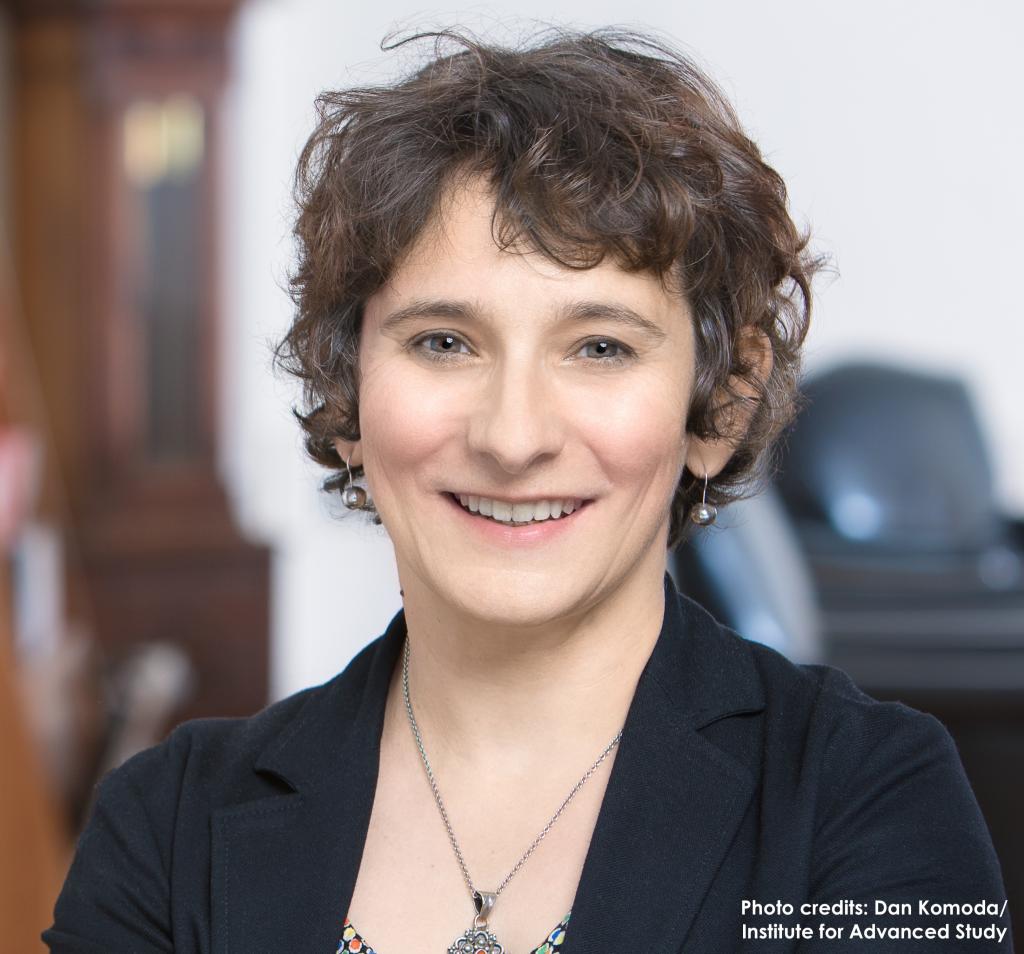 In an op-ed in Wired, Marion Fourcade, Professor of Sociology at UC Berkeley and a visiting professor at the Institute for Advanced Study’s School of Social Science (and incoming Director of Social Science Matrix), together with Henry Farrell, Associate Professor of Political Science and International Affairs at George Washington University’s Elliott School of International Affairs, argue that the coronavirus represents a threat to democracy, as it could pave the way for insufficiently secure online voting systems and new forms of surveillance. “Democratic politics is a mixture of mass involvement and endless meetings,” they wrote. “All this is hard when people can be infected with a potentially deadly virus if someone simply coughs nearby. The obvious answer might seem to be to move democracy to the internet, but some parts of democracy translate badly to an online world, while others are already being undermined by emergency powers (for example, Hungary’s parliament just passed a law that allows the prime minister to rule by decree) and by the rise of digital surveillance…. As we try to protect democracy from coronavirus, we must see technology as a scalpel, not a sledgehammer…Until we can secure digital voting systems, we shouldn’t use them…. And you shouldn’t just worry about the surveillance state. A fearful public might get all too accustomed to mobile tools to surveil themselves and each other. We have some idea how to protect democracy against a data-hungry state. If the risk comes from data-hungry citizens, we may not know where to start.”
In an op-ed in Wired, Marion Fourcade, Professor of Sociology at UC Berkeley and a visiting professor at the Institute for Advanced Study’s School of Social Science (and incoming Director of Social Science Matrix), together with Henry Farrell, Associate Professor of Political Science and International Affairs at George Washington University’s Elliott School of International Affairs, argue that the coronavirus represents a threat to democracy, as it could pave the way for insufficiently secure online voting systems and new forms of surveillance. “Democratic politics is a mixture of mass involvement and endless meetings,” they wrote. “All this is hard when people can be infected with a potentially deadly virus if someone simply coughs nearby. The obvious answer might seem to be to move democracy to the internet, but some parts of democracy translate badly to an online world, while others are already being undermined by emergency powers (for example, Hungary’s parliament just passed a law that allows the prime minister to rule by decree) and by the rise of digital surveillance…. As we try to protect democracy from coronavirus, we must see technology as a scalpel, not a sledgehammer…Until we can secure digital voting systems, we shouldn’t use them…. And you shouldn’t just worry about the surveillance state. A fearful public might get all too accustomed to mobile tools to surveil themselves and each other. We have some idea how to protect democracy against a data-hungry state. If the risk comes from data-hungry citizens, we may not know where to start.”
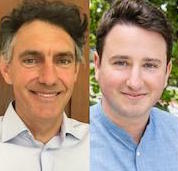 In an op-ed in the New York Times, UC Berkeley economists Emmanuel Saez and Gabriel Zucman, authors of The Triumph of Injustice: How the Rich Dodge Taxes and How to Make Them Pay, argue that Congress should respond more forcefully to address the economic impacts of the coronavirus, including by imposing an “excess profits tax” to ensure companies do not benefit outrageously from the government support they receive. “The coronavirus pandemic is laying bare structural deficiencies in America’s social programs. The relief package passed by Congress last week provides emergency fixes for some of these issues, but it also leaves critical problems untouched. To avoid a Great Depression, Congress must quickly design a more forceful response to the crisis…. The government should impose excess profits taxes, as it has done several times in the past during periods of crisis…. These taxes all had one goal — making sure that no one could benefit outrageously from a situation in which the masses suffered. To help make this happen, the next bill needs an excess profits tax. If Congress fails to act, the pandemic could well reinforce two of the defining trends of the pre-coronavirus American economy: the rise of business concentration and the upsurge of inequality. Some will say that the solutions we’ve outlined show excessive faith in government. They will correctly point out that some of these policies are undesirable in normal times. But these are not normal times. The big battles — be they wars or pandemics — are fought and won collectively. In this period of national crisis, hatred of the government is the surest path to self-destruction.”
In an op-ed in the New York Times, UC Berkeley economists Emmanuel Saez and Gabriel Zucman, authors of The Triumph of Injustice: How the Rich Dodge Taxes and How to Make Them Pay, argue that Congress should respond more forcefully to address the economic impacts of the coronavirus, including by imposing an “excess profits tax” to ensure companies do not benefit outrageously from the government support they receive. “The coronavirus pandemic is laying bare structural deficiencies in America’s social programs. The relief package passed by Congress last week provides emergency fixes for some of these issues, but it also leaves critical problems untouched. To avoid a Great Depression, Congress must quickly design a more forceful response to the crisis…. The government should impose excess profits taxes, as it has done several times in the past during periods of crisis…. These taxes all had one goal — making sure that no one could benefit outrageously from a situation in which the masses suffered. To help make this happen, the next bill needs an excess profits tax. If Congress fails to act, the pandemic could well reinforce two of the defining trends of the pre-coronavirus American economy: the rise of business concentration and the upsurge of inequality. Some will say that the solutions we’ve outlined show excessive faith in government. They will correctly point out that some of these policies are undesirable in normal times. But these are not normal times. The big battles — be they wars or pandemics — are fought and won collectively. In this period of national crisis, hatred of the government is the surest path to self-destruction.”
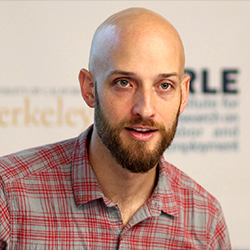 In a March 29 piece in Salon, Professor Seth Holmes, together with Liz Buchbinder, an internist with UCLA Health, wrote about the daunting challenges healthcare providers are facing in treating COVID-19 patients — and their frustration about the lack of equipment intensified by the de-funding of the health system by the Trump administration. “We are acutely aware of how contagious and deadly the virus is — especially for elderly and chronically ill people. Yet, we and our patients are put at unnecessary risk due to shortages of basic protective health equipment and testing kits. These shortages were avoidable and they never should have happened. The Trump administration’s active de-funding of our health system is leading to additional exposures, infections and deaths. We have trained over many years to calmly soldier on in the face of the turmoil, suffering and pain that plays out every day in health care. But the avoidable shortages of basic equipment in this pandemic add layers of uncertainty and strain that are pushing providers and our health system toward the breaking point.”
In a March 29 piece in Salon, Professor Seth Holmes, together with Liz Buchbinder, an internist with UCLA Health, wrote about the daunting challenges healthcare providers are facing in treating COVID-19 patients — and their frustration about the lack of equipment intensified by the de-funding of the health system by the Trump administration. “We are acutely aware of how contagious and deadly the virus is — especially for elderly and chronically ill people. Yet, we and our patients are put at unnecessary risk due to shortages of basic protective health equipment and testing kits. These shortages were avoidable and they never should have happened. The Trump administration’s active de-funding of our health system is leading to additional exposures, infections and deaths. We have trained over many years to calmly soldier on in the face of the turmoil, suffering and pain that plays out every day in health care. But the avoidable shortages of basic equipment in this pandemic add layers of uncertainty and strain that are pushing providers and our health system toward the breaking point.”
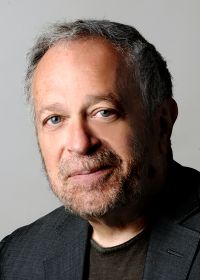 In a post on his blog that also ran on Salon.com, Robert Reich, Professor in the Goldman School of Public Policy, highlights how the coronavirus has exposed the economic inequality of Americans — and the need for better solutions. “The coronavirus has starkly revealed what most of us already knew: The concentration of wealth in America has created a a health care system in which the wealthy can buy care others can’t,” Reich wrote. “It’s also created an education system in which the super-rich can buy admission to college for their children, a political system in which they can buy Congress and the presidency, and a justice system in which they can buy their way out of jail. Almost everyone else has been hurled into a dystopia of bureaucratic arbitrariness, corporate indifference, and the legal and financial sinkholes that have become hallmarks of modern American life. The system is rigged. But we can fix it. Today, the great divide in American politics isn’t between right and left. The underlying contest is between a small minority who have gained power over the system, and the vast majority who have little or none. Forget politics as you’ve come to see it – as contests between Democrats and Republicans. The real divide is between democracy and oligarchy.”
In a post on his blog that also ran on Salon.com, Robert Reich, Professor in the Goldman School of Public Policy, highlights how the coronavirus has exposed the economic inequality of Americans — and the need for better solutions. “The coronavirus has starkly revealed what most of us already knew: The concentration of wealth in America has created a a health care system in which the wealthy can buy care others can’t,” Reich wrote. “It’s also created an education system in which the super-rich can buy admission to college for their children, a political system in which they can buy Congress and the presidency, and a justice system in which they can buy their way out of jail. Almost everyone else has been hurled into a dystopia of bureaucratic arbitrariness, corporate indifference, and the legal and financial sinkholes that have become hallmarks of modern American life. The system is rigged. But we can fix it. Today, the great divide in American politics isn’t between right and left. The underlying contest is between a small minority who have gained power over the system, and the vast majority who have little or none. Forget politics as you’ve come to see it – as contests between Democrats and Republicans. The real divide is between democracy and oligarchy.”
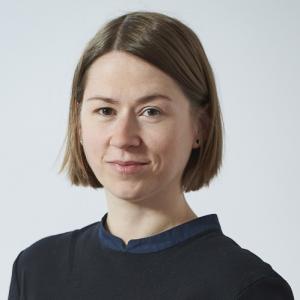 In recent weeks, conservative media personalities, political and business leaders, and other influencers have publicly shrugged off warnings about the dangers of the novel coronavirus. What causes certain people to stick to their beliefs and act with skepticism despite overwhelming contradictory evidence? For answers, Berkeley News’ reporter Yasmin Anwar interviewed Celeste Kidd, a UC Berkeley computational cognitive scientist who studies false beliefs, curiosity, and learning. “Most of us like to think of ourselves as rational agents who can make decisions and form beliefs that make sense,” Kidd explained. “But the world is far too big and complex for us to have the time or attentional bandwidth to know about everything, so we have to pick and choose. The scientific name for this is “sampling,” and it works well in a dynamic world where the approximate truth is usually good enough to make everyday decisions. We’re also built to favor investigating the things we feel uncertain about. This tendency pushes us to expand and update our knowledge base. Once we feel like we know everything, we disengage and move on to the next thing. This prevents us from wasting time on what we already know so we can learn something new. The problem arises when we believe that we know everything there is to know, but we are wrong. When this happens, we are less open to changing our minds based on new information because we don’t seek out new information, and we are more inclined to ignore it when we do encounter it.”
In recent weeks, conservative media personalities, political and business leaders, and other influencers have publicly shrugged off warnings about the dangers of the novel coronavirus. What causes certain people to stick to their beliefs and act with skepticism despite overwhelming contradictory evidence? For answers, Berkeley News’ reporter Yasmin Anwar interviewed Celeste Kidd, a UC Berkeley computational cognitive scientist who studies false beliefs, curiosity, and learning. “Most of us like to think of ourselves as rational agents who can make decisions and form beliefs that make sense,” Kidd explained. “But the world is far too big and complex for us to have the time or attentional bandwidth to know about everything, so we have to pick and choose. The scientific name for this is “sampling,” and it works well in a dynamic world where the approximate truth is usually good enough to make everyday decisions. We’re also built to favor investigating the things we feel uncertain about. This tendency pushes us to expand and update our knowledge base. Once we feel like we know everything, we disengage and move on to the next thing. This prevents us from wasting time on what we already know so we can learn something new. The problem arises when we believe that we know everything there is to know, but we are wrong. When this happens, we are less open to changing our minds based on new information because we don’t seek out new information, and we are more inclined to ignore it when we do encounter it.”
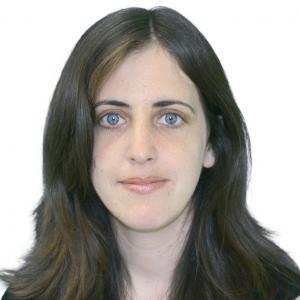 Excessive worry about COVID-19 is becoming a mental health pandemic unto itself. But when is anxiety useful, and when is it destructive? Berkeley News’ Yasmin Anwar interviewed Sonia Bishop, an associate professor of psychology and cognitive neuroscience who studies anxiety and how it affects decision-making. “If I told you the person next to you at a bar had a 1 in 10,000 chance of having Covid-19, you might respond very differently than if I said the risk was 1 in 1,000, 1 in 100 or even 1 in 10. At the moment, we don’t know how to respond, because the probability of exposure to the virus is rapidly changing,” Bishop said. “In times of uncertainty, our personality traits have a big influence on how we react based on our assumptions about the world and our level of ‘optimism bias.’ Research by psychologists Ronnie Janoff-Bulman and Neil Weinstein shows that, to get through life, many of us use subconscious, self-protective assumptions — for example, that the world is a good, safe place and that bad things happen to other people, not to me. When the probabilities of danger are very low, for example, such as dying in a plane crash, these assumptions protect us from worry. However, with this pandemic, optimism bias can lead us to ignore guidance on social distancing and possibly get ill or pass on the virus to a loved one and unknowingly add to the spread of the virus and, sadly, deaths. This is a particular risk for young people who might have few, if any, symptoms and are especially likely to feel invulnerable. Meanwhile, people who have experienced and adapted to bad things happening may adopt the subconscious assumption that taking certain actions can prevent bad things from happening. This may explain the panic buying and even an uptick in gun purchases. People are trying to gain a sense of control over the situation that will make them feel safe. Hopefully, if people realize this, they may be able to stop and ask themselves, ‘Do I really need a gun?’ or, more mundanely, ‘Can I leave that extra package of toilet paper for someone else?'”
Excessive worry about COVID-19 is becoming a mental health pandemic unto itself. But when is anxiety useful, and when is it destructive? Berkeley News’ Yasmin Anwar interviewed Sonia Bishop, an associate professor of psychology and cognitive neuroscience who studies anxiety and how it affects decision-making. “If I told you the person next to you at a bar had a 1 in 10,000 chance of having Covid-19, you might respond very differently than if I said the risk was 1 in 1,000, 1 in 100 or even 1 in 10. At the moment, we don’t know how to respond, because the probability of exposure to the virus is rapidly changing,” Bishop said. “In times of uncertainty, our personality traits have a big influence on how we react based on our assumptions about the world and our level of ‘optimism bias.’ Research by psychologists Ronnie Janoff-Bulman and Neil Weinstein shows that, to get through life, many of us use subconscious, self-protective assumptions — for example, that the world is a good, safe place and that bad things happen to other people, not to me. When the probabilities of danger are very low, for example, such as dying in a plane crash, these assumptions protect us from worry. However, with this pandemic, optimism bias can lead us to ignore guidance on social distancing and possibly get ill or pass on the virus to a loved one and unknowingly add to the spread of the virus and, sadly, deaths. This is a particular risk for young people who might have few, if any, symptoms and are especially likely to feel invulnerable. Meanwhile, people who have experienced and adapted to bad things happening may adopt the subconscious assumption that taking certain actions can prevent bad things from happening. This may explain the panic buying and even an uptick in gun purchases. People are trying to gain a sense of control over the situation that will make them feel safe. Hopefully, if people realize this, they may be able to stop and ask themselves, ‘Do I really need a gun?’ or, more mundanely, ‘Can I leave that extra package of toilet paper for someone else?'”
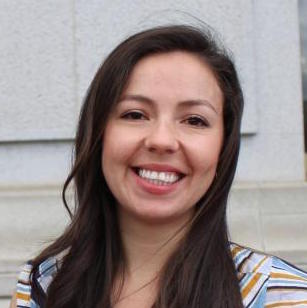 In an essay in The Guardian, Miriam Magaña Lopez, a public health researcher and practitioner in the Berkeley Center for Social Medicine and the Institute for Research on Labor and Employment at UC Berkeley, together with Seth Holmes, Associate Professor and Chair of Society and Environment and Medical Anthropology at UC Berkeley and UC San Francisco, called out the Immigration and Customs Enforecement (ICE) for conducting raids on immigrant communities during the first day of California’s “shelter-in-place” lockdown—and using N95 medical masks that are desperately needed by healthcare workers forking on the front lines of the COVID crisis. “In a time with severe shortages and orders to ‘shelter in place,’ the federal government chose to prioritize masks for Ice agents instead of necessary health personnel and, ultimately, chose raids over the health of our country,” they wrote. “The ICE raids conducted by the federal government are putting our country at risk, worsening a critical shortage of medical supplies and leading to overcrowding and movement that facilitate the spread of Covid-19. At this historic moment, we must set our priorities straight. If we want to survive, we must stop ICE raids, detention and deportation. We must provide protective equipment to frontline workers in our health system. Our lives and the future of our society depend on it.”
In an essay in The Guardian, Miriam Magaña Lopez, a public health researcher and practitioner in the Berkeley Center for Social Medicine and the Institute for Research on Labor and Employment at UC Berkeley, together with Seth Holmes, Associate Professor and Chair of Society and Environment and Medical Anthropology at UC Berkeley and UC San Francisco, called out the Immigration and Customs Enforecement (ICE) for conducting raids on immigrant communities during the first day of California’s “shelter-in-place” lockdown—and using N95 medical masks that are desperately needed by healthcare workers forking on the front lines of the COVID crisis. “In a time with severe shortages and orders to ‘shelter in place,’ the federal government chose to prioritize masks for Ice agents instead of necessary health personnel and, ultimately, chose raids over the health of our country,” they wrote. “The ICE raids conducted by the federal government are putting our country at risk, worsening a critical shortage of medical supplies and leading to overcrowding and movement that facilitate the spread of Covid-19. At this historic moment, we must set our priorities straight. If we want to survive, we must stop ICE raids, detention and deportation. We must provide protective equipment to frontline workers in our health system. Our lives and the future of our society depend on it.”
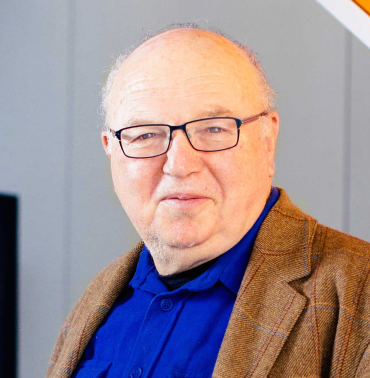 In a March 28 article written for the Berkeley Blog, David Zilberman, Professor in the Department of Agriculture and Resource Economics, drew upon his 40-year career studying the evolution and control of diseases in “plants, animals, ecosystems, and humans” to examine the implications of 10 key factors influencing the COVID-19 pandemic. Zilberman delineates factors such as technology (including the development of vaccines); heterogeneity, defined as “differences among individuals, locations, and social responses to this contagion”; the role of government; and economic impact. He also notes that “crisis triggers change” because “in a period of crisis, the political and economic resistance to experimenting with political and technological solutions can decline sharply.” Zilberman says that strong political leadership will be essential for managing the pandemic. “I hope that the current crisis will lead to the emergence of leadership that will pursue global cooperation rather than mutual isolation,” he said. “Despite self-imposed handicaps, and being very concerned about the COVID-19 and its impacts, I know we will survive it, it will lead to changes for the better, but tragically at a high cost.”
In a March 28 article written for the Berkeley Blog, David Zilberman, Professor in the Department of Agriculture and Resource Economics, drew upon his 40-year career studying the evolution and control of diseases in “plants, animals, ecosystems, and humans” to examine the implications of 10 key factors influencing the COVID-19 pandemic. Zilberman delineates factors such as technology (including the development of vaccines); heterogeneity, defined as “differences among individuals, locations, and social responses to this contagion”; the role of government; and economic impact. He also notes that “crisis triggers change” because “in a period of crisis, the political and economic resistance to experimenting with political and technological solutions can decline sharply.” Zilberman says that strong political leadership will be essential for managing the pandemic. “I hope that the current crisis will lead to the emergence of leadership that will pursue global cooperation rather than mutual isolation,” he said. “Despite self-imposed handicaps, and being very concerned about the COVID-19 and its impacts, I know we will survive it, it will lead to changes for the better, but tragically at a high cost.”
 In an interview with UC Berkeley News reporter Edward Lempinen, Edward Miguel, Oxfam Professor in Environmental and Resource Economics and faculty director of the Center for Effective Global Action (CEGA), discussed the potential threats of the COVID-19 virus in Africa, which first arrived in Africa in late February. Miguel noted that while Africa has some strengths over the countries affected so far — including a relatively young population, less density, and regional experience in dealing with other diseases, such as Ebola and HIV/AIDS – the continent remains highly vulnerable, as African nations lack the health care infrastructure required to treat large numbers of patients. “If there’s a significant outbreak, even if there aren’t as many vulnerable elderly people, millions of people still could be affected,” Miguel says. “Very few will have the care they need with ventilators and other advanced treatment…. I’m very concerned that people who are desperate will rise up against incompetent governments because they want to save their lives. They might want to put a competent government in its place…. COVID-19 pandemic demands a global, collective response. It is in the self-interest of the United States to deal with the epidemic globally to make sure it doesn’t break out again.” The piece was cited in a column by Charles Blow in the New York Times, “The Racial Time Bomb in the Covid-19 Crisis.”
In an interview with UC Berkeley News reporter Edward Lempinen, Edward Miguel, Oxfam Professor in Environmental and Resource Economics and faculty director of the Center for Effective Global Action (CEGA), discussed the potential threats of the COVID-19 virus in Africa, which first arrived in Africa in late February. Miguel noted that while Africa has some strengths over the countries affected so far — including a relatively young population, less density, and regional experience in dealing with other diseases, such as Ebola and HIV/AIDS – the continent remains highly vulnerable, as African nations lack the health care infrastructure required to treat large numbers of patients. “If there’s a significant outbreak, even if there aren’t as many vulnerable elderly people, millions of people still could be affected,” Miguel says. “Very few will have the care they need with ventilators and other advanced treatment…. I’m very concerned that people who are desperate will rise up against incompetent governments because they want to save their lives. They might want to put a competent government in its place…. COVID-19 pandemic demands a global, collective response. It is in the self-interest of the United States to deal with the epidemic globally to make sure it doesn’t break out again.” The piece was cited in a column by Charles Blow in the New York Times, “The Racial Time Bomb in the Covid-19 Crisis.”
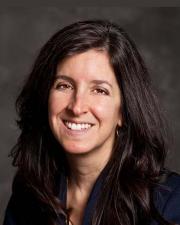 Writing for Time Magazine, Elena Conis, Associate Professor in the Graduate School of Journalism affiliated with the Center for Science, Technology, Medicine & Society, wrote about past epidemics—including the cholera epidemic of 1832 and the deadly flu outreak of 1918 — as lenses on current the COVID pandemic. A historian of U.S. public health and medicine, Conis is also affiliated with the Department of Anthropology, History & Social Medicine at the University of California, San Francisco and author of Vaccine Nation: America’s Changing Relationship with Immunization. “Total economic losses due to the 1918 epidemic are difficult to estimate, but one thing was clear: after it ended, society recovered,” Conis wrote. “As the study’s author concluded, the flu changed individual lives forever, but the economy bounced back. Historians, as Robert Peckham notes, tend to believe that ‘analogies create blind spots.’ Each epidemic takes place in its own context. The state of trade in New York in 1832—as well as the city’s infrastructure, wealth, poverty, graft and relationship to the rest of the world—played a role in cholera’s spread. The economy recovered then, and has many times since. At the same time, a number of historians credit medieval plague with a role in the collapse of feudalism and the rise of capitalism, so it is hard to generalize about the relationship between epidemics and economies. The national and global financial systems will still exist on the other side of a disease. But no amount of looking backward can tell us what they will look like then—or what COVID-19 might be capable of changing.”
Writing for Time Magazine, Elena Conis, Associate Professor in the Graduate School of Journalism affiliated with the Center for Science, Technology, Medicine & Society, wrote about past epidemics—including the cholera epidemic of 1832 and the deadly flu outreak of 1918 — as lenses on current the COVID pandemic. A historian of U.S. public health and medicine, Conis is also affiliated with the Department of Anthropology, History & Social Medicine at the University of California, San Francisco and author of Vaccine Nation: America’s Changing Relationship with Immunization. “Total economic losses due to the 1918 epidemic are difficult to estimate, but one thing was clear: after it ended, society recovered,” Conis wrote. “As the study’s author concluded, the flu changed individual lives forever, but the economy bounced back. Historians, as Robert Peckham notes, tend to believe that ‘analogies create blind spots.’ Each epidemic takes place in its own context. The state of trade in New York in 1832—as well as the city’s infrastructure, wealth, poverty, graft and relationship to the rest of the world—played a role in cholera’s spread. The economy recovered then, and has many times since. At the same time, a number of historians credit medieval plague with a role in the collapse of feudalism and the rise of capitalism, so it is hard to generalize about the relationship between epidemics and economies. The national and global financial systems will still exist on the other side of a disease. But no amount of looking backward can tell us what they will look like then—or what COVID-19 might be capable of changing.”
In a March 17 essay in The Guardian, UC Berkeley economists Emmanual Saez and Gabriel Zucman argued that the world’s governments need to enact strong measures to support workers during the coronavirus pandemic. Sending checks to families in the U.S. “help to alleviate temporary economic hardship but are poorly targeted,” they argued, as “it’s too little for those who lose their jobs, and it is not needed by those who don’t.” Instead , they argue, governments “should step in as payers of last resort, which means they would cover wage and maintenance costs for businesses facing shutdown. In the context of this pandemic, we need a new form of social insurance, one that directly helps both workers and businesses…. A payer-of-last-resort programme would alleviate the hardship on workers and businesses. It would maintain the cash flow for families and businesses so the coronavirus shock has no secondary impacts on demand – such as laid-off workers cutting down on consumption – and a quick rebound can take place once demand comes back. Business activity is on hold today, but with an intravenous cash flow it can be kept alive until the health crisis is over.”
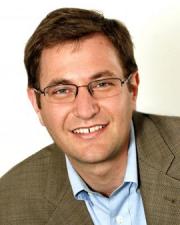 On March 10, The Washington Post published a “Perspective” by Jesse Rothstein, Associate Professor of Public Policy and Economics at UC Berkeley, and Jared Bernstein, Senior Fellow at the Center on Budget and Policy Priorities, arguing that firms should continue to pay workers directly during shutdowns. “In most cases, employers will want the workers back once the threat of the virus recedes, and continuation of wage and salary payments will help meet these workers’ and their households’ needs while supporting consumer spending in the broader economy,” they wrote. “To help them through what we believe will be an extremely challenging period, we propose the creation of a temporary, national paid-leave program, funded by the federal government, for workers idled due to the coronavirus…. Employers would continue to pay workers who are prevented from working by the virus, through direct deposits or paychecks in the mail. They would report this to their state[unemployment insurance] system, which would reimburse them through tax credits or direct payments and would in turn be reimbursed by the federal government…. The idea would be to reimburse employers for paying their workers through their coronavirus-caused leave, with as little disruption as possible…. Millions of households who are on the precipice of economic despair depend on policymakers getting this right.”
On March 10, The Washington Post published a “Perspective” by Jesse Rothstein, Associate Professor of Public Policy and Economics at UC Berkeley, and Jared Bernstein, Senior Fellow at the Center on Budget and Policy Priorities, arguing that firms should continue to pay workers directly during shutdowns. “In most cases, employers will want the workers back once the threat of the virus recedes, and continuation of wage and salary payments will help meet these workers’ and their households’ needs while supporting consumer spending in the broader economy,” they wrote. “To help them through what we believe will be an extremely challenging period, we propose the creation of a temporary, national paid-leave program, funded by the federal government, for workers idled due to the coronavirus…. Employers would continue to pay workers who are prevented from working by the virus, through direct deposits or paychecks in the mail. They would report this to their state[unemployment insurance] system, which would reimburse them through tax credits or direct payments and would in turn be reimbursed by the federal government…. The idea would be to reimburse employers for paying their workers through their coronavirus-caused leave, with as little disruption as possible…. Millions of households who are on the precipice of economic despair depend on policymakers getting this right.”
In a 3/14 piece on Berkeley Blog, Jesse Rothstein, Associate Professor of Public Policy and Economics, highlighted how UC Berkeley social scientists have played an influential role throughout the COVID-19 crisis. “As a labor economist, I’m greatly worried about the economic damage that quarantines, social distancing efforts, and the like will cause,” he wrote. “It will be essential that we respond quickly and effectively to limit the damage. Toward that end, I’m especially proud that the Institute for Research on Labor and Employment, which I direct, has been able to have a quick impact on the national conversation and the policy response.” Rothstein called out a variety of initiatives, including The Shift Project, headed by Assistant Professor of Sociology Daniel Schneider, which has measured the prevalence of unstable, unpredictable work among large low-wage employers like Walmart and McDonalds, and which was called out in a New York Times editorial arguing that “employers have a duty to give their workers paid leave, not just during the crisis, but permanently.” Rothstein noted that the bill passed by the House of Representatives includes “a set of provisions that closely resemble our proposal.” Noting that “the bill is not perfect” (in part because it excludes employers with more than 500 workers and is temporary), the bill provides two weeks of paid leave for people who are sick, quarantined due to symptoms, caring for a sick relative, or caring for kids whose schools are closed, paid at two-thirds of 100 percent of regular pay, depending on the reason; after that runs out, three months of paid family or medical leave; reimbursement to employers for both of the above through credits against payroll taxes, refundable if the credit exceeds the firm’s liability; and general fund transfers to hold the Social Security trust fund harmless. “We social scientists will all have roles to play, and the work that researchers at the Institute for Research on Labor and Employment and elsewhere at Berkeley do will be more important than ever.”
 What are the impacts of the economy grinding to a sudden halt, and what can be done about it? Pierre-Olivier Gourinchas, S.K. and Angela Chan Professor of Global Management in the UC Berkeley Department of Economics and Haas School of Business and Director of the Clausen Center for International Business and Policy, discussed this subject with Cardiff Garcia and Stacey Vanek Smith for a March 16 segment of “The Indicator,” a segment on NPR’s Planet Money. “In 2008, the U.S. economy contracted by 4.5% So we’re looking at something that, on the baseline, relatively optimistic scenario, is going to dwarf this,” Gourinchas said. “The risk is also that these connections holding the economy together will fall apart. And if that happens, those relationships will be hard to rebuild, and that will delay the economy’s ability to recover. Businesses… might have problems refinancing a credit line with their bank. The bank might just say, no. We’re not renewing that because we’re not seeing you selling anything, so we’re cutting down your credit line. So now you have to repay. So you can’t do that, so now the business is going bankrupt. Now the bank may in turn have non-performing loans, and they’ll be piling up, so the bank may be in trouble. So now you have a financial crisis on top of everything else. These are the kinds of amplification and feedback loops that we can try to avoid…. If you know the crisis is going to be very short-lived, you don’t want to destroy all this network of relations. You want to preserve it so that it can restart again. If the crisis were going to be a permanent crisis, a very long-lasting crisis, there would be much less of a need to do that because you couldn’t just preserve these relationships.”
What are the impacts of the economy grinding to a sudden halt, and what can be done about it? Pierre-Olivier Gourinchas, S.K. and Angela Chan Professor of Global Management in the UC Berkeley Department of Economics and Haas School of Business and Director of the Clausen Center for International Business and Policy, discussed this subject with Cardiff Garcia and Stacey Vanek Smith for a March 16 segment of “The Indicator,” a segment on NPR’s Planet Money. “In 2008, the U.S. economy contracted by 4.5% So we’re looking at something that, on the baseline, relatively optimistic scenario, is going to dwarf this,” Gourinchas said. “The risk is also that these connections holding the economy together will fall apart. And if that happens, those relationships will be hard to rebuild, and that will delay the economy’s ability to recover. Businesses… might have problems refinancing a credit line with their bank. The bank might just say, no. We’re not renewing that because we’re not seeing you selling anything, so we’re cutting down your credit line. So now you have to repay. So you can’t do that, so now the business is going bankrupt. Now the bank may in turn have non-performing loans, and they’ll be piling up, so the bank may be in trouble. So now you have a financial crisis on top of everything else. These are the kinds of amplification and feedback loops that we can try to avoid…. If you know the crisis is going to be very short-lived, you don’t want to destroy all this network of relations. You want to preserve it so that it can restart again. If the crisis were going to be a permanent crisis, a very long-lasting crisis, there would be much less of a need to do that because you couldn’t just preserve these relationships.”
 The New Yorker‘s John Cassidy interviewed Barry Eichengreen, George C. Pardee and Helen N. Pardee Professor of Economics and Political Science at UC Berkeley, for his perspectives on the economic crisis resulting from the COVID-19 pandemic. An expert in economic history whose publications include Hall of Mirrors: The Great Depression, the Great Recession, and the Uses-and Misuses-of History, Eichengreen noted that the Great Depression, unlike the current situation, developed gradually. “The production of goods and services fell by about a third, but over a period of three-plus years,” he said. “Industrial production fell by half, but, again, over a period of three years. The unemployment rate rose to about one in four, but over four years. Now what we are talking about is the possibility that the unemployment rate could shoot up very dramatically in a very short period of time.” Yet Eichengreen also stressed the importance of a lockdown to reduce mortality rates, and of strong government action. “The scholarship on the Great Depression suggests that, when both fiscal and monetary policies, as well as strategic interventions in specific industries, were undertaken, we got stabilization and recovery,” Eichengreen said. “But not in the preceding period, when there was a more piecemeal approach….There are signs that people, including our fearless leaders, have now recognized the gravity of the situation. It looks like the necessary steps have been taken on the monetary side and probably will be taken on the fiscal side…. The U.S. approach to these things has almost always been—it was Herbert Hoover’s during the Great Depression—let’s ask enlightened bankers to do the right thing and voluntarily forgive late payments and suspend penalties, and so forth,” he said. “Hopefully, we are moving fast in recognizing that voluntarism and enlightened capitalism, while desirable, may not be enough.”
The New Yorker‘s John Cassidy interviewed Barry Eichengreen, George C. Pardee and Helen N. Pardee Professor of Economics and Political Science at UC Berkeley, for his perspectives on the economic crisis resulting from the COVID-19 pandemic. An expert in economic history whose publications include Hall of Mirrors: The Great Depression, the Great Recession, and the Uses-and Misuses-of History, Eichengreen noted that the Great Depression, unlike the current situation, developed gradually. “The production of goods and services fell by about a third, but over a period of three-plus years,” he said. “Industrial production fell by half, but, again, over a period of three years. The unemployment rate rose to about one in four, but over four years. Now what we are talking about is the possibility that the unemployment rate could shoot up very dramatically in a very short period of time.” Yet Eichengreen also stressed the importance of a lockdown to reduce mortality rates, and of strong government action. “The scholarship on the Great Depression suggests that, when both fiscal and monetary policies, as well as strategic interventions in specific industries, were undertaken, we got stabilization and recovery,” Eichengreen said. “But not in the preceding period, when there was a more piecemeal approach….There are signs that people, including our fearless leaders, have now recognized the gravity of the situation. It looks like the necessary steps have been taken on the monetary side and probably will be taken on the fiscal side…. The U.S. approach to these things has almost always been—it was Herbert Hoover’s during the Great Depression—let’s ask enlightened bankers to do the right thing and voluntarily forgive late payments and suspend penalties, and so forth,” he said. “Hopefully, we are moving fast in recognizing that voluntarism and enlightened capitalism, while desirable, may not be enough.”
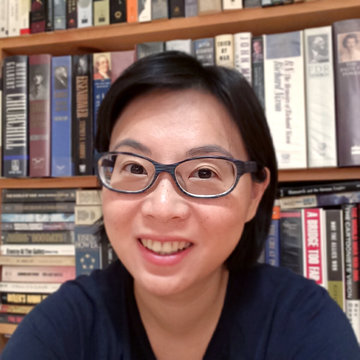
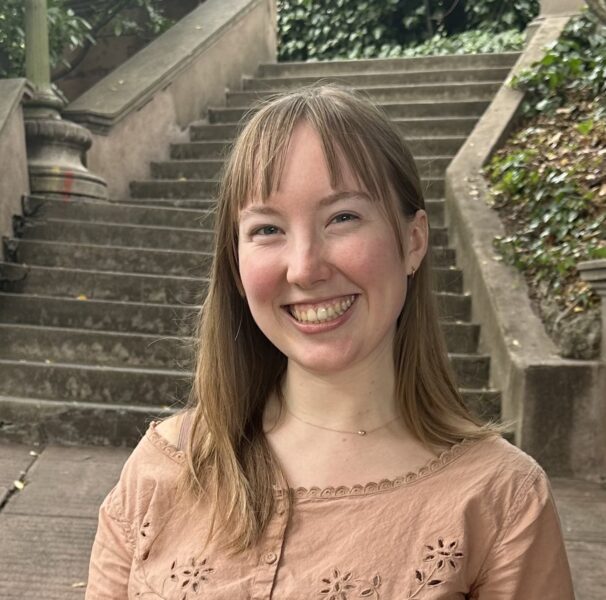

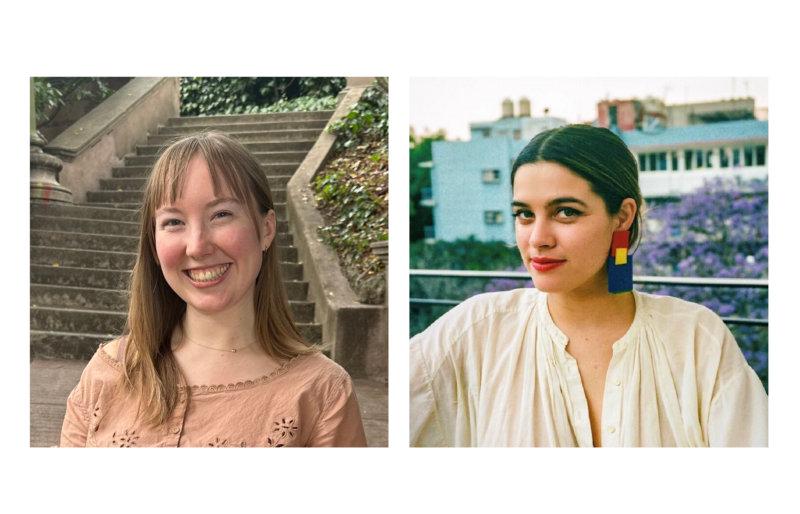


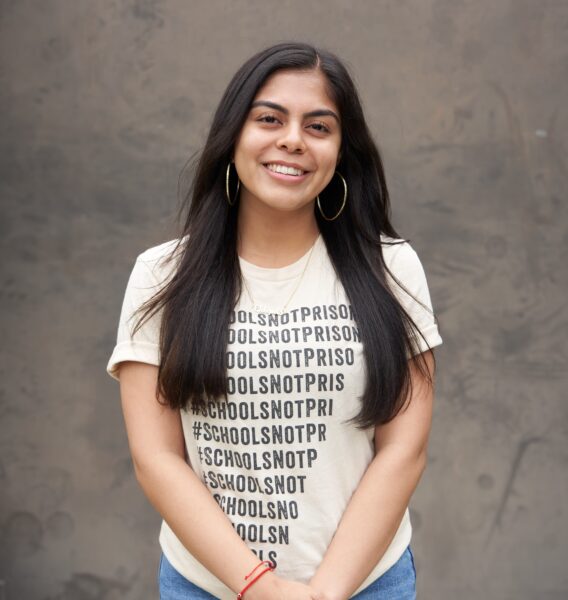
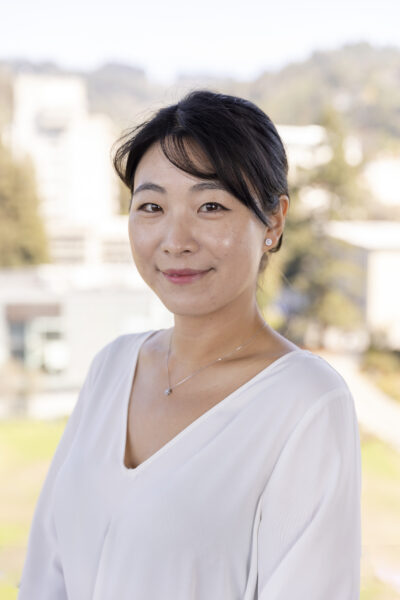
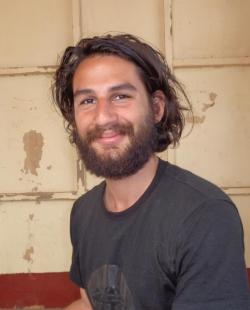

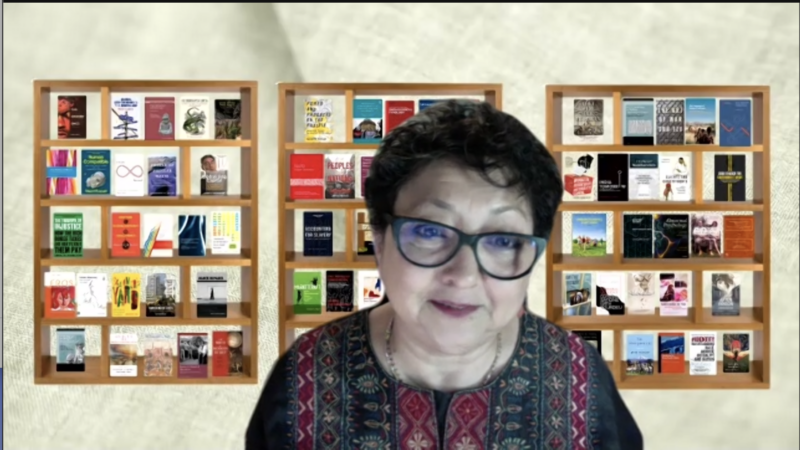

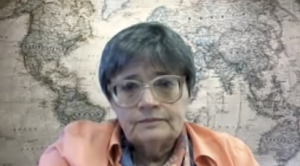
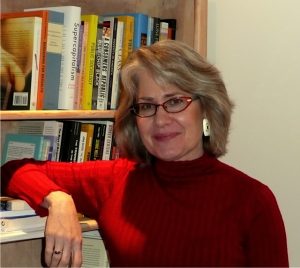
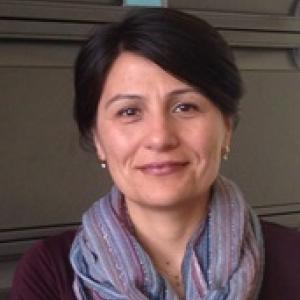
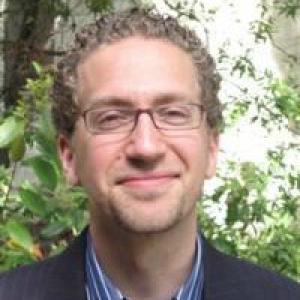
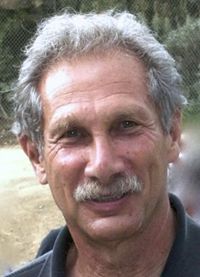

 The Center for Studies in Higher Education (CSHE) recently convened a panel focused on the impact of the COVID-19 pandemic on international research collaboration. “International knowledge networks are essential for research and research is a core function of universities. All aspects of university work are currently strained by the COVID-19, but international programs, including research collaboration, are especially pressured. These programs have produced some of the most creative and innovative results in many disciplines.” The panel discussed “both the challenges that international research collaboration is facing in the current environment and will describe plans for supporting these efforts and planning for their future post-pandemic.” Participants included: Margaret Heisel, Senior Associate, Center for Studies in Higher Education; David Bogle, Pro-Vice-Provost of the University College London (UCL) Doctoral School; France A. Córdova, an astrophysicist and the 14th director of the National Science Foundation (NSF); Jim Hyatt, Senior Research Associate (CSHE), Vice Chancellor for Budget and Finance and CFO Emeritus; Randy Katz, Vice Chancellor for Research at UC Berkeley; and Tim Stearns, Senior Associate Vice Provost of Research at Stanford University. Watch the video
The Center for Studies in Higher Education (CSHE) recently convened a panel focused on the impact of the COVID-19 pandemic on international research collaboration. “International knowledge networks are essential for research and research is a core function of universities. All aspects of university work are currently strained by the COVID-19, but international programs, including research collaboration, are especially pressured. These programs have produced some of the most creative and innovative results in many disciplines.” The panel discussed “both the challenges that international research collaboration is facing in the current environment and will describe plans for supporting these efforts and planning for their future post-pandemic.” Participants included: Margaret Heisel, Senior Associate, Center for Studies in Higher Education; David Bogle, Pro-Vice-Provost of the University College London (UCL) Doctoral School; France A. Córdova, an astrophysicist and the 14th director of the National Science Foundation (NSF); Jim Hyatt, Senior Research Associate (CSHE), Vice Chancellor for Budget and Finance and CFO Emeritus; Randy Katz, Vice Chancellor for Research at UC Berkeley; and Tim Stearns, Senior Associate Vice Provost of Research at Stanford University. Watch the video  The COVID-19 pandemic is increasing depression and anxiety among college students, with more than a third reporting significant mental health challenges. A recent Berkeley News article by Edward Lempinen cites
The COVID-19 pandemic is increasing depression and anxiety among college students, with more than a third reporting significant mental health challenges. A recent Berkeley News article by Edward Lempinen cites  In a recent essay posted on 3 Quarks Daily, Pranab Bardhan, Professor of Graduate School in the UC Berkeley Department of Economics, examined the impact the pandemic could have on social democracy, particularly in the wake of recent trends like the rise of automation and globalization, the decline of working-class trade unions, and the increase in inequality and insecurity. Bardhan to “looks at the prospects of social democracy in the post-pandemic world, at the strengthening or weakening of pre-existing tendencies in this respect, and at new elements, circumstances and challenges,” noting it should be seen “as neither a straight-forward prediction, nor just a matter of wishful thinking, more a clear-eyed analysis of constraints and opportunities that social democrats are likely to face or have to be prepared for.”
In a recent essay posted on 3 Quarks Daily, Pranab Bardhan, Professor of Graduate School in the UC Berkeley Department of Economics, examined the impact the pandemic could have on social democracy, particularly in the wake of recent trends like the rise of automation and globalization, the decline of working-class trade unions, and the increase in inequality and insecurity. Bardhan to “looks at the prospects of social democracy in the post-pandemic world, at the strengthening or weakening of pre-existing tendencies in this respect, and at new elements, circumstances and challenges,” noting it should be seen “as neither a straight-forward prediction, nor just a matter of wishful thinking, more a clear-eyed analysis of constraints and opportunities that social democrats are likely to face or have to be prepared for.” Beth Piatote, Associate Professor of Native American Studies, published a fictional story called “Level 8 Risk,” depicting a future world in which immigrants can earn their citizenship by joining the Civilian BioMedical Corps (or CivCo for short), in which they are infected with diseases so they can produce antibodies that are harvested and sold. An excerpt: “Three years after the implant gave me an infection, I’m about to get another one. Another microchip implant, that is, and possibly another infection. I’d call it a level 3 risk. Implant infection was only a level 1 risk last time and I got one, so I’m upping the odds. Esau says it’s good to be prepared, especially with re-entry on the horizon. Re-entry has been on the horizon the entire three years I’ve been here. Every time I get scanned the date pops up: May 1, 2028, embedded in the bar code as 010528. At first, I tried to memorize my whole ID, but the green digits on the screen always disappeared too quickly. Once I caught sight of the date in the sequence, I began to focus on that. And thus I became the date of my discharge, which seems as good an identity as any. It’s called discharge, not release or emancipation, because the Civilian BioMedical Corps (or CivCo for short) was designed to mirror the military structurally if not practically. I used to think of the Army and CivCo as twins, like my brother Saul and me, but CivCo is more like that spoiled step-brother who came along after Uncle Sam got remarried to his much younger second wife.” Read the full piece.
Beth Piatote, Associate Professor of Native American Studies, published a fictional story called “Level 8 Risk,” depicting a future world in which immigrants can earn their citizenship by joining the Civilian BioMedical Corps (or CivCo for short), in which they are infected with diseases so they can produce antibodies that are harvested and sold. An excerpt: “Three years after the implant gave me an infection, I’m about to get another one. Another microchip implant, that is, and possibly another infection. I’d call it a level 3 risk. Implant infection was only a level 1 risk last time and I got one, so I’m upping the odds. Esau says it’s good to be prepared, especially with re-entry on the horizon. Re-entry has been on the horizon the entire three years I’ve been here. Every time I get scanned the date pops up: May 1, 2028, embedded in the bar code as 010528. At first, I tried to memorize my whole ID, but the green digits on the screen always disappeared too quickly. Once I caught sight of the date in the sequence, I began to focus on that. And thus I became the date of my discharge, which seems as good an identity as any. It’s called discharge, not release or emancipation, because the Civilian BioMedical Corps (or CivCo for short) was designed to mirror the military structurally if not practically. I used to think of the Army and CivCo as twins, like my brother Saul and me, but CivCo is more like that spoiled step-brother who came along after Uncle Sam got remarried to his much younger second wife.” Read the full piece.  UC Berkeley’s
UC Berkeley’s  A recent New Yorker profile about Treasury Secretary Steven Mnuchin, written by Sheelah Kolhatkar, included insights from
A recent New Yorker profile about Treasury Secretary Steven Mnuchin, written by Sheelah Kolhatkar, included insights from  Recorded on June 26, this panel — presented as part of the Berkeley Conversations — featured
Recorded on June 26, this panel — presented as part of the Berkeley Conversations — featured 
















 A recent panel convened as part of the Berkeley Conversations: COVID-19 brought together experts in political science, public policy, cybersecurity, and law to discuss how the COVID-19 pandemic will affect the November 2020 election. Presented by Berkeley Public Affairs, the discussion focused on an array of issues, from presidential approval ratings, the Constitution, election law, unemployment rates to the security of digital voting, the scholars concluded it was still too uncertain to draw any sweeping conclusions. Except that
A recent panel convened as part of the Berkeley Conversations: COVID-19 brought together experts in political science, public policy, cybersecurity, and law to discuss how the COVID-19 pandemic will affect the November 2020 election. Presented by Berkeley Public Affairs, the discussion focused on an array of issues, from presidential approval ratings, the Constitution, election law, unemployment rates to the security of digital voting, the scholars concluded it was still too uncertain to draw any sweeping conclusions. Except that  An
An 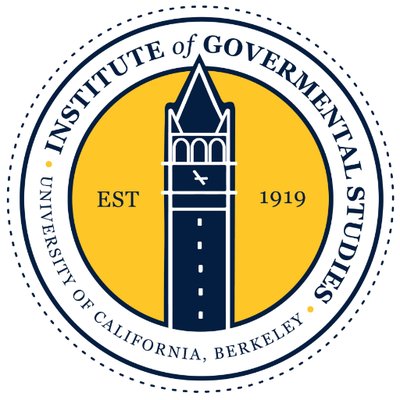




 An upcoming Berkeley Conversations panel, sponsored by the
An upcoming Berkeley Conversations panel, sponsored by the 





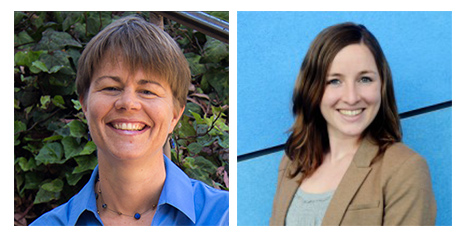

 Writing for the Washington Post‘s “
Writing for the Washington Post‘s “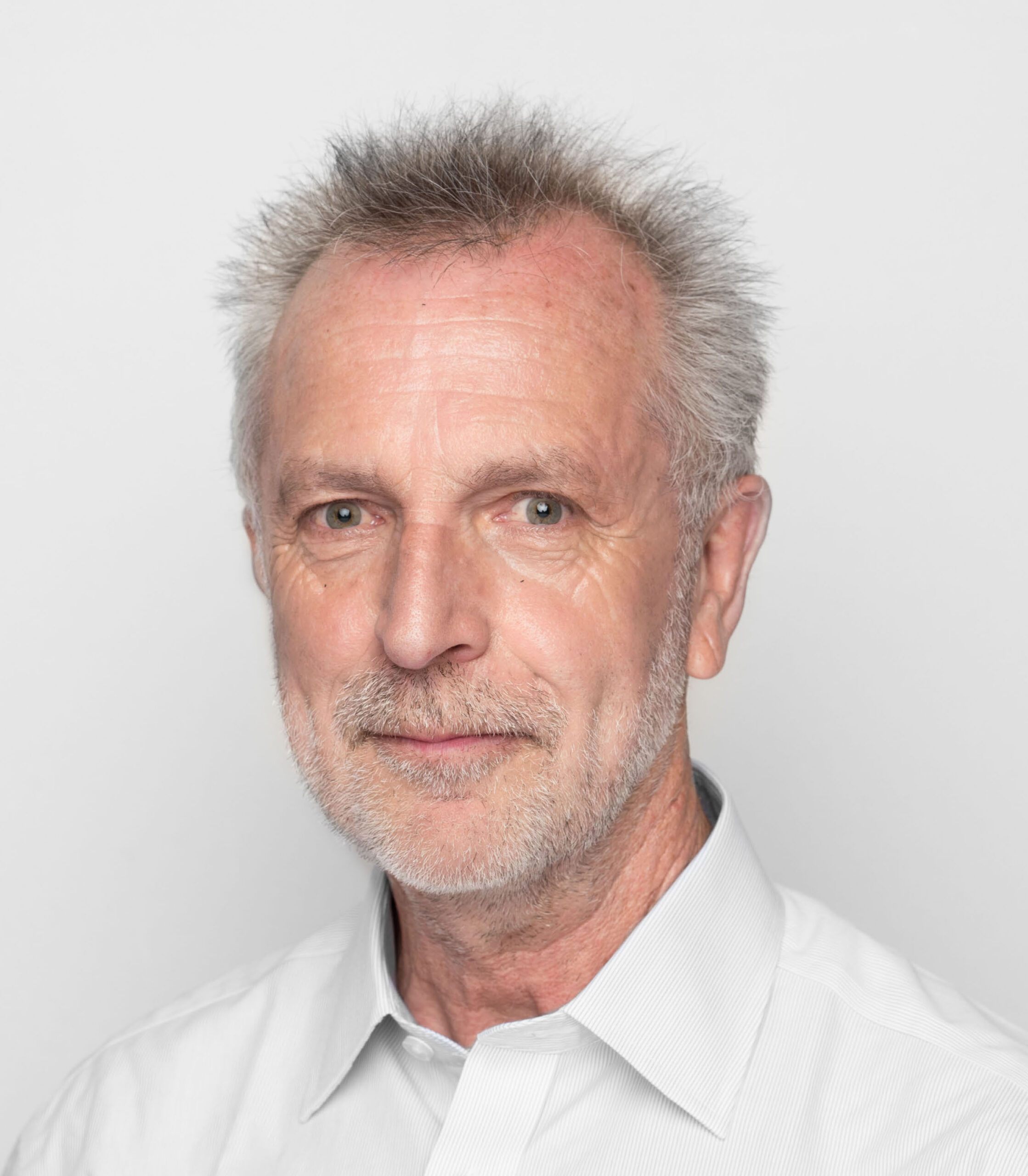
 In the era of COVID-19, the public health directive to “wash your hands” is a challenge for people with limited access to clean water, writes Isha Ray, Professor in the UC Berkeley Energy Resources Group, Co-Director of the
In the era of COVID-19, the public health directive to “wash your hands” is a challenge for people with limited access to clean water, writes Isha Ray, Professor in the UC Berkeley Energy Resources Group, Co-Director of the  How will schools have to be adapted to reduce the risk of coronavirus transmission?
How will schools have to be adapted to reduce the risk of coronavirus transmission? 
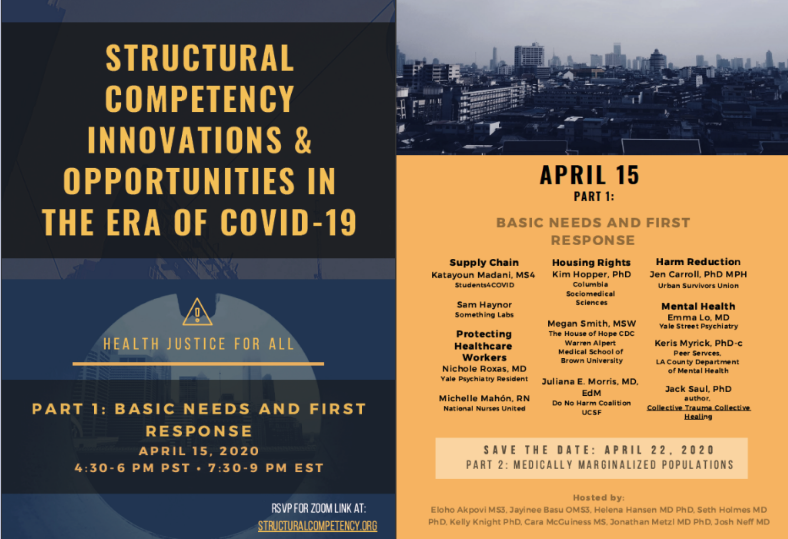
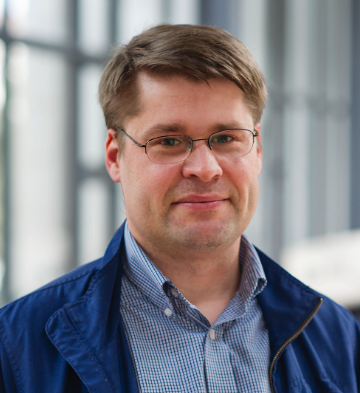
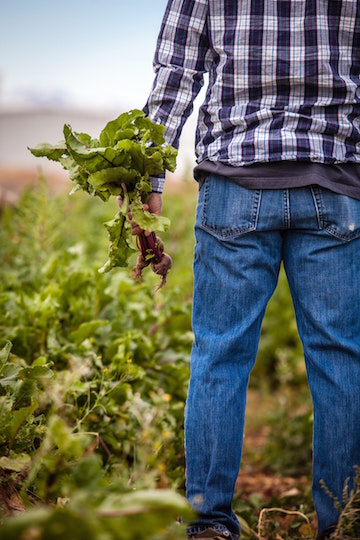
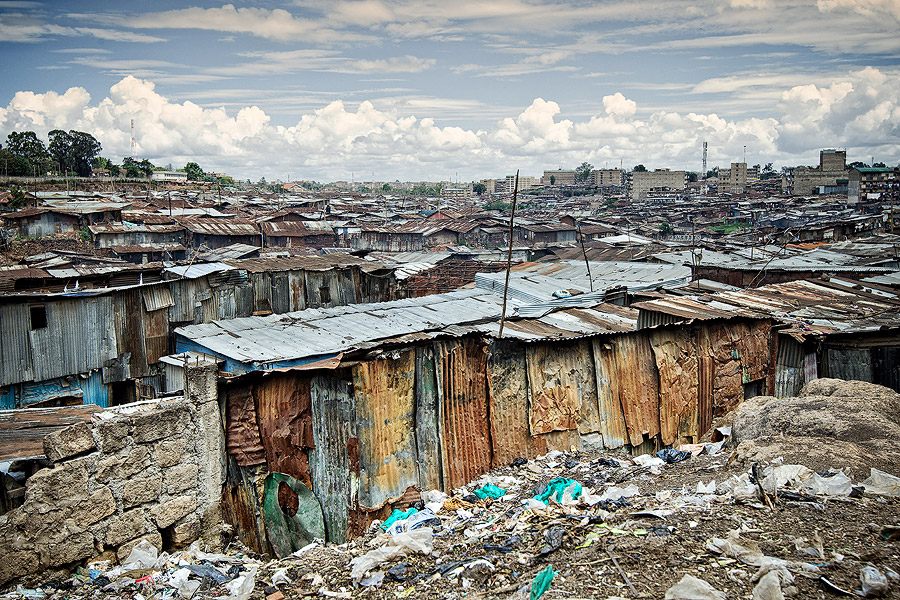
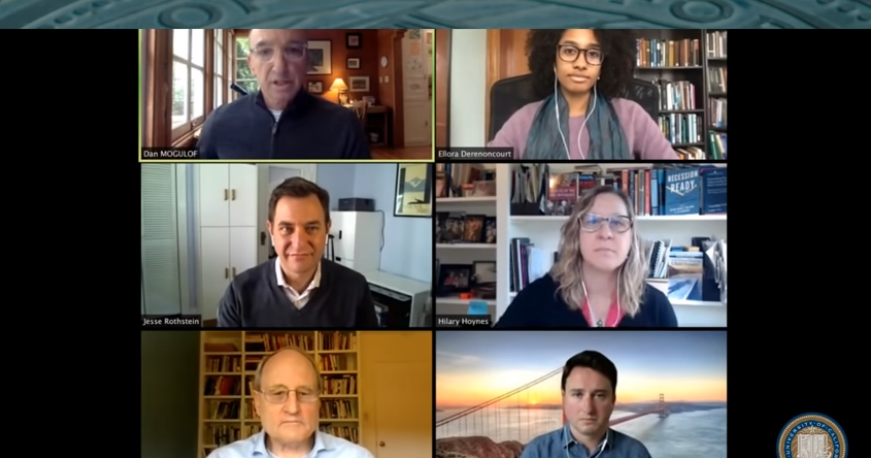
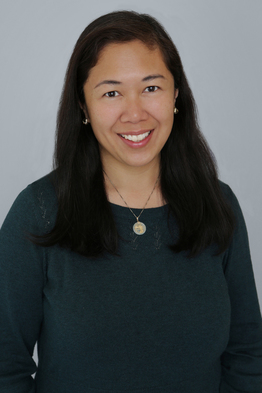

 Professor Jesse Rothstein was one of a group of co-authors — along with Alexander W. Bartik, Marianne Bertrand, Feng Lin, and Matt Unrath — who used data from Homebase, a widely used provider of scheduling and time clock software for small businesses, to assess the labor impacts of the COVID-19 crisis. Published on the blog of the Chicago Booth Rustandy Center for Social Sector Innovation, their research provides a glimpse into economic phenomena not yet visible through traditional measures. “COVID-19, and the policies enacted in response to the disease, have resulted in dramatic changes in many aspects of American society,” the researchers explained. “These changes have been particularly large in the labor market. It has been challenging to understand the magnitude of these changes because standard data sources become available only with a lag of several weeks – we will not receive data on employment and unemployment after shelter-in-place orders took effect until the first week of May…. We take advantage of granular data on exact hours worked among employees of firms that use the Homebase scheduling software to provide an up-to-date picture of the labor market impact of COVID-19. We measure how the impact varies across geography and industry, how it evolves in response to state and local social distancing guidelines and orders, and how concentrated it is among particular sets of workers.” This research was cited in
Professor Jesse Rothstein was one of a group of co-authors — along with Alexander W. Bartik, Marianne Bertrand, Feng Lin, and Matt Unrath — who used data from Homebase, a widely used provider of scheduling and time clock software for small businesses, to assess the labor impacts of the COVID-19 crisis. Published on the blog of the Chicago Booth Rustandy Center for Social Sector Innovation, their research provides a glimpse into economic phenomena not yet visible through traditional measures. “COVID-19, and the policies enacted in response to the disease, have resulted in dramatic changes in many aspects of American society,” the researchers explained. “These changes have been particularly large in the labor market. It has been challenging to understand the magnitude of these changes because standard data sources become available only with a lag of several weeks – we will not receive data on employment and unemployment after shelter-in-place orders took effect until the first week of May…. We take advantage of granular data on exact hours worked among employees of firms that use the Homebase scheduling software to provide an up-to-date picture of the labor market impact of COVID-19. We measure how the impact varies across geography and industry, how it evolves in response to state and local social distancing guidelines and orders, and how concentrated it is among particular sets of workers.” This research was cited in  Kamala Russell, a PhD Candidate in the UC Berkeley Department of Anthropology published
Kamala Russell, a PhD Candidate in the UC Berkeley Department of Anthropology published  UC Berkeley psychologist Dacher Keltner has launched a video series to share science-based strategies to help people cope with the stress and uncertainty of COVID-19. “In touching every aspect of our lives, the COVID-19 pandemic has profoundly disrupted our sense of well-being and produced uncertainty and anxiety,” announced a UC Berkeley press release. “How do we find resilience while remaining productive and caring family members, friends, professionals and citizens in these unprecedented times?” In the videos, Keltner, “who has studied stress, relationships and well-being for 25 years and is co-founder of the campus’s
UC Berkeley psychologist Dacher Keltner has launched a video series to share science-based strategies to help people cope with the stress and uncertainty of COVID-19. “In touching every aspect of our lives, the COVID-19 pandemic has profoundly disrupted our sense of well-being and produced uncertainty and anxiety,” announced a UC Berkeley press release. “How do we find resilience while remaining productive and caring family members, friends, professionals and citizens in these unprecedented times?” In the videos, Keltner, “who has studied stress, relationships and well-being for 25 years and is co-founder of the campus’s  People who have developed immunity to the Covid-19 coronavirus could play a key role in jumpstarting the economy, argue
People who have developed immunity to the Covid-19 coronavirus could play a key role in jumpstarting the economy, argue  In an op-ed in Wired,
In an op-ed in Wired,  In an
In an  In a
In a  In a post on
In a post on  In recent weeks, conservative media personalities, political and business leaders, and other influencers have publicly shrugged off warnings about the dangers of the novel coronavirus. What causes certain people to stick to their beliefs and act with skepticism despite overwhelming contradictory evidence? For answers, Berkeley News’ reporter Yasmin Anwar interviewed
In recent weeks, conservative media personalities, political and business leaders, and other influencers have publicly shrugged off warnings about the dangers of the novel coronavirus. What causes certain people to stick to their beliefs and act with skepticism despite overwhelming contradictory evidence? For answers, Berkeley News’ reporter Yasmin Anwar interviewed  Excessive worry about COVID-19 is becoming a mental health pandemic unto itself. But when is anxiety useful, and when is it destructive? Berkeley News’ Yasmin Anwar interviewed
Excessive worry about COVID-19 is becoming a mental health pandemic unto itself. But when is anxiety useful, and when is it destructive? Berkeley News’ Yasmin Anwar interviewed  In an essay in The Guardian,
In an essay in The Guardian,  In a March 28 article written for the Berkeley Blog,
In a March 28 article written for the Berkeley Blog,  In an interview with UC Berkeley News reporter Edward Lempinen,
In an interview with UC Berkeley News reporter Edward Lempinen,  Writing for Time Magazine,
Writing for Time Magazine, On March 10, The Washington Post published a “Perspective” by
On March 10, The Washington Post published a “Perspective” by  What are the impacts of the economy grinding to a sudden halt, and what can be done about it?
What are the impacts of the economy grinding to a sudden halt, and what can be done about it?  The New Yorker‘s John Cassidy interviewed
The New Yorker‘s John Cassidy interviewed 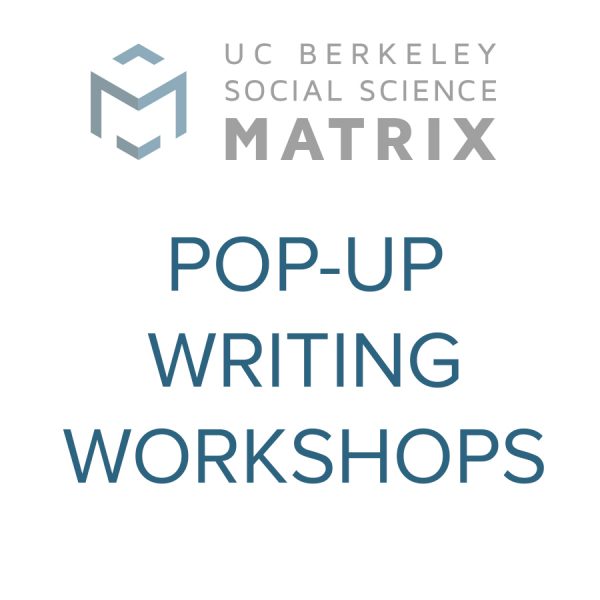

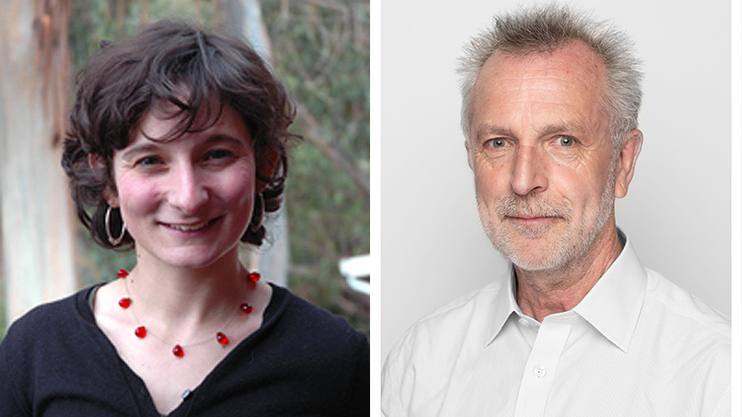
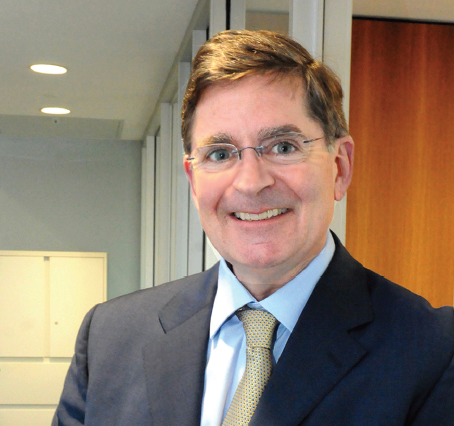 Under Hanks’ leadership, Social Science Matrix has established itself as an important resource for the UC Berkeley social science community, hosting hundreds of conferences, workshops, symposia, book discussions, and distinguished lectures by prominent scholars, and convening more than 70
Under Hanks’ leadership, Social Science Matrix has established itself as an important resource for the UC Berkeley social science community, hosting hundreds of conferences, workshops, symposia, book discussions, and distinguished lectures by prominent scholars, and convening more than 70 